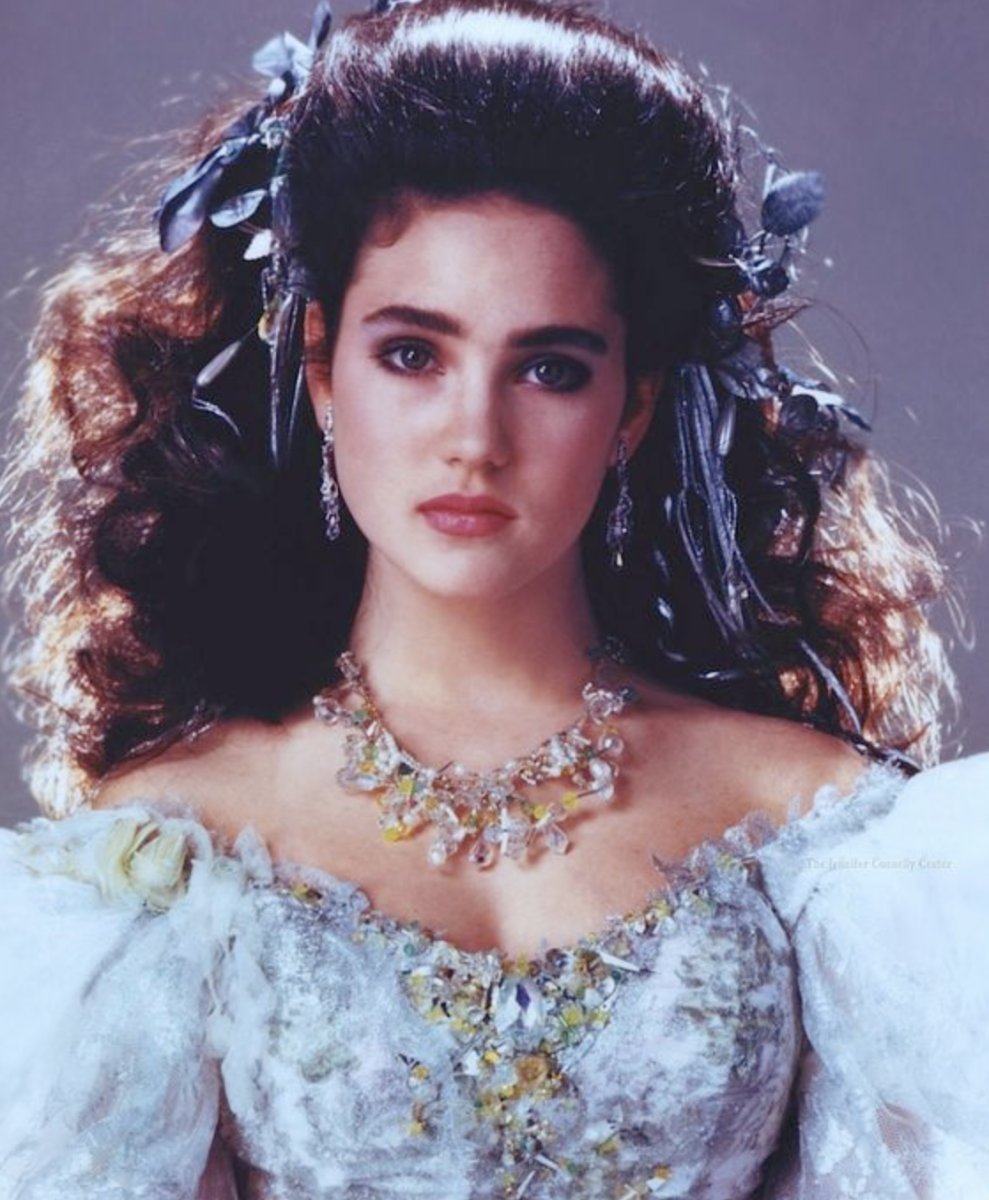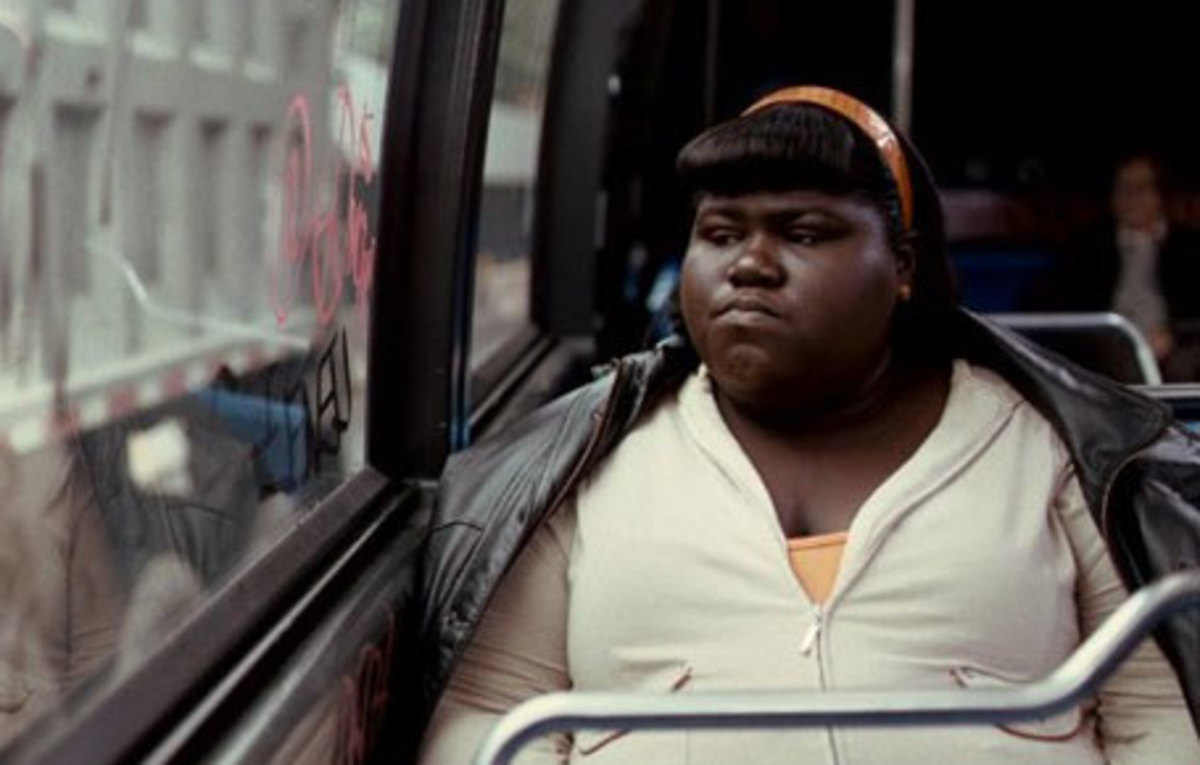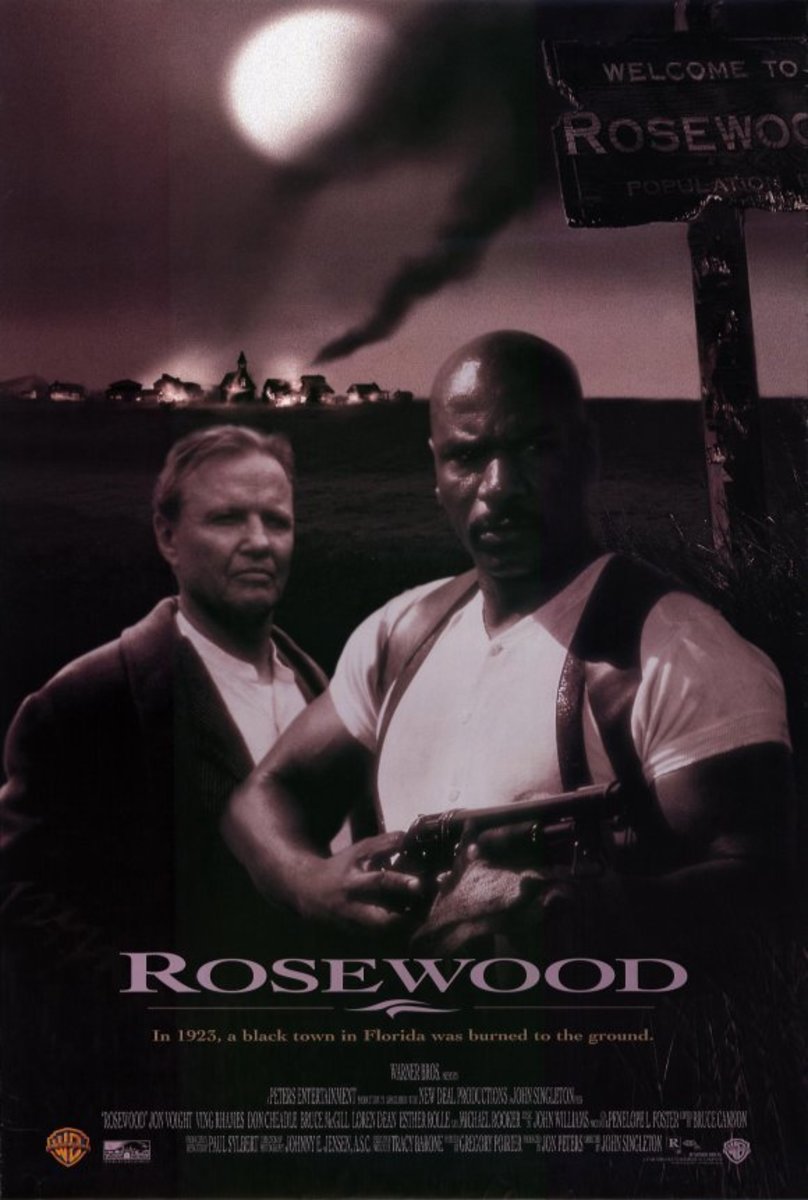A look at the films of 2015: 89 films (and counting), with comments on how they should have fared this awards season.
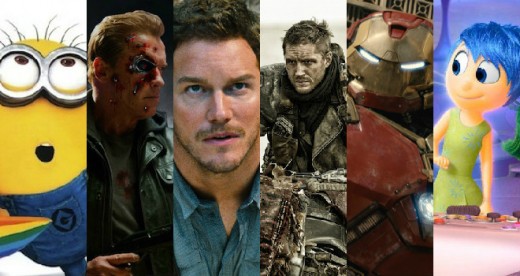
The Movies of 2015: Where to Begin?
As any of you who have read my previous posts are aware (and any who read this to its conclusion will be aware), I love movies. A lot. And I watch a lot of movies. I also love commenting on whether particular films deserve awards consideration, particularly Oscars, and I follow the Oscar hype closely. This past year brought a very interesting set of circumstances my way: I started two new jobs, each one of which brought my way far more notable opportunities for movie viewing than usual. Of course, life giveth and life taketh away; my dear friend that I used to watch a lot of movies with had his availability markedly curtailed last year, a situation which still has not been fully fixed, but even that made it possible to add a couple additional films to the list. Also, it should be noted that I still had limited funds this year, which prevented me from going to see many of the films I wanted to: this is why you will not yet see Room, The Big Short, Spotlight, Brooklyn, Carol, Anomalisa, The Danish Girl, 45 Years, Anthem of the Heart, Cartel Land or The Boy and the Beast on the list. It is also part of the reason you will not see Love Live! The School Idol Movie; timing is the main reason you will not yet find Secret in Their Eyes. There are others I intend to see as well; through my library I currently have holds placed on Suffragette, Trainwreck, The Diary of a Teenage Girl, The Man from U.N.C.L.E. and Z for Zachariah. That said, I have still seen a LOT of this past year's films--89 in all. In a way, this should make for an interesting Oscar-season list--you already know which ones I've missed, so it may be fun to speculate how the list'll change by the night of the telecast. As it stands, I have a pretty solid Top 10, though I could whittle it down to 5 definitely deserving nominees. Also, bear in mind that my Top 10 does not necessarily reflect which films I think should be up for Best Picture; I'll be doing a couple of additional articles in the coming weeks wherein I'll give my picks category-by-category. This article will be split into three consecutive lists: The Top 10; The Best of the Rest; and The Rest. The first is pretty self-explanatory--my ten favorite films of the year. The second will be all the additional films that could, in my mind, justifiably have an Oscar nod for Best Picture. The third will be the rest. It will be a long haul; I recommend you break between each list, coming back to it after an intermission or a couple days later, whatever works best for you. Hopefully you will find my comments interesting, and in reading this list find at least a couple films you had not heard of or expected to like that seem right up your alley. And now, on with the show!
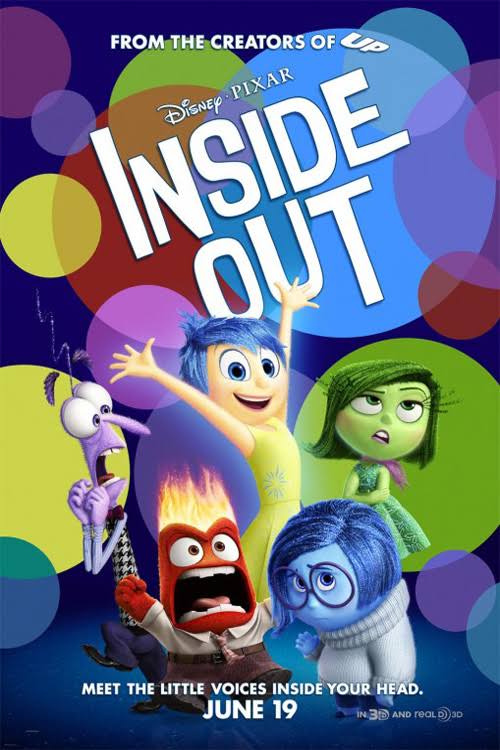
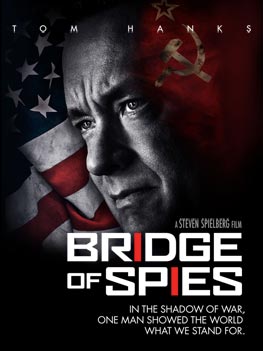
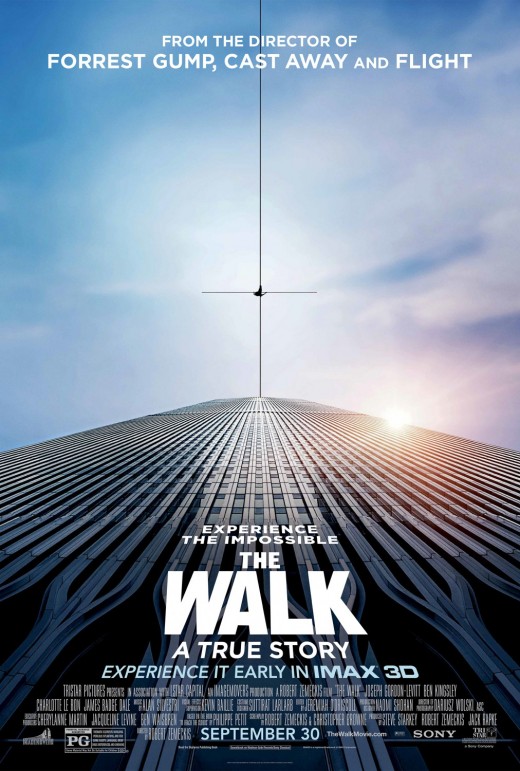
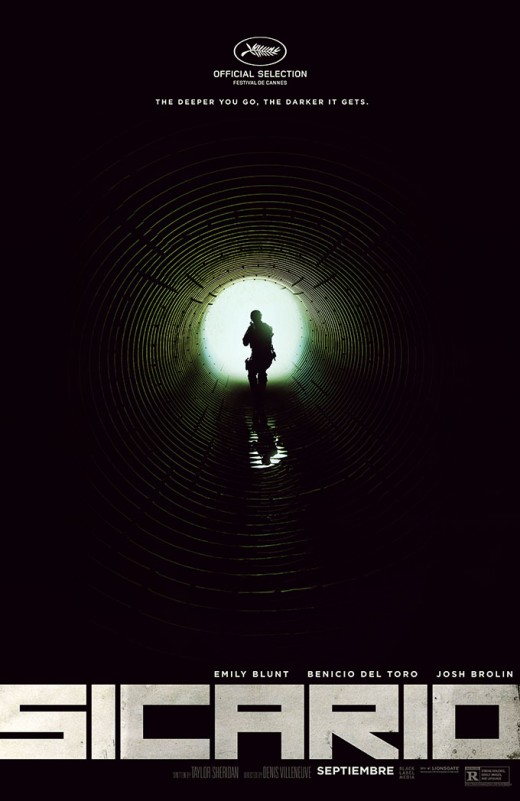
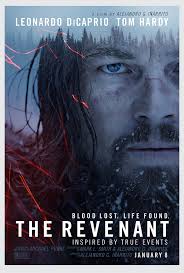
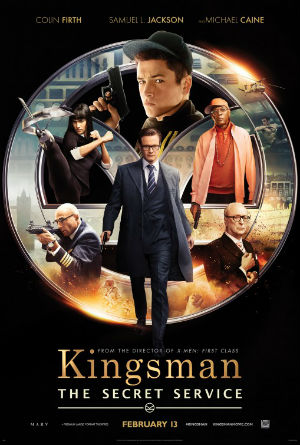
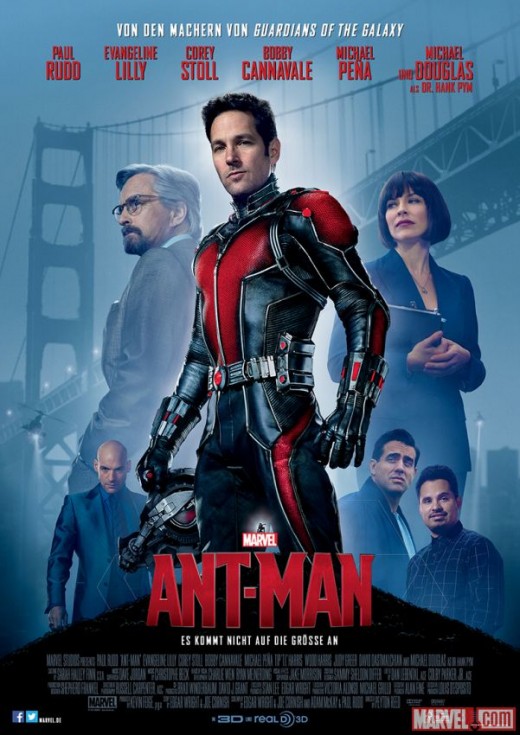
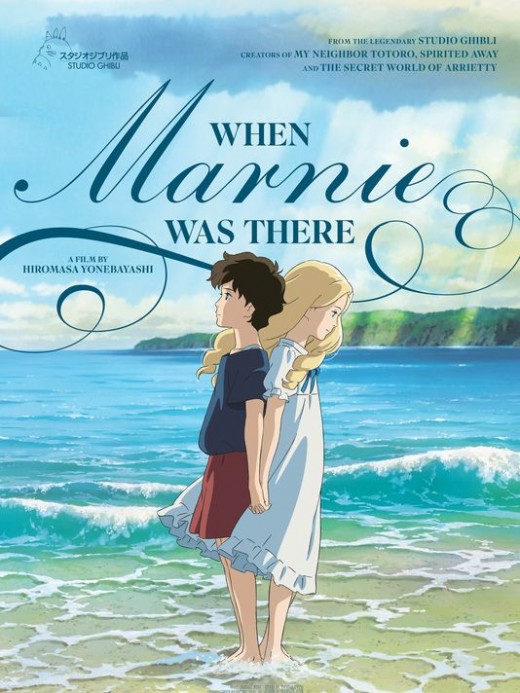
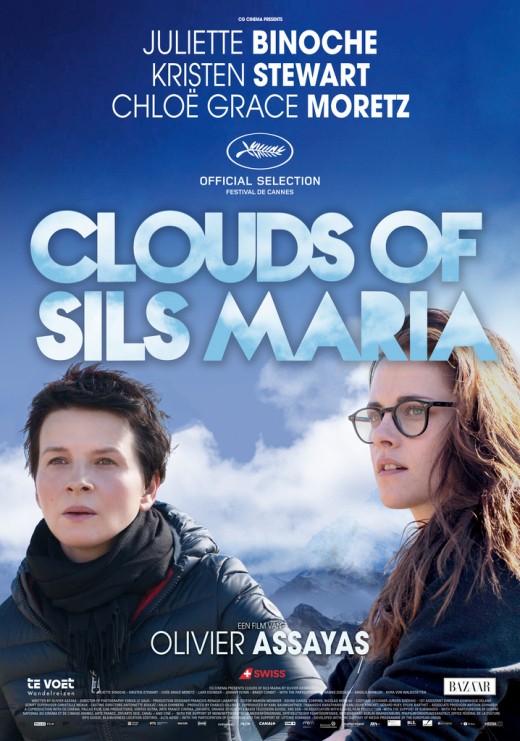
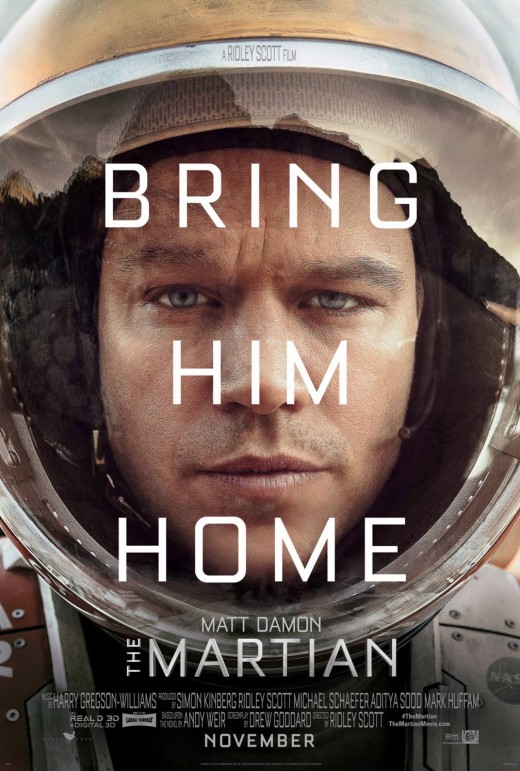
The Top Ten
1. Inside Out
The first of two offerings this year from powerhouse animation studio Pixar was an absolute delight, an instant classic on par with previous offerings like Ratatouille and Toy Story 3. In other words, Pixar has done better (Up, WALL·E, The Incredibles), but a second-tier Pixar film is still an awesome film. Also, this is one of five films I’ve seen this year that indisputably deserves consideration for a Best Picture Oscar. Somehow, though, despite only eight Best Picture nominees this one’s out in the cold for the top prize. This is criminal, and somewhat surprising, given that the film has a strikingly original concept, backed up by pretty awesome (and, I hear, groundbreaking) design and camerawork, solid vocal acting, excellent music and a pretty solid story featuring both great humor and real heart. Basically, the film is a coming-of-age film all about a girl named Riley, who has recently relocated with her parents to San Francisco, and who is in a strange emotional state because of it. At least, that would be the shorthand of a typical take on this basic plot. But Pixar films are anything but typical; in this telling, her emotions are personified (Joy, Sadness, Anger, Disgust and Fear) and operate out of a command center inside her brain. During a scuffle over core memories, the hyperactive and eternally bubbly Joy and constant wet rag Sadness accidentally get pulled out of the command center, triggering a catastrophic end-of-days scenario inside Riley’s head that leaves her an increasingly hollowed-out shell, as the two emotions desperately try to make it back to headquarters and Anger, Fear and Disgust try to keep things on an even keel in their absence. As Joy, Amy Poehler leads a cast of actors who are all pretty solid arguments for Oscars in Vocal Acting, and the music is a POWERFUL argument for a Best Use of Music in Film Oscar. At least the film is up for well-deserved Oscars for Animated Feature and Original Screenplay. In short, this is an objectively impressive film that has been a major part of the awards discussion this winter; it is also, subjectively, a film I was thrilled to add to my collection and have already enjoyed the first of several additional viewings over the years.
2. Bridge of Spies
I love it when I really, REALLY want to see a movie, and said movie actually meets expectations. Believe me, that don’t happen often; indeed, this year alone there have been a few high-profile disappointments, which I will get to in due time in the list below. Not only that, when said film goes on to get some of the praise it deserves, that’s pretty cool. Sadly, despite the fact that Bridge of Spies is freakin’ awesome, and the six Oscar nominations scored are due in no small part to director Steven Spielberg, he and star Tom Hanks were snubbed once again. Hanks plays James B. Donovan, a lawyer given the utterly thankless task of defending Rudolf Abel, a suspected spy for the Russians; believing that “Every man is entitled to a defense,” he gives far more to this task than anybody expects or wants him to, becoming a pariah in the process. Later, he is covertly tapped to negotiate a release of Abel (superbly played by Mark Rylance in one of the year’s best performances), and takes it into his own hands to fight for both fair treatment for Abel and the release of downed American pilot Francis Gary Powers (who is himself being held as a spy by the Russians). Hanks does not give his flashiest performance here, and his lawyer/ negotiator is definitely a very “Hanksian” character, but he nonetheless gives a solid understated performance that really deserves more praise than it got; as for Spielberg, this is one of his best films in years, the second-best film this year, and the man should have gotten more credit. Anyway, enough grousing about the Oscar snubs—the film IS up for Best Picture and Original Screenplay, among other things, so it did get some deserved love. About that screenplay—one of the reasons I was so stoked about this film was that it was the strongest collaboration yet between Spielberg and the Brothers Coen, who co-penned the screenplay with Matt Charman. They had one previous, albeit tenuous, collaboration—Spielberg exec-produced the Coens’ film True Grit. The trademark wit of the Coens is present in the dialogue of Spies, but one of the greatest surprises of the film was that there was just enough of it to identify their hand in the production without getting in the way of this being quintessentially a Spielberg film. The absolutely top-notch production values, great music by Thomas Newman (due to illness, John Williams sat this one out, making it the first Spielberg film since The Color Purple not to be a collaboration between the two), and most of all the brilliant (and Oscar-nominated) supporting turn by Mark Rylance all made this an excellent film, a balanced blend of art and entertainment that is all too rare in movies.
3. The Walk
I will freely admit, first and foremost, that my ranking of this film as the third-best film of the year relies more on subjectivity than do my first-and-second-place rankings for Inside Out and Bridge of Spies. However, I loved this film, dammit, and believe it to be Robert Zemeckis’ best film since Forrest Gump. Joseph Gordon-Levitt plays real-life tightrope artist Philippe Petit, the man who—in 1974—hung a wire between the two towers of the World Trade Center and walked across. Gordon-Levitt plays Petit as equal parts arrogant prick and wide-eyed dreamer, with a dash of goofy charm and more than a little bit of insanity, and Zemeckis uses a remarkably similar tone for the movie as a whole. Imagine if Gump met up with Tim Burton’s Ed Wood, and the two had an unruly love-child, and you’ve got an idea of the impression this movie leaves. It is also worth noting that this is the only 2015 release I INTENTIONALLY saw in 3D, and it fully deserves to be seen in this format (Everest, The Martian and The Good Dinosaur had their moments, Home debatably did). Granted, my high tendency to vertigo had me concerned about seeing this one in 3D, but while certain scenes made me extremely uncomfortable, I did not suffer the rougher physical effects some viewers reportedly did. That said, the visuals in this film were pretty awesome. It also rocks an awesome soundtrack, not the least of which due to Alan Silvestri’s wonderful score—this film is a potent argument for a Best Use of Music in Film category. Though this film’s awards chances were modest at best, that score and some of the technical awards—at the very least—should have had this film in the Oscar conversation.
4. Sicario
I had decidedly mixed feelings about Sicario going in. On the one hand, the early buzz about the film was that it was well worth watching, and that it would be an awards contender. On the other hand, the one word I kept hearing used over and over again was “intense,” and a few poorly-chosen descriptions regarding the film led me to expect a film I’d have trouble stomaching. Having seen it, I am greatly pleased that I did not give this one a pass, because it is pretty awesome. It IS “intense,” make no mistake. That said, only a few images are so grotesque I had to look away, and there is one (thankfully not shown) sequence where the sound effects make one squirm. Mostly, the film is simply intense through a masterful arrangement of image and sound, set to an excellent score by Oscar-nominated Jóhann Jóhannsson (worlds apart from The Theory of Everything); the whole package is skillfully directed by Denis Villenueve and features Oscar-level performances by Emily Blunt and Benicio Del Toro. Indeed, Del Toro gets three of four of the film’s arguably most intense moments, and is chilling in his portrayal of DoD “liaison” Alejandro. Two of these scenes are definite WTF? moments, but you almost can’t fault his character for such acts. Overall, this was a film that got under my skin and left a distinct impression, and that’s typically a good thing. Though I did not like the film exactly, I respect it, and rate it among this year’s few true contenders for Best Picture. Apparently, the Academy does not agree with me on this, having passed this film over not only for Best Picture, but also for Villenueve’s great direction and those previously mentioned Oscar-level performances by Blunt and Del Toro. That said, the film did score three nods—Cinematography, Sound Effects Editing and Original Score, all well-deserved. All told, this is a film to watch, though I can safely say I’m in little hurry to see it a second time.
5. The Revenant
Much like Sicario, The Revenant is, simply, intense. This is another film that I dreaded seeing, and yet I could not look away. Filmed sequentially on location in Alberta and Patagonia with almost entirely natural lighting, the new film by maverick auteur Alejandro González Iñárritu was, if nothing else, a bold experiment. The very loosely “based on a true story” film follows wilderness scout Hugh Glass, who—while leading a trapping expedition—was mauled by a bear and left for dead; after clawing his way out of the woods, he then sought revenge on those who abandoned him. In this telling, Glass is portrayed by Leonardo DiCaprio, who has been a frontrunner for months in the Best Actor race, even though the film only bowed at the very END of 2015; basically, he gave 250% for this role, and if he doesn’t win that Oscar better go to Michael Fassbender’s transformative channeling of Steve Jobs. The film opens with Glass and his son Hawk (Forrest Goodluck) hunting elk in the woods near camp when the camp is attacked by Arikara natives; after a dizzying display of violence and Emmanuel Lubezki’s phenomenal camera work, the survivors (now joined by Glass and Hawk) make it to a barge and set off downriver. Here were find a serious division in the ranks, where it is clear that Glass and his son are not particularly welcome in the party, and only through the efforts of their commanding officer, Captain Henry (Domhnall Gleeson) are the men at all civil to them. However, even the admonitions of his commanding officer do not stay the tongue of the openly insubordinate John Fitzgerald (Tom Hardy), who does not rest in his efforts to rid the party of the two scouts. After the bear attack, it is entirely through the efforts of Hawk and Captain Henry that Glass is cleaned up and bandaged as best as possible, and carried with the party for as long as possible. When this finally proves to be a losing prospect, Henry designates Hawk and another young man named Bridger (Will Poulter) to stay with Glass until such time as he recovers or dies, or help is able to come for them; to his surprise, Fitzgerald offers to stay as well, provided he be paid for his troubles. The Captain’s fears prove to be well warranted, since it does not take long for Fitzgerald to kill Hawk, bury a still-breathing Glass, and trick Bridger into returning to camp with him. The film then enters into the revenge portion of the story, albeit one that gets off to a slow start due to the fact that Glass is still crawling back from death’s door. All the while, the various characters are being pursued by the Arikara party from the opening scene, who are seeking the missing daughter of their leader. All told, this is an intense film on several levels, and I can fully see why it is up for so many Oscars (twelve). Whether it’ll manage a sweep at the awards or Leo’s inevitable win will be the token win is something we’ll find out soon enough; it’ll also be interesting to see if Lubezki can be the first cinematographer to win three years running (after 2013’s Gravity and 2014’s Birdman). Like Sicario, I cannot say I’m in a hurry to see this again, but it will most surely deserve a spot in my collection.
6. Kingsman: The Secret Service
I love this movie, an ultraviolent take on the standard spy thriller; the oft-used description of James Bond meets Kick-Ass is not at all inappropriate—especially since the original graphic novel was by Mark Millar, author of Kick-Ass. In fact, though the film takes SERIOUS liberties with the particulars of its source material, it comes so close to capturing the tone and overall story that I still consider it a more than adequate adaptation; it certainly doesn’t hurt that the film makes excellent use of solid production values, a kick-ass rock-infused soundtrack (a solid argument for Best Use of Music in Film), and solid acting, including hilariously against-type performances by Colin Firth (as spy Harry Hart) and Samuel L. Jackson (as megalomaniacal terrorist Valentine). Also, the extended cameo by Mark Hamill is flat-out hilarious in light of the original graphic novel. Finally, Taron Egerton is no slouch as Gary “Eggsy” Unwin, a delinquent offered that chance to be so much more when he is recruited by Hart to train as a spy. Though it would take one weak-ass year for this film to truly merit Best Picture consideration, I have no problem declaring it a personal favorite, and have little doubt that this one will likely stay in my top ten even beyond Oscar season.
7. Ant-Man
The newest addition to the Marvel Cinematic Universe, and the film which closes out “Phase Two” of their movie offerings, Ant-Man was this year’s answer to Guardians of the Galaxy—far more fun than anybody really thought it would be, and possibly more so than it had any right to be. I for one eagerly anticipated this film, but tales of behind-the-scenes snafus and a general lack of interest on my part in the Ant-Man comics left me somewhat cautiously optimistic. I still want to know what Edgar Wright would have done with the material, but “Que sera, sera.” Fortunately, the movie we did get is pretty great; Paul Rudd is more than effective in the role of Scott Lang, the second Ant-Man (Michael Douglas gives solid support as Henry “Hank” Pym, the inventor of the Ant-Man technology and the first to don the suit). Corey Stoll is also pretty great as Darren Cross, an unscrupulous and slightly insane businessman who steals Pym’s technology to create the Yellowjacket suit, and who suits up himself to take on Lang. When all is said and done, I’d probably rate this one behind The Avengers, Iron Man and Guardians for the films so far in the MCU. Still, it’ll be a weak year indeed if this one remains in my top 10 much longer, and I can’t help but hope for enough awesome films to edge Ant-Man out. In the meantime, though, solid acting, top-notch production design and excellent writing and directing combine to make this one of my top picks of the year; Anthony Mackie also gets a shout-out for adding fuel to my argument for Best Bit Player/ Cameo.
8. Omoide no Marnie (When Marnie Was There)
Thank God When Marnie Was There scored at least one Oscar nod! True, the film has no chance of beating Inside Out, and I myself would not give this film the edge over the other, but the serious lack of heat this film had behind it had me worried. The fact that Studio Ghibli’s future is up in the air, and their second film helmed by Hiromasa Yonebayashi (The Secret World of Arietty) may be their last, makes it all the more essential that this film at least catch Oscar’s notice. This is even truer due to the fact that this is a freakin’ awesome movie! It is a coming-of-age tale following Anna Sasaki, a truculent and emotionally detached young teen who is sent to live with her aunt and uncle in a rural coastal town. While there, she becomes fixated on Marsh House, a supposedly abandoned mansion set back among the tidal marshes; this fixation becomes a full-blown obsession when she meets one of the mansion’s inhabitants, a girl about her age named Marnie. Naturally, things are a bit odd where Marnie is concerned, and Anna’s process of discovery is but one of the interesting threads of this narrative. The film is not perfect—Anna’s attitude makes her a difficult protagonist for the first portion of the film (and periodically thereafter), and Marnie glomps onto Anna so quickly and completely that it makes no sense until near the end (though once explained, her actions are easily forgiven). That said, this is a beautiful and emotionally effective film that didn’t leave me with the slightly underwhelmed feeling Arietty did. The soundtrack wasn’t quite as awesome as the former film, but I’ll maintain until my dying day that Cécile Corbel was ROBBED when her music for Arietty apparently wasn’t even submitted for Oscar consideration (from everything I’ve been able to determine, it seems that the other Ghibli film released that year, Goro Miyazaki’s From up on Poppy Hill, was their sole Oscar submission, to the detriment of all involved with Arietty). Not as awesome as one of the greatest soundtracks ever released still leaves a lot of room for awesomeness, however, and Takatsugu Muramatsu’s score should have been in the Oscar conversation, while the lack of an Original Song nomination for Priscilla Ahn’s lovely “Fine on the Outside” was a straight-up snub. Anyway, if (as is likely) you have not yet seen this film, watch it posthaste—it may not be capable of defeating Inside Out, but this is still one of the best films of the year.
9. Clouds of Sils Maria
Technically a 2014 release, the newest film from acclaimed director Olivier Assayas did not make its stateside bow until 2015, making it eligible for inclusion on this list (and a part of the conversation this awards season). To make matters more complicated, the film was in the conversation last awards season for a slightly different reason—having been released in France in 2014, it was a big nominee at the César awards, the French equivalent to the Oscars. Most notably, it won a César—Best Supporting Actress for Kristen Stewart. Not only was this notable for the severe WTF? reaction it elicits from most Amercans, it also was an historic win—Stewart was the first American actress ever nominated for a Supporting Actress César, and only the second ever nominated (after Julia Migene’s Lead Actress nomination for Carmen); she follows Adrien Brody’s Best Actor win for The Pianist as only the second American to win an acting César (feel free to once again go “WTF?”). That said, Stewart does a fine job as the stalwart assistant to an aging actress reluctantly revisiting the play that made her famous (a great job by Juliette Binoche), and I have to concede that here she goes a long way towards atoning for the Twilight franchise. That said, “first American actress to win a César”? WTF? Anyway, though I do think that aspect of the film was overrated, this is, overall, a sorely underrated film. To put it bluntly, the film is pretty awesome. The direction and production values are top-notch, the writing and acting are solid, the music is great, and the scenery shots (of which there are many) are gorgeous. This is one of those films that make you want to take a trip right away (incidentally, the same could be held true of Marnie—impressive for an animated film). In short, I thoroughly enjoyed this film, and highly recommend that you check it out; historical value aside, maybe you can puzzle out how it got NO Oscar nods.
10. The Martian
One of the biggest hits this year that resonated with both audiences AND critics, Ridley Scott’s newest sci-fi tale is easily one of his most entertaining films yet. Given that he is a man known to be a skilled crowd-pleaser, that is saying something. How he failed to garner an Oscar nomination is something almost as puzzling and shocking as Steven Spielberg’s snub for Bridge of Spies. Though I personally found the film a bit overrated (as indeed I do with most Ridley Scott films), I nonetheless found this tale of stranded astronaut Mark Watley (Matt Damon) and the various parties first debating and then attempting to bring him home to be well-made, thrilling, and more than a little bit humorous. Watley’s declaration that he will “science the s@$%” out of the resources at hand to survive is but one particularly amusing moment. This is not likely the deepest film we’ll see this year, but the film is nonetheless up for seven Oscars, including Best Picture and Best Actor; Scott worked similar magic with Gladiator, and we all know how well that film did at the Oscars. Side note: the small size of many of the roles in this film might work as an argument for a three-tiered acting awards system, with the male and female Best Bit Player/ Cameo awards. Just sayin’. Also, speaking of the cast, I have to note some apparent casting snafus. One, the book apparently had a Korean character who is portrayed in the movie by a white girl (Mackenzie Davis), and an Indian character portrayed on film by black Brit Chiwetel Ejiofor; as a result, the film is being accused of “whitewashing” its cast. While I am utterly appalled and offended at Hollywood’s CONTINUED racism against Asians, I have to be amused that Ejiofor could be considered evidence of “whitewashing.” Really?!? Personally, I thought Davis did a fine job (though this could have been a chance for someone like Doona Bae to shine), and though I would have relished another chance to see Irrfan Khan (after his great turn in Jurassic World) or someone less ubiquitous in Indian roles like Anupam Kher, Ejiofor did great in his role. Also, this is a film that actually did have a couple casting gaffes. First, though she is a fine actress, Kristen Wiig seemed noticeably uncomfortable in her role. The real casting snafu, though, was as follows: everybody knows Sean Bean only plays characters who get killed—he therefore was hopelessly miscast as someone who survives to the end. Just kidding—Bean was great here. Anyway, having mentioned Gladiator, I feel compelled to note Maximus (Russell Crowe)’s famous line, “Are you not entertained?” By this movie, yes, yes I was.
So there you have it, my ten favorite films of the year. Hey, at least a couple of them got Best Picture nods from Oscar. A quick note, before we proceed. You may have noticed that I have so far lightly touched on a topic that has been the talk of the media ever since the Oscar nominations were announced, the "whitewashed" Oscars. Or, as our Twitter-happy world would know it, #Oscarssowhite. Personally, I think most of this is overblown--as the Oscars are concerned--since this year there were simply not that many extraordinary roles (on camera or off) for non-Europeans in Hollywood, and few high-profile foreign films. Those we did see were often left out for political reasons that had nada to do with race (airing almost simultaneously on Netflix, for example, or pitting a talented newcomer against a beloved vet).That said, the very fact that there were so few of these roles underlines a far more pervasive issue, one that the minor controversy over The Martian and the huge controversy over Aloha addressed--unsuccessfully--as the year went on. I do think people tend to vilify the Oscars because they are the easy target, but if we could use that vitriol all year long maybe positive change could be made in terms of who gets to make what movies. Sorry, didn't mean to spend so much time on a political tangent; it seemed prudent, though, since many of the films from here out will be discussed in light of this controversy. I would also like to take a moment to state, unequivocally, that I side with those that think Hollywood is racist against Asians. I could go on and on about past snubs, but let's take a moment to look at this year: Rinko Kikuchi, the second Japanese woman ever nominated for an acting Oscar and one of only eight (?!?) women of Asian descent nominated in either the lead (one) or supporting (seven) categories gave an incredible, Independent Spirit Award-nominated lead performance in Kumiko, the Treasure Hunter, while Naoko Mori was a long-shot (but viable) Supporting Actress possibility for Everest; meanwhile Priscilla Ahn, the Korean-American songwriter behind "Fine on the Outside" from When Marnie Was There was a very definite snubbee when the nominations were announced, when she could have been the seventh Asian nominee for Original Song, and the first of Korean descent, and composer Takatsugu Muramatsu could have joined an equally short list in the Original Score category. This is just the tip of the iceberg, though in fairness I should note that ten Asians are nominated in various categories, though most people would never notice. Oh, one last bit--that number would go up (if only due to When Marnie Was There) if the Academy would wake up and notice that the Production Design category, and probably also the sound categories, should be dominated by animated films. Anyway, thus endeth my rant. Get up, walk around, get a beverage, and enjoy the next list of films when you are ready.
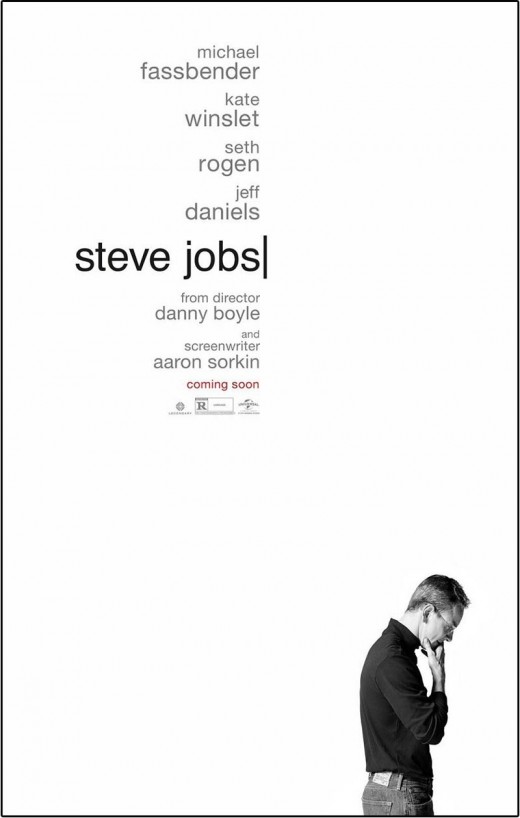
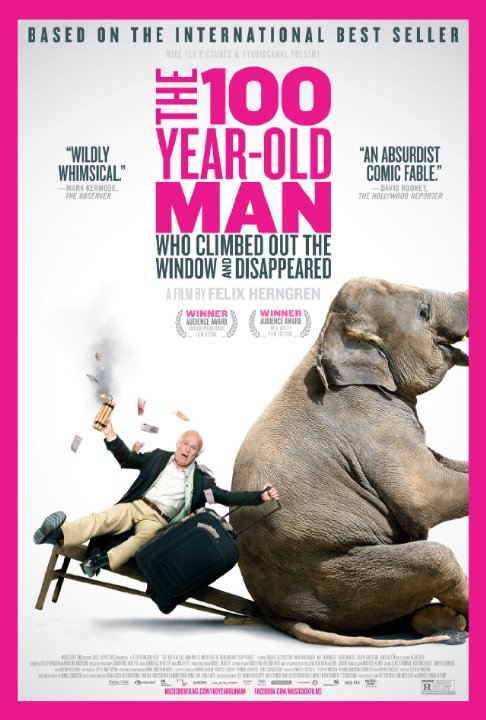
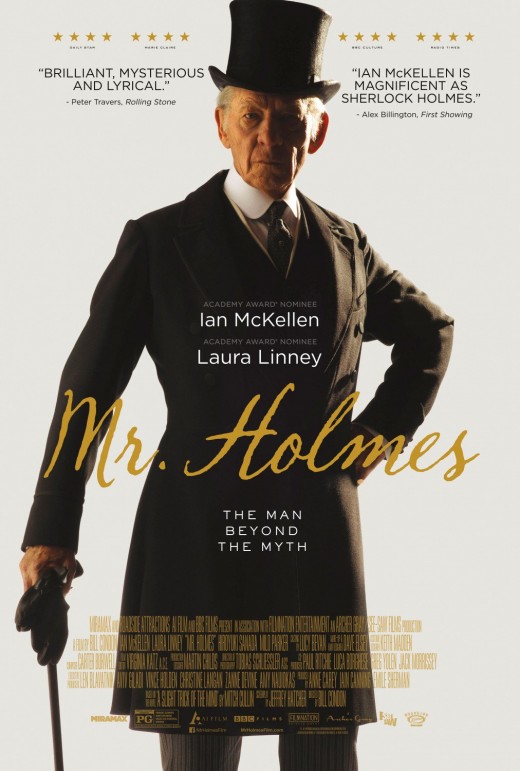
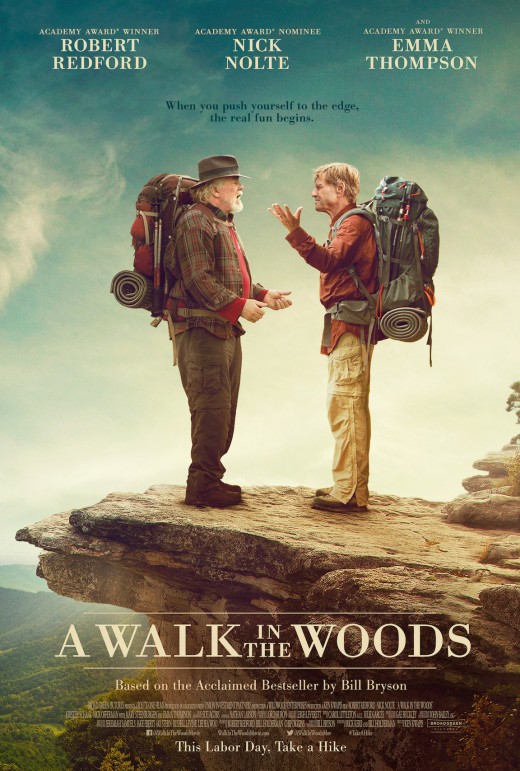
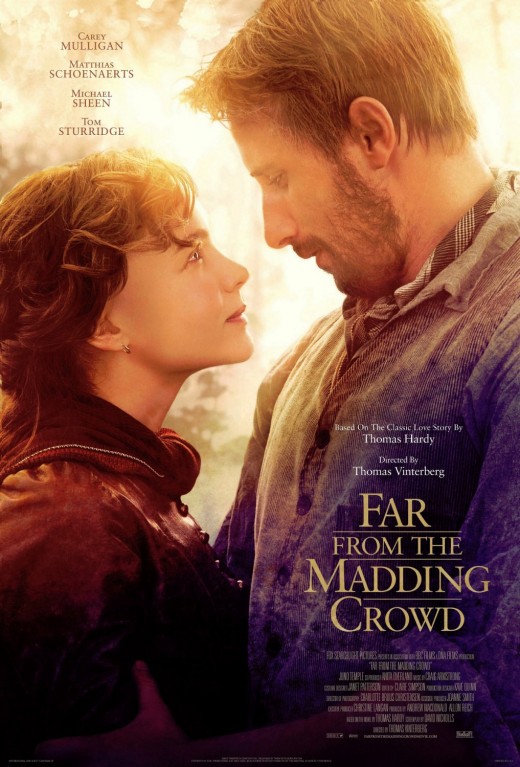
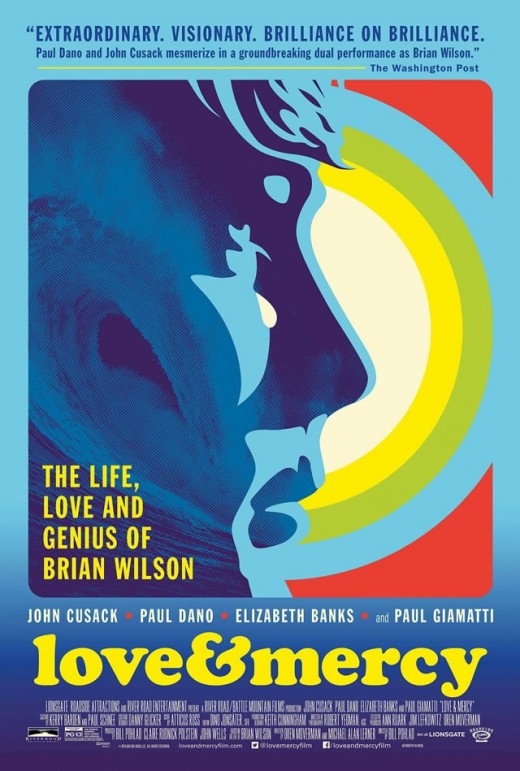
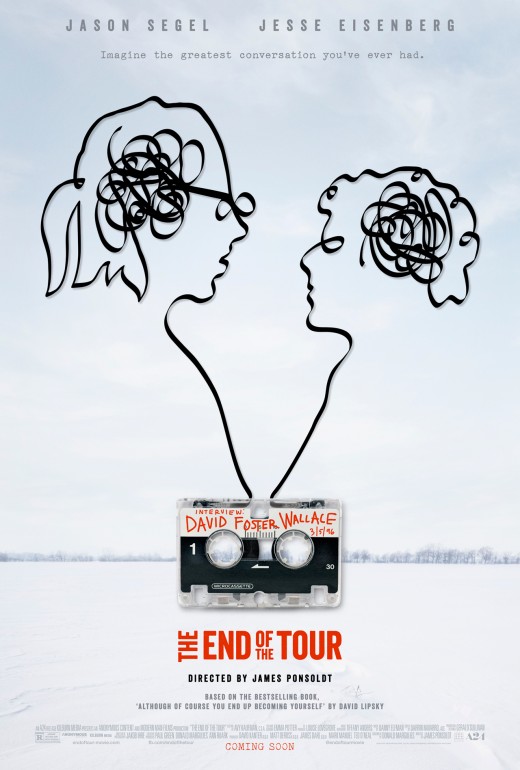
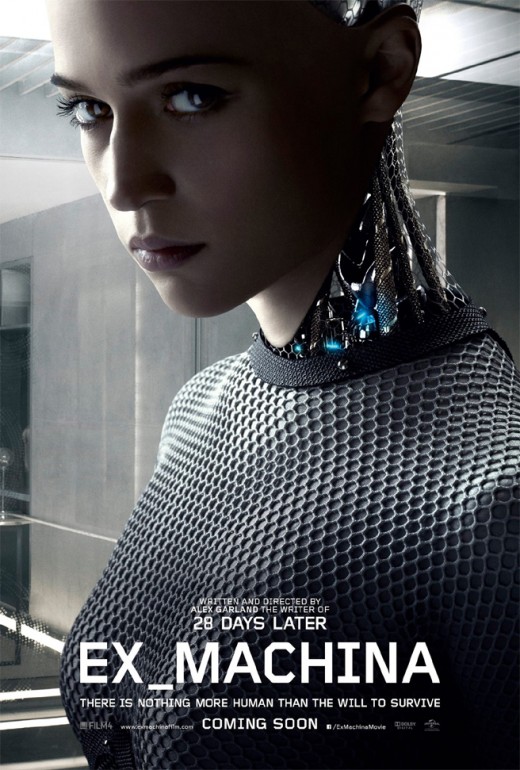
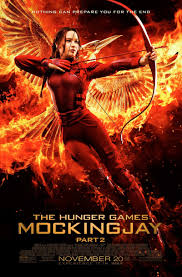
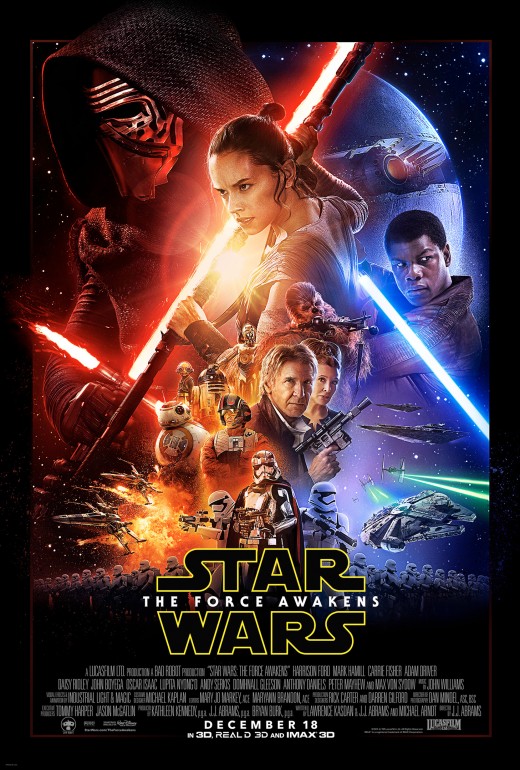
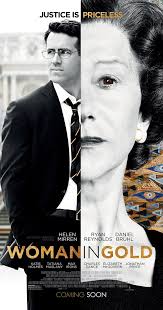

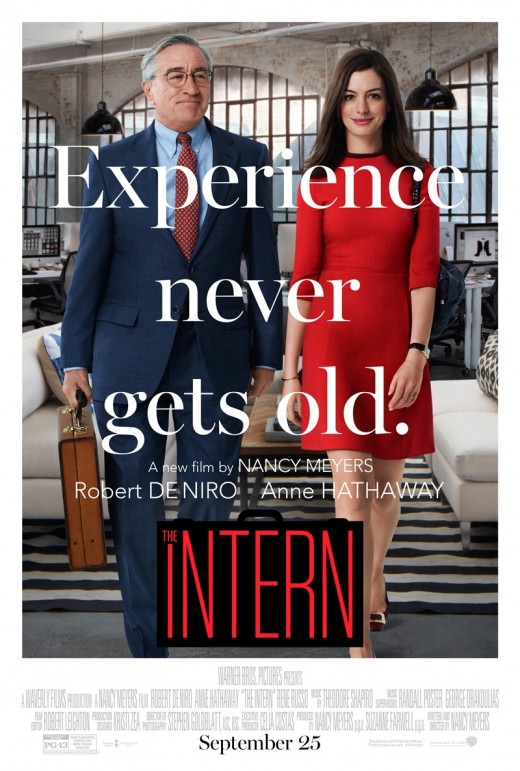
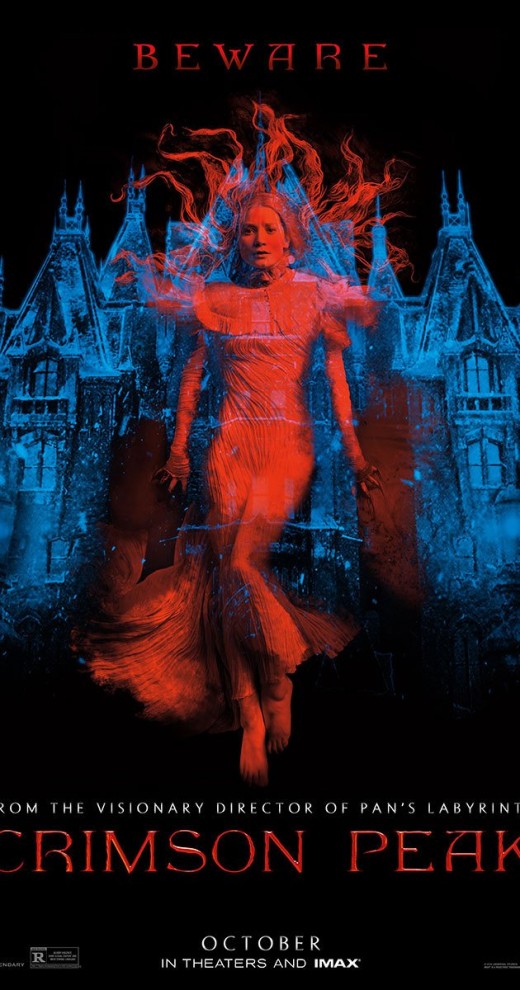
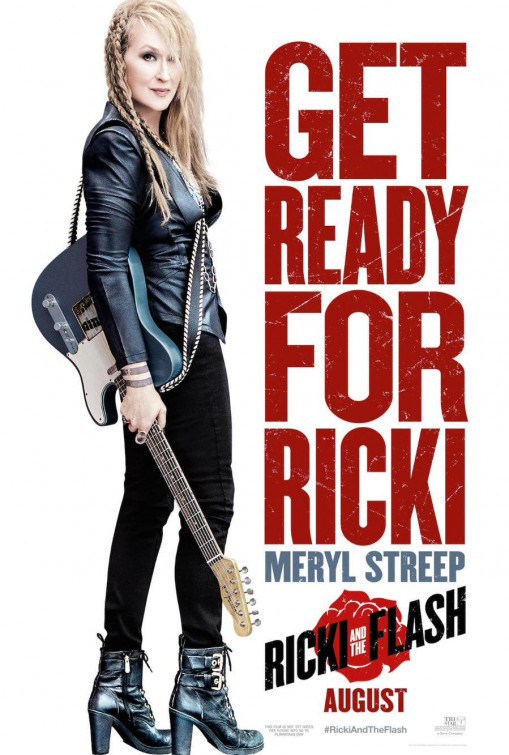
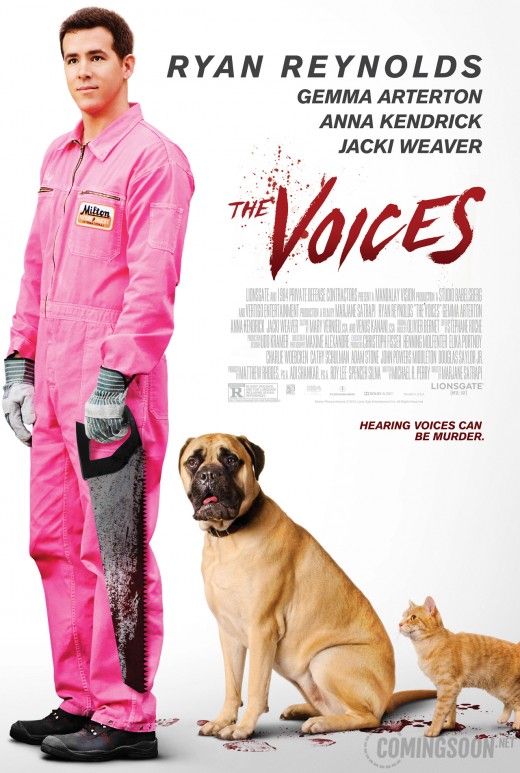
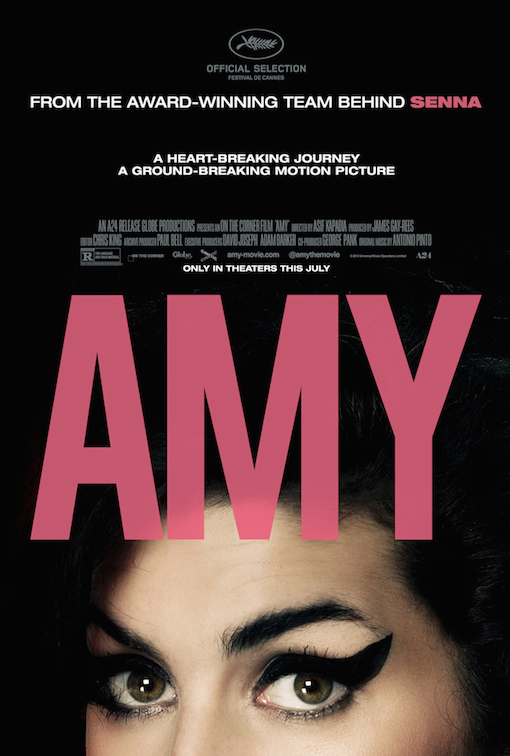
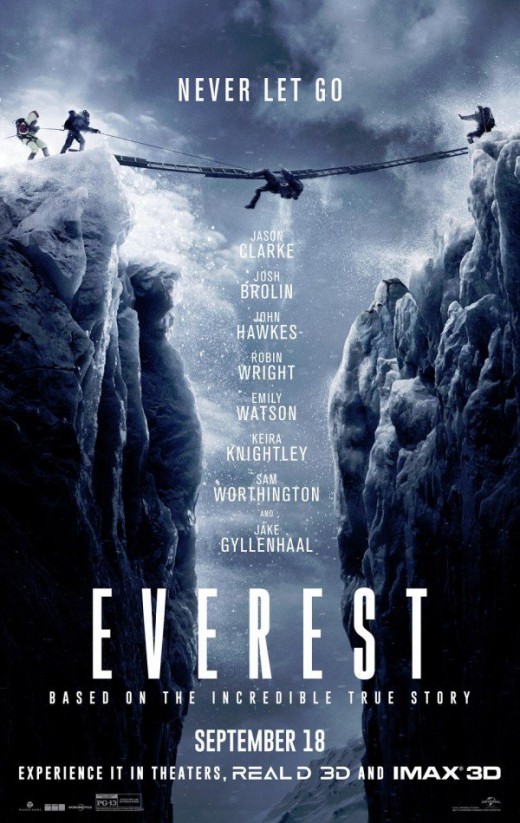
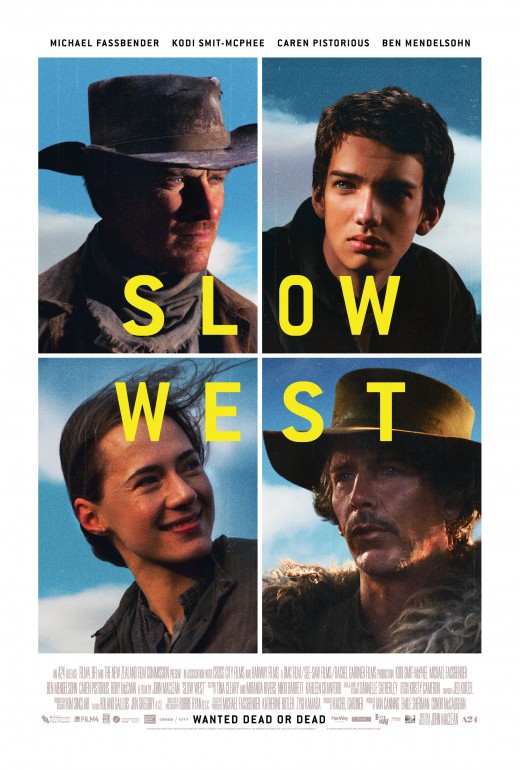
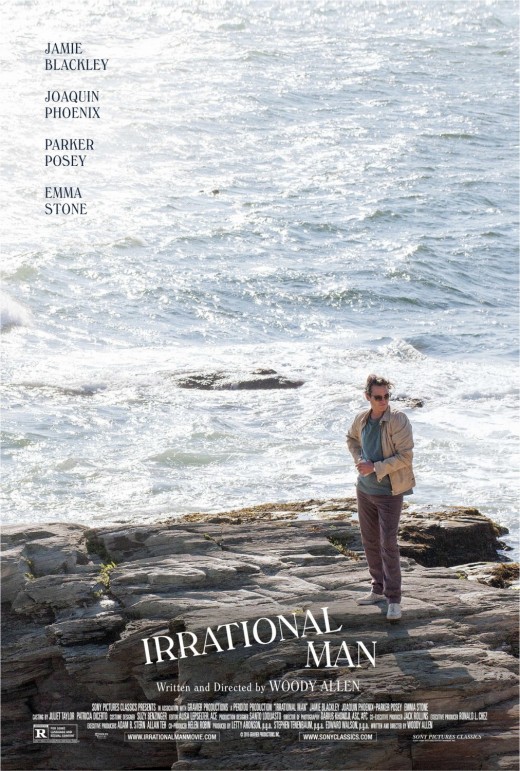
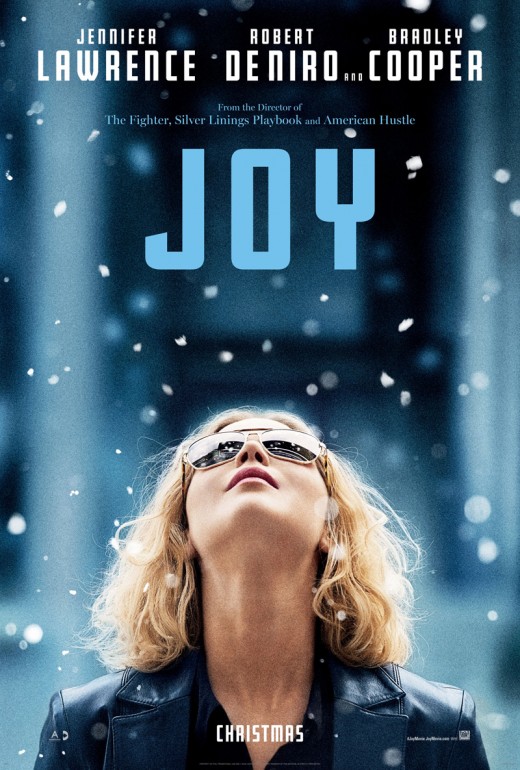
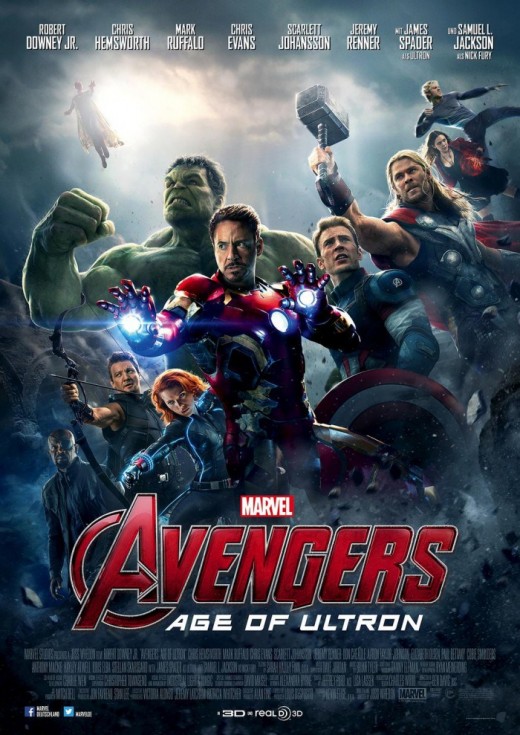
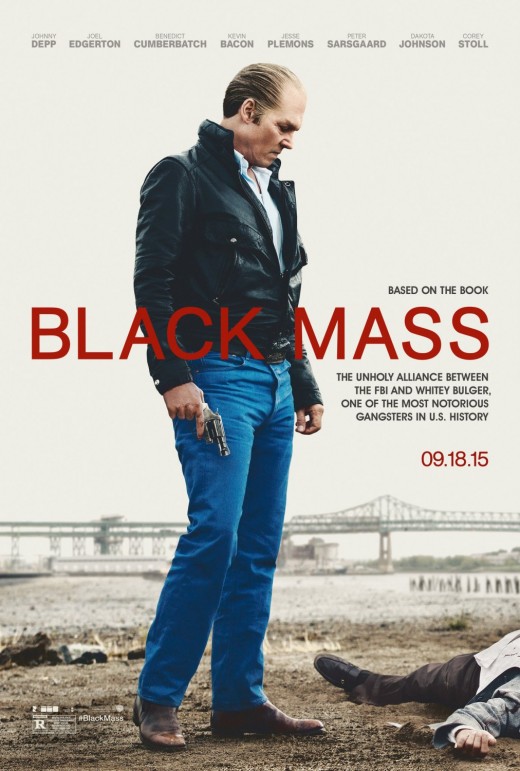
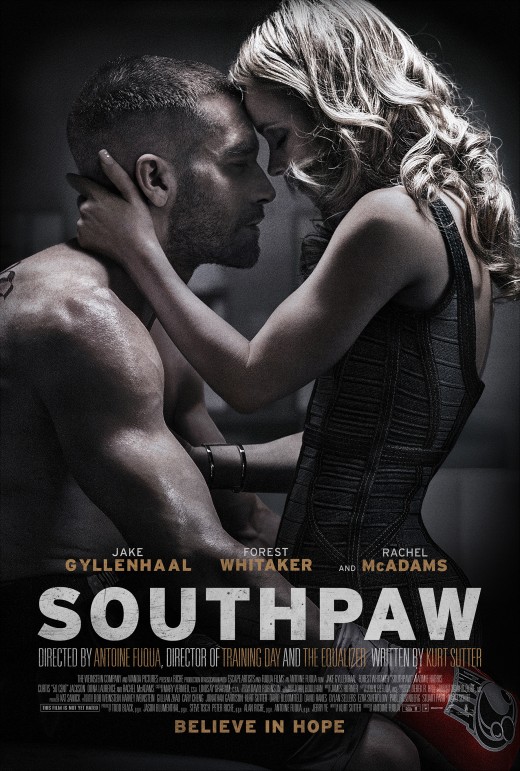
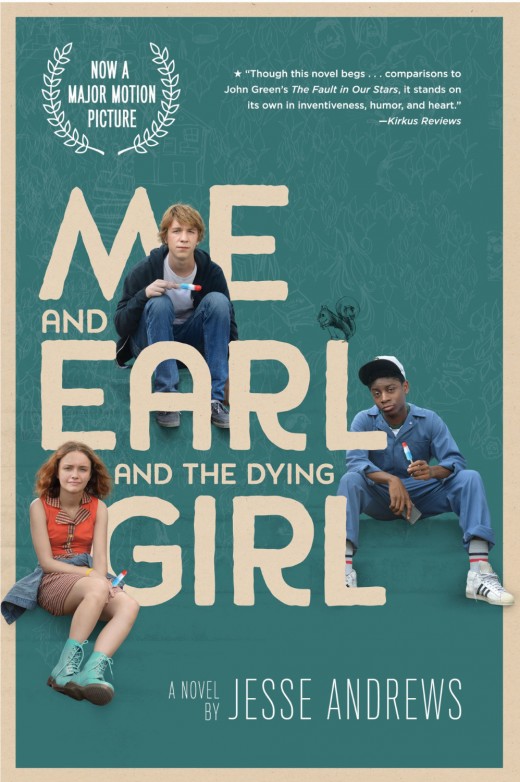
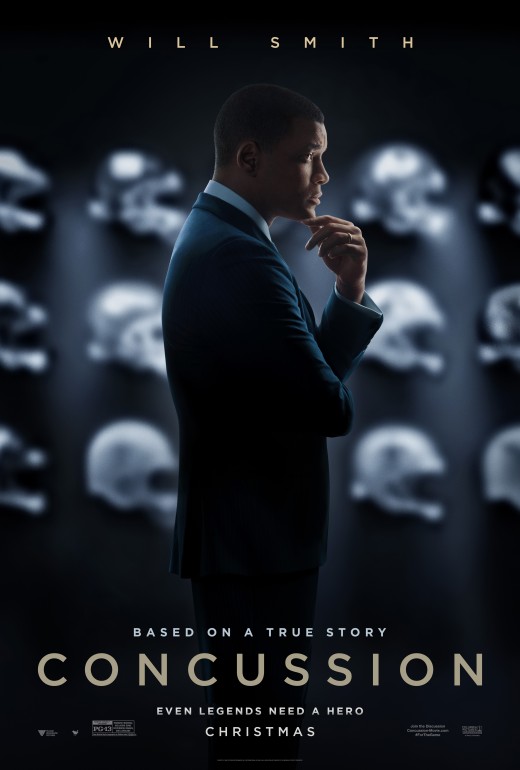
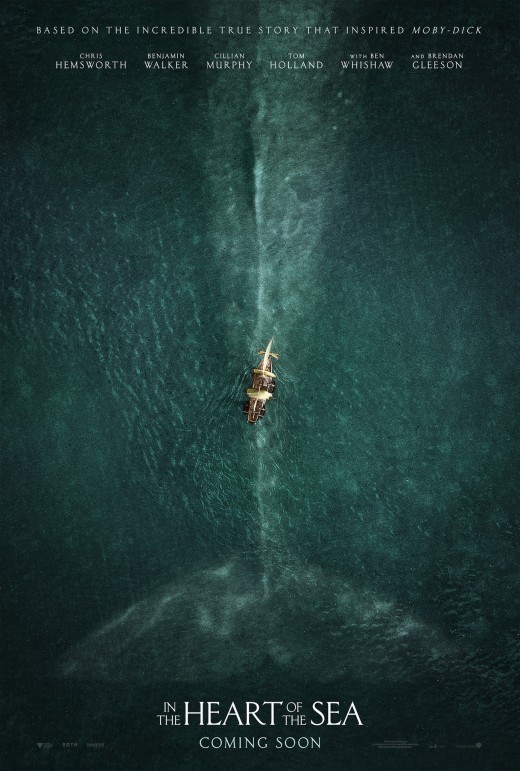
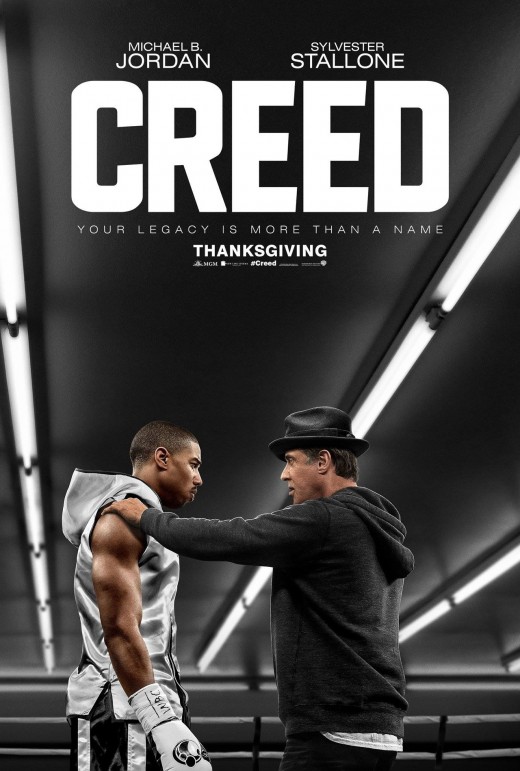
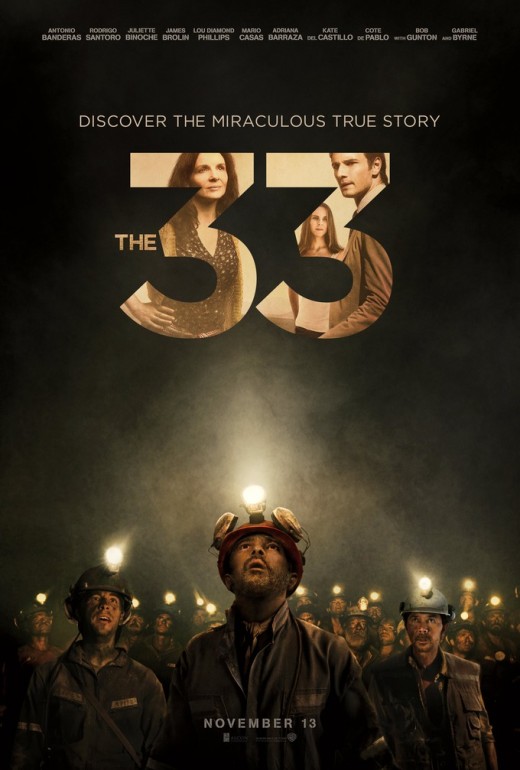
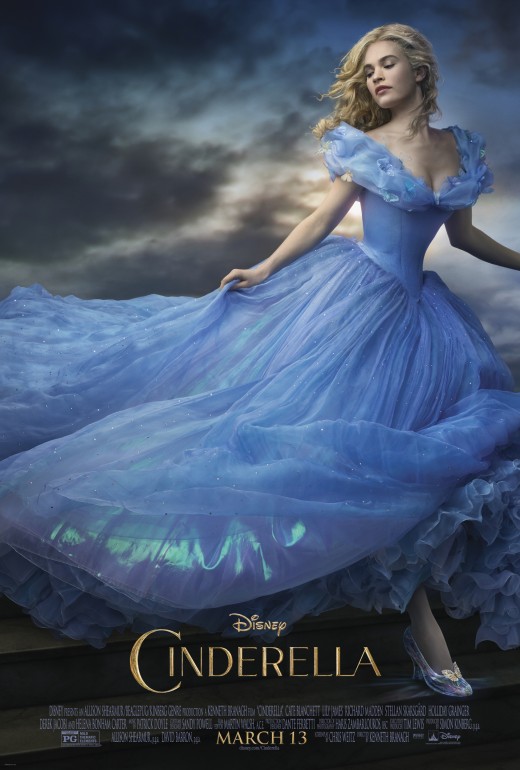
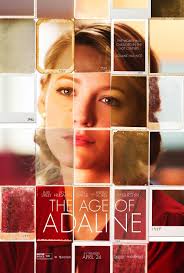
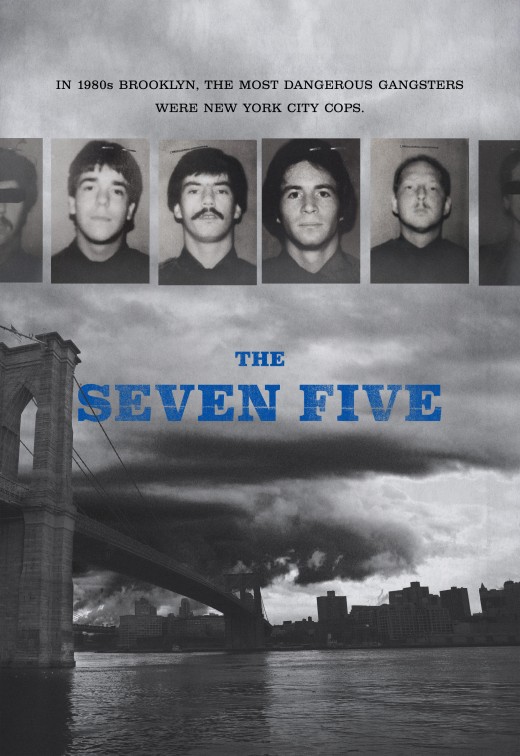
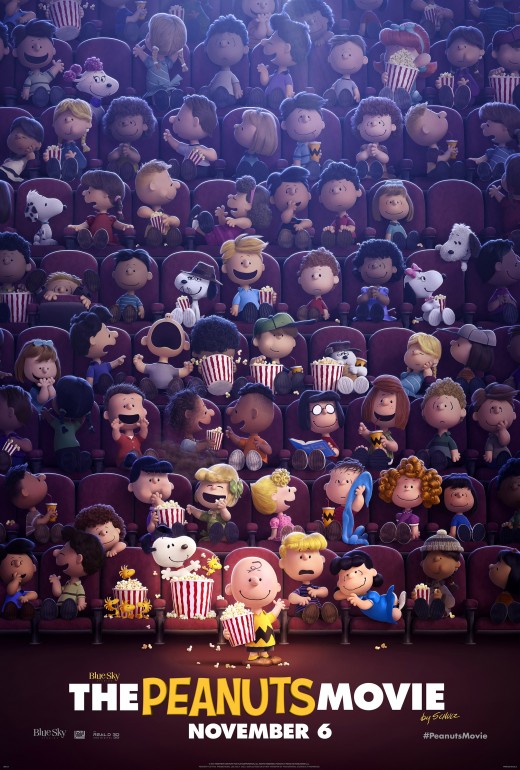
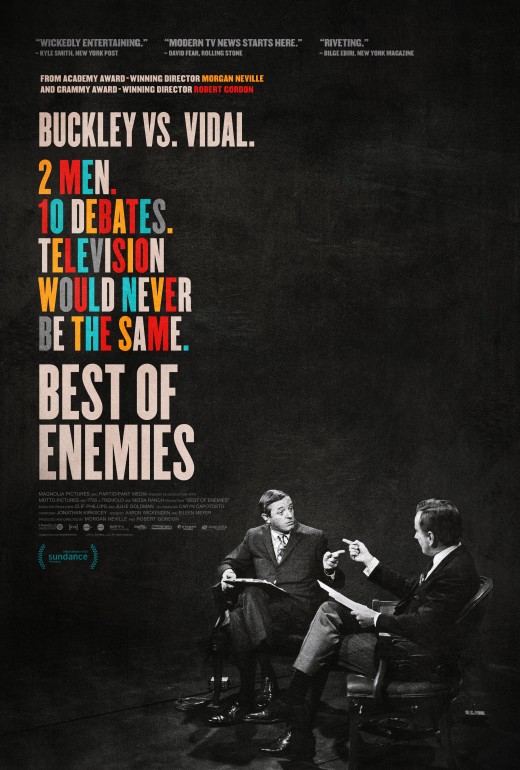
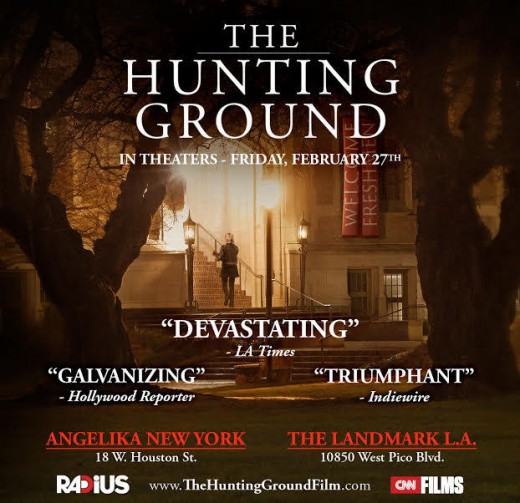
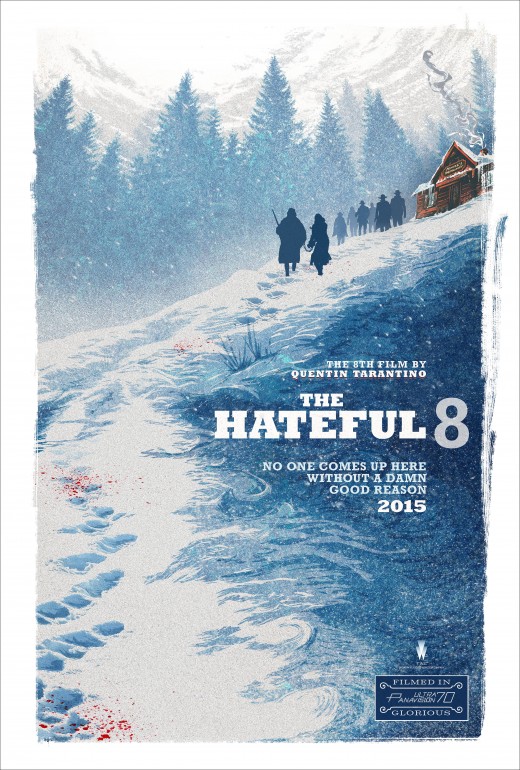
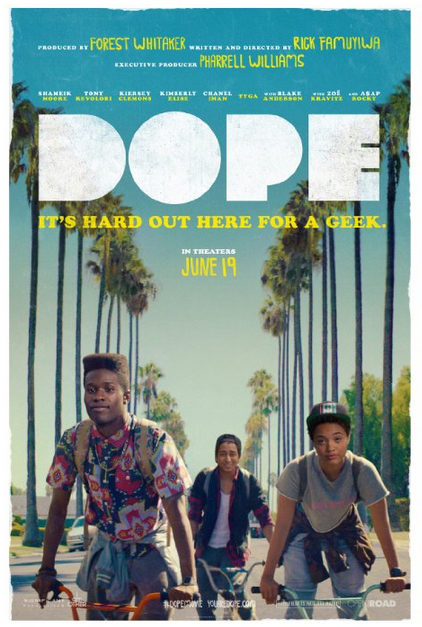
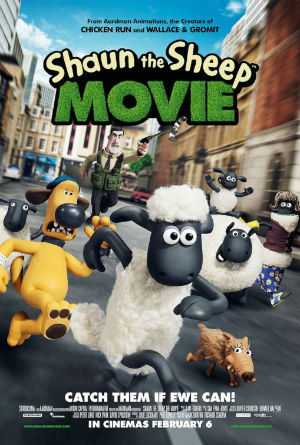
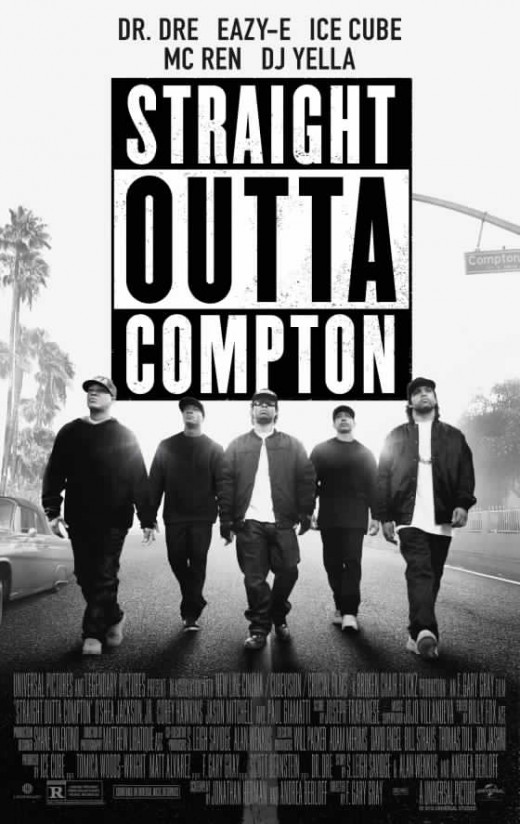
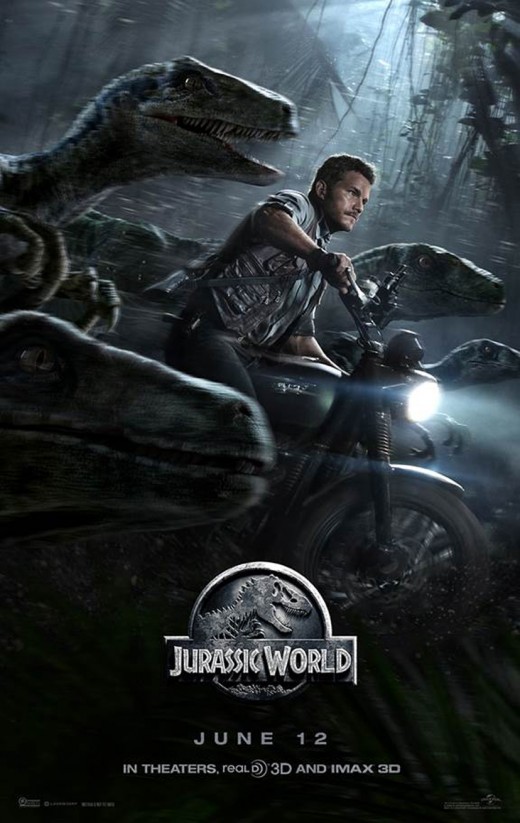
The Best of the Rest
11. Steve Jobs
Danny Boyle’s intriguing-yet-flawed biopic was riding an avalanche of buzz up until its graduated release last fall, an approach that was quickly scrapped when it appeared that the film would likely bomb at least somewhat at the box office. As it is, the film did largely fizzle after its weak theatrical run, though Michael Fassbender still scored a WELL-DESERVED Best Actor nod from Oscar, and remains one of the only viable threats to DiCaprio’s likely win. The only other nomination the film got, in the end, was a Supporting Actress nod for Kate Winslet’s phenomenal supporting turn (this is easily one of her best performances, and that is high praise coming from me). Taking place in the run-up to three separate product launches by Jobs—the Macintosh in 1984, NeXT in 1988 and iMac in 1998—the structure of the film has been widely derided, and indeed it does make for an oddly-paced, “uncinematic” film. That said, I kind of liked it, and I give Boyle and screenwriter Aaron Sorkin credit for taking a fresh and unusual approach to the story. Another controversial aspect is how dark Jobs comes across; the man was known for being difficult and narcissistic, but the Jobs shown here would have been hell to work with (not to even mention what it must have been like for his daughter). That said, Fassbender’s performance is extraordinarily notable for how much nuance he allows the role; his Jobs is no one-note monster, but a living, breathing man with issues, who also happens to be pretty damn good at what he does. As his long-suffering personal assistant Joanna Hoffman, Winslet injects a bit of humanity into scenes where the film threatens to verge into monstrous territory, and she manages to go toe-to-toe with Fassbender at every turn. The impressive supporting turns from Seth Rogen, Jeff Daniels and Michael Stuhlbarg, among others, only made the film better—I agree with observers who rate this as likely Rogen’s best performance yet. I also give Boyle and cinematographer Alwin H. Küchler credit for their interesting technique of filming each sequence with a different type of film stock to reflect changing technology through the years—this actually is noticeable onscreen, and adds an interesting component to the proceedings. Overall, though this film is decidedly flawed, it is very intriguing, and probably deserved a tad more Oscar love than it got.
12. Hundraåringen Som Klev ut Genom Fönstret och Försvann (The 100-Year-Old Man Who Climbed
Out the Window and Disappeared)
Dang, I loved this movie! The shorthand of it is this: think of a Swedish take on Forrest Gump aimed at a more squarely adult audience, where the main character is a bit less innocent, and you have a film about an old man obsessed with explosions who wanders off from his nursing home and goes on possibly his biggest adventure yet, all the while reflecting on his previous adventures. The Gump comparison derives partly from the way 100-year-old Allan Karlsson seems to have only one foot in the real world, and partly from the way that he has managed to wander through many defining moments in history, meeting and befriending many well-known individuals. An obliging, friendly fellow who seldom looks at others with any sort of judgment or prejudice, Karlsson may be fighting one moment for the Spanish resistance fighters, and the next saving the life of their opponent, General Franco; he may join the Manhattan Project solely because he loves blowing stuff up, winding up an integral part of the project, and then go from dining with Harry S. Truman to accepting a request to share what he knows with Josef Stalin, simply because he was asked to. And then he might find himself in the Siberian labor camps because he innocently mentioned to Stalin that he was General Franco’s friend. All this is nothing on the craziness of the adventure that drives the plot of this film, which involves an elephant, a bored station agent, a scholarly fellow with a pathological fear of commitment, an inept biker gang, confused police and a ruthless mobster played by the same fellow (Alan Ford) who played a ruthless mobster in Snatch. Through it all, Karlsson is played with wonderful drollness by Robert Gustaffson, and I sincerely think he should have gotten a bit more awards buzz than he did. That said, I was deeply impressed (and mildly shocked) that this film DID score an Oscar nod—Best Makeup, for the phenomenal job that was done aging Karlsson over the course of several decades. Overall, this film is great fun, and very well worth watching; I can see why it is apparently the highest grossing domestic film in Swedish history.
13. Mr. Holmes
One of the films I was most excited to see this year was Bill Condon’s Mr. Holmes, a period drama about an elderly Sherlock Holmes battling encroaching dementia while simultaneously trying to puzzle out the case which had proven to be his last. Having narrowly missed the film when it hit theatres (due to insufficient funds at the time), I was quick to place a hold on the DVD when my library added it to their system, and finally got to see it shortly before the Oscar nominations were announced. Partly it was due to this timing that I was keenly aware that the film was completely overlooked by Oscar. Partly my awareness of this oversight was also due to fact that this truly is an excellent film, and one which deserved a whole lot more awards buzz than it ultimately got. I can say this with some assurance since I had also just completed a massive (approximately 1020 page) tome that collected together the early Sherlock Holmes novels A Study in Scarlet and The Sign of Four, as well as the short story collections The Adventures of Sherlock Holmes, The Memoirs of Sherlock Holmes and The Return of Sherlock Holmes, all by Sir Arthur Conan Doyle, and felt quite at ease with determining how much in the spirit of the original stories this film (and its characterization of Holmes) were. I have to say, I found no need for complaint. What little inconsistencies I noted were actually explained away by Holmes himself; all of the writings I had read had been in the voice of Holmes’ dear friend and boon companion Dr. John Watson, and in the film Holmes quite contemptuously brushes these accounts aside as sensationalist and missing the point entirely. He also notes that he has been estranged from Watson, no doubt in part due to his harsh critiques of his biographer. As such, Watson has only the briefest (blurry) appearance in the film, which was a minor upset, but it only serves to more squarely set the focus on Holmes. This works, as Holmes is most vividly brought alive by the great Ian McKellan, who truly gives one of the stronger performances of the year. In fact, I believe that his exclusion from the Oscar race counts as a fairly egregious snub, and one of a handful suffered by this film. All that said, the film is not perfect. It moves at a languid pace that will be boring for some, as will the fact that many of the finer moments of acting and writing are small, almost throwaway moments. Also, though Laura Linney gives her usual solid performance, her character is a bit too single-mindedly shrewish until very late in the proceedings. That said, young Milo Parker, as her son, did a great job, one of the best performances by a child actor in a year that seemed full of good ones, and one expects great things from him in the future. I should also mention that this film, like Clouds of Sils Maria and When Marnie Was There, made me really want to take a trip, as the scenery was just so lovely and inviting. One last note—the music for Carol must be freakin’ phenomenal, since Carter Burwell got nominated for that film over this; I can hardly wait to find out.
14. A Walk in the Woods
I know I’m in a rather vocal minority on this one, but I loved this movie. The acting is mostly solid, the script is pretty hilarious (and at times touching), and the music is pretty awesome. True, the screenplay deviates rather notably from the excellent book by Bill Bryson, but taken as a flawed movie on its own terms this is still a highly engaging film. Actually a long-gestating project that at one time would have seen Robert Redford and Paul Newman reunite for their first film together since The Sting, I have little doubt that we could have had an excellent film that would have been at least a bit truer to the book (Robert Redford and Nick Nolte are roughly thirty years older than Bill Bryson and Stephen Katz were in the book, and this necessitates a small number of changes to accommodate their more advanced ages, while the Redford-Newman version would have had more like a ten-or-fifteen-year discrepancy). As for the film we did get, Redford does a fine job playing Bryson as a rather sardonic but generally good-hearted guy who—upon realizing his twenty years in England have caused him to lose touch a bit with America—decides to renew his relationship with this nation by hiking one of its greatest features, the Appalachian Trail. He plans to set off from the start of the trail in Georgia and thru-hike to Maine. Needless to say, his wife (a solid Emma Thompson) has reservations about the trip, and strongly insists he not go alone. Enter Katz, a onetime acquaintance and former travel companion who assures Bryson that not only is he ready for the hike, he is looking forward to it. Since Katz is the only positive respondent, Bryson makes plans to go with him. When Katz steps—no, rather, shambles—off a plane, one can see that Bryson is having some second thoughts about this venture. Thus begins a leg of the film that is part travelogue, part buddy film, part Grumpy Old Men. The scenery in this film is phenomenal, but for once takes advantage of sites I actually HAVE visited. Not many—most of my experience with the AT is in Virginia, but enough to give me a sense of warm familiarity. This does also work against the film though—at least in the editing department. Both a particular scene and the freakin’ movie poster feature McAfee Knob, a beautiful and scenic vista just outside of Roanoke. I haven’t been there in sixteen-and-a-half years, but I’ve spent much of the intervening time in that immediate area, and let’s just say I recognize it. Considering McAfee is considered the most photographed site on the AT, I know I’m not alone in this. The problem; in both Bryson’s book and the film version, Bryson and Katz skipped southwestern Virginia altogether, rejoining the trail at about Shenandoah National Park, some 70 or so miles north and a little east of McAfee. Then the scene filmed at McAfee was played AFTER the Virginia segment of the film. It was just a little gaffe, but one that was easily noticeable, and that could and should have been avoided. Anyway, my issues with the editing and certain changes to the plot aside, I loved the film warts and all, and sincerely wish it had gotten more good press. If nothing else, a film that both entertains audiences and celebrates the AT is worth a watch.
15. Far from the Madding Crowd
Another film with gorgeous scenery is this sprightly adaptation of Thomas Hardy’s famous novel, and I’m not just referring to Carrie Mulligan (though she is just as lovely as usual). In addition to an excellent (I daresay Oscar-level) performance from Mrs. Mulligan, her costars Matthias Schoenaerts and, particularly, Michael Sheen also did excellent jobs, with Sheen’s performance in particular one that I thought was a bit snubbed by Oscar. The film was also easily an Oscar-level contender in several below-the-line categories, notably for Craig Armstrong’s excellent score and in the Costume and Production Design categories. This may be yet another in a looooooooong line of adaptations of literary classics, and is hardly the first time this particular novel has been adapted, but to someone coming fresh to the story (I’ve never read the book or seen the previous versions) it is an excellent film more than worthy of a viewing.
16. Love & Mercy
There were a few films that came out this year that I really, strongly felt were underrated, and Love & Mercy—a musical biopic about Brian Wilson of the Beach Boys—is undoubtedly one of the first that comes to mind. The film flew so far under the radar that I wasn’t even aware of its release until I saw a notice for its impending release on DVD; intrigued, I put a hold on it through my library, and checked it out as soon as a copy was ready for me. I was not disappointed. Both John Cusack and Paul Dano knock it out of the park in their respective portrayals of the older and younger Wilson, shown here as a half-mad genius dealing with issues that would be overwhelming for a regular person, let alone the chief songwriter and producer for one of the most popular bands on the planet. Supposedly a slimmed-down but relatively accurate portrayal of two key periods in Wilson’s strange and storied life (the mid-late sixties and the late eighties/ early nineties), this film begs one to consider the phrase “truth is stranger than fiction.” In addition to the two aforementioned performances, the film also features the talented Elizabeth Banks in an Oscar-level performance as Melinda Ledbetter, the car saleswoman who became Wilson’s second wife, but who first became his anchor and support system before helping him escape the toxic situation he was embroiled in with his psychiatrist, Dr. Eugene Landy. Incidentally, Banks’ performance (as well as her first ever director’s credit, for Pitch Perfect 2, and her final appearance in the Hunger Games franchise), made this a year that should make clear that she could be a serious player in Hollywood, in case anybody had any doubts. As for Landy: Paul Giamatti does a fine job of adding nuance to a role that could have been a one-note monster, but that nonetheless remains pretty freakin’ monstrous. Also, the film’s music is pretty incredible. But, I mean, this is a Brian Wilson biopic, so of course it is. At least the film did manage to find its way into the awards conversation, with Dano in particular scoring several nominations. Too bad Oscar missed the boat. Anyway, this is a truly great film, and I look forward to getting a copy of my own.
17. The End of the Tour
One film that has been creating a great deal of awards buzz for months is another interesting look at a real-life creative figure; The End of the Tour chronicles the meetings between Rolling Stone writer David Lipsky and acclaimed writer David Foster Wallace, author of the book Infinite Jest. As Wallace, Jason Segel is just as impressive and surprising as Elizabeth Banks is in Love & Mercy; like her, he managed to snag some awards love but Oscar eluded him. Not to be outdone, Jesse Eisenberg does a better-than usual job here, though it is but a variation on his usual hipster prig persona that I must admit I am not a fan of. The film is a lot of talking. That’s it. Other than the fact that Lipsky is writing a piece on Wallace, and has traveled to visit with him for a few days as the latter winds down a book tour, there is little plot here. I have heard the film compared to Richard Linklater’s wonderful Before Sunrise franchise, and the comparison is apt. Like that franchise, this is still an excellent film, but one that will bore you to tears if you want the Michael Bay experience when watching a movie. However, if you want to watch two talented actors engage in a rambling series of conversations about life, art and whatever, you could do much worse than to watch this film.
18. Ex Machina
This was a film that pretty much snuck up on me, and as such I missed my very brief (one-week) window for seeing it in theatres. So, I put a hold on a copy of the DVD as soon as it became available through my library (you may notice a theme here…). I am not typically one for sci-fi, and at the start of the year I was only moderately familiar with Domhnall Gleeson, more so with Oscar Isaac, and did not know Alicia Vikander from Eve; in other words, there was little to make this a must-see for me. But then it hit theatres, and everybody was talking about it. I was blindsided by the reception, and cursed my luck for not having caught it on the big screen. Having since seen it, I can safely say I did indeed miss out—this is a gorgeous-looking film, and no doubt would have been so much more impressive in theatres. Even so, the real selling points are no doubt the acting (particularly the lovely Ms. Vikander) and the masterful writing and direction. That the film managed to score not only a vaguely surprising Oscar nomination for Visual Effects but also a highly surprising nod for Original Screenplay speaks to how well-written the film is. It’s sad that these were the only nods for the film, but for an original sci-fi film with a limited spring release it’s actually pretty durned impressive that it got two. I was astonished at how well I took to the film, even given all the praise around it, and I eagerly anticipate adding it to my own collection—that ending needs to be seen again, for it was awesome.
19. The Hunger Games: Mockingjay, Part 2
Speaking of awesome endings… The massive behemoth that is the Hunger Games franchise finally drew to a close this year, and with it the storied career of the late, lamented Philip Seymour Hoffman (whose Plutarch Heavensbee adds a bit of poignancy to his few scenes, since they would prove to be his last). Personally, I have enjoyed each chapter of the franchise, though the first film had easily been the best in my book; this one did manage to give that one a run for its money. I still need to read the books (it is high on my to-do list, but there are just so many items on that list), but as stand-alone pieces of entertainment they do the job like few other films of this sort can. And the way the franchise wraps up… I will not plant spoilers here, but there were at least two WTF? moments late in the proceedings, one of which I hated (all the more so since it caught me off-guard) and the other I loved (all the more so since I had called it, though I was not fully expecting them to go through with it). Also, Donald Sutherland’s President Snow remained, to the last, one of the best roles he’s ever had, and one of the better villains in recent cinema. Naturally, any film starring my ain true love Jennifer Lawrence is worth a look by default, especially since her Katniss Everdeen is such a winning badass heroine, but the fine supporting cast including Woody Harrelson, Julianne Moore, Jeffrey Wright, Elizabeth Banks, the aforementioned Hoffman and Sutherland, and a delightfully feral turn by Jena Malone helps make what could have been a rote sci-fi/actioner into something a little more epic. One day I’ll have to marathon these films after having read the books, and see if my praise holds up. In the meantime, however, I cannot BELIEVE the nearly total lack of an awards presence for the final chapter in one of the biggest franchises of the past few years.
20. Star Wars: The Force Awakens
Speaking of big franchises… Star Wars: The Force Awakens is now the highest-grossing film in U.S. box office history—by a significant margin—and is barreling its way at breakneck speed towards total global dominance; it is beloved by Star Wars fans of all ages and indoctrination levels, is critically acclaimed, managed the tricky task of washing out the bad taste of three sub-par prequels while more or less living up to ten (or, alternately, thirty-two) years of pent-up anticipation, features a diverse and likeable cast (who can actually ACT) and… is NOT nominated for an Oscar for Best Picture. Go figure. Even I—who rate the film at number twenty for the year—feel that this film got gypped, especially since freakin’ Mad Max: Fury Road scored a nomination. The new Star Wars did score five nominations, so there is that, but when the highest-grossing film in American history scores no better than a nomination for original score (which I find debatable, since John Williams borrowed heavily from his own thirty-eight-year-old-score), there is something wrong with the Academy. Just sayin’. Not that I’m pushing the film heavily for acting, direction or screenwriting, but that Best Picture nod and a couple others (Production Design seems a no-brainer) would have gone a long way toward allowing the Academy to not “feel the hate” quite so much. For my own part, I am that rarest of creatures, a populist-leaning film geek who never really felt all that much for Star Wars but has long considered it a watchable and pleasantly diverting franchise (when I was a kid I was an even rarer creature—someone who actually hated the franchise). Imagine my surprise, then, to find that I considered the new film not only more enjoyable than Return of the Jedi (and arguably within a stone’s throw of Empire Strikes Back) but also better put-together as a stand-alone film than pretty much any of the others (including Empire). I know that will strike some as “blasphemy” (see: Clerks), but there it is. The new film has plenty to love, from the fact that newly-minted star Daisy Ridley is at once infinitely cuter and gives an infinitely better performance than any prior Star Wars lead (Mark Hamill, Hayden Christensen, Jake Lloyd), to the fact that old hand Harrison Ford gives his best performance in well over a decade (though he also impressed me in this spring’s The Age of Adaline, so maybe he decided to give a damn this year), to the fact that the film contained several surprises (not all of them pleasant, but the most unpleasant one played well), to the consistently better use of CG than in any previous Star Wars film. I was impressed, all the more so given both the sky-high expectations for the film and my own tendency to go “meh” where Star Wars is concerned. Maybe one day the undisputed box-office champ will be a film after my own heart. At least in the meantime I can rest easy knowing that James Cameron’s been dethroned for a little while.
21. Woman in Gold
One of the earlier films I saw this year actually turned out to be among the better ones. In Woman in Gold, Dame Helen Mirren is an absolute trip as Maria Altmann, a colorful old Jewish Austrian expat whose property was seized by Nazis during World War II, and who finally, after many years, endeavors to get some of it back. In particular, she wishes to see returned to her a painting called Woman in Gold, which was a portrait of her beloved Aunt, who died young and of whom the painting would be a lasting memento. Unfortunately, in the intervening years the painting was acquired by the Austrian government and is now considered something of a national treasure. Becoming increasingly frustrated, Altmann’s simple desire to get back her Aunt’s portrait morphs into a sort of crusade to see a measure of justice and equity carried out on behalf of all those similarly cheated out of property and worse. Joining her in these endeavors is Randy Schoenberg, a young and inexperienced lawyer played with remarkable skill by an uncharacteristically serious Ryan Reynolds. Indeed, seeing Reynolds play “straight man” to Mirren is one of the film’s small delights, as it is so unexpected. The film also boasts excellent production values, and a nearly Oscar-level supporting turn from Tatiana Maslany, who plays the younger Altmann. Overall, it was a very good film which should have had a better awards run than it did; it is certainly worth checking out.
22. Kumiko, the Treasure Hunter
One of the few 2015 releases I was absolutely stoked for prior to its release was this “Zellner Bros. Adventure,” which played so sparsely in central Virginia that I missed it outright during its theatrical run. I wasted little time purchasing a copy, however, once it hit Blu-ray, and my enthusiasm was scarcely misplaced—I felt very happy when I had finished the film. Not thrilled, but very happy. Basically, my understanding of the film was that it was a darkly comedic take on a famous “urban legend”—Takako Konishi, a depressive Japanese office worker, found a VHS copy of the Coen Brothers classic Fargo, and traveled to Minnesota to look for the buried money from the film, only to freeze to death in the snow. In reality, it appears that she was a suicide whose story was both more complicated and more ordinary than the legend. However, this film takes the legend and runs with it. Also, it stars Rinko Kikuchi, the immensely talented costar of Alejandro González Iñárritu’s Babel, for which she became one of the only Asians (and even fewer Nippons) nominated for an Oscar for acting. There you have it: a dark comedy based on an intriguing premise starring my other ain true love Rinko Kikuchi and featuring the second-greatest film by my all-time favorite directors the Coen Brothers—yeah, I had HIGH hopes for this one. Honestly, those hopes were partially dashed, hence the film not quite making my Top 20; however, they were only partially dashed, hence the film almost making my Top 20. My main complaint is actually less to do with the film itself than my reception of it. To explain: the first part of the film moves at such a slow pace that it drags a lot, and is almost boring. However, I see this as an intentional comment on the mindset of Kumiko, and give the film artistic points for this choice. Maybe I’m giving the Zellner Brothers too much credit—I don’t know if this is just their style, having no other frame of reference from their filmography. However, I like to give people the benefit of the doubt. Anyway, the film does pick up a bit once Kumiko finds a mission and sets off on it. The camera brightens too, and the second half of the film is straight up gorgeous for much of its length. Add to this the haunting music by Octopus Project, and you have a film well worth seeing, as long as you are awake going in. Too bad Oscar apparently didn’t think so; a second nomination for Kikuchi would have been both a viable possibility and a minor argument in their favor during this year’s reprise of #Oscarssowhite. Their loss. In the end, the film is a sort of postmodern fairy tale, and I do love off-the-wall fairy tales. Plus, did I mention Rinko Kikuchi and Fargo? It will not be an easy film to track down perhaps (my library did not order a copy, for example), but it will reward the effort for the open-minded.
23. The Intern
Nancy Meyers’ most recent offering is—like most of her films—a decidedly populist endeavor carried off with tremendous skill and panache. And apparently Quentin Tarantino loves it (who knew?). Robert De Niro plays Ben Whittaker, a 70-year-old widower desperate to find something to do with his time. An opportunity comes in the form of an internship at an online fashion store headed by Jules Ostin (Anne Hathaway). A hard worker, Whittaker takes a genuine interest in being of the best service he can be to the company and to Ostin, who is his direct supervisor. Before long, they bond, he makes her a better person, etc. etc. Really the film is pretty predictable in most of its plot cues, so this is definitely a film where the question is not so much “What happens?” as “How does it come about?” Meyers uses a deft hand to keep the tone light, but to tug on the heartstrings when required, and she is aided immensely by her able cast. De Niro is not at his very best here—his tendency to mug for the camera shows through a bit more than I’d like, though it is not wholly out-of-step for his character, and he absolutely nails the more dramatic moments (and indeed many of the lighter moments). For her part, Hathaway continues to show that she can handle a wide range with skill, and while this is not quite an Oscar-level performance it is head-and-shoulders above what it would have been with an average actress. The rest of the cast hits their marks quite well, but this really is De Niro and Hathaway’s movie. The camerawork and production design are bright and pretty, the music is excellent, the writing is a bit heavy-handed in places but quite enjoyable overall. All told, this film is quite likeable, and well worth checking out.
24. Crimson Peak
Ah, now we have one of my biggest disappointments of the year so far. Disappointment, and yet you’ll notice it still rates pretty highly. I am quite impressed by the imagination of Guillermo del Toro, and his previous “ghost story” that I saw—The Devil’s Backbone—was pretty durned good, while his gothic fairy tale Pan’s Labyrinth is one of my favorite films, and probably my third favorite not in the English language (behind Ang Lee’s Crouching Tiger, Hidden Dragon and Isao Takahata’s Grave of the Fireflies). Of course, like everybody else (apparently) I was duped into thinking Crimson Peak was basically a ghost story, when in reality it turned out to be a Gothic romance “with ghosts in it” (to quote Mia Wasikowska’s Edith Cushing). Well, I will note that I knew there would be a strong romance element, and so was not caught as unawares as the unwashed masses who went in expecting thrills and chills aplenty. Even so, I was unprepared for how… incidental the ghost aspect ended up being. All that does not diminish the fact that this is a freakin’ GORGEOUS film, and that it got royally reamed when Oscar didn’t at least throw Production Design and Costume Design nominations its way (one could also make solid arguments for Cinematography and Fernando Velázquez’s wonderful Original Score). The acting itself was only debatably Oscar-level, though Wasikowska and Tom Hiddleston head a cast that all performs admirably, and Jessica Chastain absolutely nails the role of a cold-blooded woman so unlike her usual range of characters that I have to give her serious props. She and Hiddleston play the Sharpe siblings, owners and residents of a crumbling English estate called Crimson Peak on account of the blood-red clay that often bubbles up from underneath the ground; Wasikowska plays the aforementioned Edith Cushing, an American would-be writer who catches Thomas Sharpe’s eye when he is visiting the States looking for investors to help him harvest that clay. The film is, I thought, quite intriguing and entertaining; it may even rise in my estimation once I see it again with tempered expectations.
25. Ricki and The Flash
Wow, a well-made Jonathan Demme picture starring Meryl Streep that did NOT get an Oscar nomination?!?! I jest, slightly. Sure, she’s become such a fixture in the Oscar race that her presence is all but taken for granted; just witness last year’s absurd nomination for the disappointing Into the Woods. But this year neither this film nor Suffragette (a blatant Oscar-bait film that I have not yet had the pleasure of seeing) managed to get her a nod? I genuinely am surprised. That said, and though Mrs. Streep gives a typically solid performance, Ricki is a huge flake, and makes for a difficult protagonist to get behind. In fact, her straight-laced ex-husband Pete—played by Kevin Kline—is tremendously sympathetic in comparison, and indeed this is part of the reason that Mr. Kline impressed me far more than he typically does. I’d even go so far as to say he does a great job, and that this is one of his best roles. Also impressive is Mamie Gummer (Streep’s real-life daughter) who plays Ricki and Pete’s daughter as a simmering ball of rage before slowly opening up and showing softer tones. As to the plot of the film: Ricki and her kinda-sorta boyfriend Greg (Rick Springfield) are the singer and lead guitarist, respectively, for a second-rate rock band called Ricki and The Flash. Into their hungry but relatively comfortable existence comes a sudden crisis—Ricki’s daughter Julie has suffered a breakdown after being abandoned by her husband, and her ex-husband (Julie’s father) wants her to come home and comfort her daughter. Needless to say, this family is DYSFUNCTIONAL, and all does not readily go according to plan. This is a pretty good film, shot in a somewhat loose, rough style that gives a mild documentary feel to the proceedings. Most notable, perhaps, is the music, which is generally pretty great. Even the band’s covers, like an opening credits rendition of Tom Petty’s “American Girl,” are handled well; Streep is a fair singer, and gets to show off a different part of her range than in last winter’s Woods. Overall, this film is a rather solid production; it may not be the best film of Streep’s career, but she can’t get an Oscar nod EVERY time, right?
26. The Voices
I have stated on more than one occasion that some films don’t just grab your attention—they jump up in your face and say “You will watch me!” A couple of films did that for me this year: Bridge of Spies, When Marnie Was There and Kumiko, the Treasure Hunter come to mind. The Voices was also such a film. I saw a preview for it (I think before Mortdecai, perhaps) and thought to myself “Holy crap I want to see that movie!” Then I looked it up on IMDb, and I was sold. Ryan Reynolds stars as a mild-mannered guy who hears voices from his good dog and evil cat, in a film directed by Persepolis writer-director Marjane Satrapi? Sign me up! I do believe, if I am not much mistaken, that this film had the smallest distribution of all the films thus far, which accounts for my having nearly missed it altogether. I can hardly understand why. I mean, a film about a socially awkward worker at a bathtub factory who talks to his pets all the time, and whose pets talk to him, who starts hearing even more voices once he accidentally kills his office crush? I mean, what’s not to love? Seriously, in the role of Jerry, the factory worker, Reynolds gives one of the best performances of his career thus far. He has had a busy year, this Mr. Reynolds. In addition to his excellent turns in both this film and the aforementioned Woman in Gold, he starred in both Mississippi Grind and Self/less (both of which I still need to see), and still found time to be all over social media engineering one of the single best marketing campaigns I have ever seen, for one of my most anticipated 2016 releases, next month’s “superhero” flick Deadpool. In fact, I am only half-joking when I say that The Voices could be seen as a prequel-in-spirit to Deadpool, and this thought gives me hope for the latter. Also, it should be noted that Reynolds does double duty in this film as a voice actor, voicing both his good-hearted dog Bosco and his evil Scottish cat Mr. Whiskers (you read that right—pretty awesome, right?). He is ably supported by Gemma Arterton as Fiona, the self-absorbed British co-worker Jerry has the hots for, and by Jackie Wilson as his court-appointed psychiatrist. Most notably, the offbeat charm of Anna Kendrick is very much on display here through her role as Jerry and Fiona’s co-worker Lisa, who is just as fully (and perhaps inexplicably) drawn to Jerry as he is to Fiona. Make no mistake, this is a dark and, at times, bloody film. Some will find it disgusting; most should find it at least a bit disturbing. I fell more into the latter camp; I also found it borderline hilarious (at times fully so). The direction is superb, the music is solid, the sound editing unnerving… In short, if you want a bloody good time, hunt this movie down and give it a look.
27. Amy
Speaking of disturbing films… The highest-ranked documentary on my list is also the one that has generated the most heat this awards season, and that could be seen as the frontrunner for Oscar. Interestingly, it may also be the highest-profile shot for an Asian to win an Oscar this year--director Asif Kapadia is one of the film's two nominees for Best Documentary Feature. Amy uses found footage and audio interviews to piece together the rise and fall of the late, beloved jazz-rock singer Amy Winehouse. Apparently, the filmmakers got an extraordinary amount of cooperation from Mrs. Winehouse’s family, management and friends; apparently, this cooperation became more strained as certain individuals became concerned at how they were going to come across through this doc. Coming from someone who had little more than an incidental interest in Amy Winehouse during her lifetime, and came to this documentary with probably an average knowledge of what really went down, certain individuals were right to be concerned. This documentary paints her father, her manager and her husband as being, to put it mildly, bad influences on her. Of course, the singer herself is not let off Scott-free. Winehouse’s problems with drugs and alcohol are well-documented, and the film does not shy away from showing her bad side as well as her good. In fact, the song that launched her into the stratosphere, “Rehab,” was basically a big “FU” to her friend and manager at the time, who was trying to look out for her. That said, there were multiple times that she reached out for help, or was doing well on her own, and those around her dragged her back down. The paparazzi didn’t help either. In the end, the film comes across as almost a broadside against those who would exploit a person to their own ends, and everyone from the paparazzi to Mitch Winehouse to the fans who helped push an insecure girl waaaaaaaay beyond her comfort zone is presented as having had a hand in her most untimely passing. This is not a happy film. That said, it is not ALL doom and gloom. Amy Winehouse was immensely talented, and the film does a great job celebrating that, incorporating images and recitations of her poems and lyrics in addition to actually playing both live and studio recordings of her songs. In short, this is indeed one of the best music documentaries I have yet seen, and a fitting vanguard for this year’s crop of documentaries. Just be prepared to watch something light afterwards.
28. Everest
Another rather heavy film is this drama set on, well, Mount Everest, and recounting one of the deadliest events (in terms of human casualties) in the mountain’s history. Featuring an all-star cast (Josh Brolin, Jake Gyllenhaal, Keira Knightley, Emily Watson, Sam Worthington, John Hawkes, Robin Wright, etc.) and pretty incredible camerawork and effects, this film at the very least should have snagged an Oscar nomination for Best Makeup. I honestly don’t have all that much to comment on for this one—it does its job, and does it well. Climbers meet, go to base camp, ascend Everest, get blindsided by a sudden blizzard, and not everybody makes it home alive. The performances are great across the board, particularly Brolin as American climber Beck Weathers, whose wife (Wright) is increasingly unhappy that he goes on these climbs, and Naoko Mori as Japanese climber Yasuko Namba, the second Japanese woman to have reached all of the “seven summits,” and (at the time) the oldest woman to summit Everest. Other strong performances come from Hawkes, Gyllenhaal and Knightley. This retelling of the 1996 disaster Jon Krakauer wrote about in his book Into Thin Air definitely drives home the dangers inherent in summiting the world’s highest mountain, and should definitely be approached with caution by those who experience severe vertigo. For the rest, though the film has been attacked by critics for historical fallacies (including Krakauer himself, who apparently took exception to his portrayal in the film), this is nonetheless an exciting film that will have you more or less on the edge of your seat.
29. Slow West
Another left-of-the-middle choice is this under-seen Western, which features Kodi Smit-McPhee as Jay Cavendish, a young Scottish lad traveling the Old West in search of his ain true love, a young lady named Rose Ross (Caren Pistorius). Along the way, he falls under the wing of a gruff and hardnosed outlaw named Silas Selleck and played with admirable cool by Michael Fassbender, who has reasons of his own for agreeing to travel with the kid. Weaving in and out of their path is a former colleague of Selleck’s, Payne (Ben Mendelsohn). While that set-up may sound not unlike a dozen Westerns you’ve seen before, I guarantee you that you have not seen many Westerns like this one. In fact, the end is straight-up Shakespearean (and it’s pretty awesome). This is a film that I discovered solely because I was seeking 2015 films that were available on DVD through my library, and it caught my attention as a likely candidate for viewing. This is a solidly written, acted and directed film, but its single most Oscar-worthy attribute (and indeed this could be considered a snub by Oscar) is Jed Kurzel’s awesome score. The film is dark, but if you appreciate offbeat Westerns that take a bleaker view of the world than even a film like The Unforgiven then this might be the film for you.
30. Irrational Man
The latest film from Woody Allen is hardly his most original work, yet it shows that his directorial skills are not diminishing with age, and had this film had another director’s name attached it would have been considered an extremely solid effort. Much like To Rome with Love, this is a fairly glossy production that makes use of both gorgeous camerawork and an extremely infectious and repeated piece of music to create a film that is far more a treat to watch than many of Allen’s films from the eighties and nineties. It also features solid performances, in particular an Oscar-level (and, I would say, Oscar-snubbed) performance by the lovely Emma Stone as Jill, a philosophy student who falls hard for her hard-drinking, fatalistic philosophy professor Abe. As Abe, Joaquin Phoenix is his usual solidly talented self, though his character’s fatalism makes him dark even by the standards of Woody Allen protagonists. That is, until he finds something to live for. And no, it’s not Jill, nor is it his fellow professor Rita (a great Parker Posey), who makes it her mission to get in his pants, in the vague hope that he’ll run off to Europe with her. What gives Abe a new lease on life is something much darker: one day, while he and Jill are at a diner, they overhear a woman give a sob story to her friends about how she may lose custody of her kid due to a capricious and spiteful judge, and while Jill is utterly appalled at the judge’s behavior, it is Abe who secretly decides to do society a favor and rid the world of the judge. He thus sets out upon “the perfect crime,” and all but gets away with it. Of course, “best laid plans” and all that, things change. This is definitely a dark film, and all the philosophizing ranks it among Mr. Allen’s more esoterically wordy films, but it is still a pretty enjoyable movie. This is not going to convert the Woody Allen-haters; if you don’t like the man or his work, give this film a miss. However, if you are a fan, you will likely enjoy it, and the film should be accessible to those who wouldn’t know him from Adam but like thought-provoking, artsy films.
31. Joy
Oh, joy, this had to be one of the year’s biggest disappointments, didn’t it? I’ve actually seen a critic’s description of this as “The Year’s Most Intriguing Failure,” and while I think “Failure” might be a bit harsh, the film did not come anywhere close to meeting my expectations. This was another of those films where I thought “I HAVE to see that movie!”; sadly, it failed to be as awesome as I hoped. That said, you’ll notice we’re only at number thirty-one—clearly the film still has something to offer. In fact, in the pantheon of David O. Russell films, this one could easily go toe-to-toe with Three Kings, and perhaps with The Fighter. However, it is decidedly a let-down after the high that included Silver Linings Playbook and American Hustle. Part of this is due to the film’s tone—Russell is a relative master at creating dramas that feel REAL. Even when the characters are over-the-top, they are grounded, and are played realistically. Here, my ain true love Jennifer Lawrence does a phenomenal job trying to do just that (and indeed this is one of her best performances yet) but her costars and the film itself all seem to have their heads in the clouds, if you will. Robert De Niro, Elisabeth Röhm, Isabella Rosselini, Virginia Madsen and Diane Ladd all do a great job with what they’re given, but to a man they are playing caricatures; Bradley Cooper and Édgar Ramírez fare better, but not by much. The film itself goes for sort of a fairytale feel, but that, sadly, is not Russell’s forte. Also, it is worth noting that the film (more or less) rightly got a ton of flak about casting. As much as I love Miss Lawrence, she is—I believe—some nine or so years younger than Joy Mangano was when she invented the Wonder Mop. This would be less of an issue if a younger person had been cast as her father, but Robert De Niro is nearly fifty years her senior. In other words, the actors do a great job, but one has to wonder if these were the best choices. All that having been said, this kinda-sorta biopic that is kinda-sorta about Mangano is still a right entertaining film. Yeah, it’s weird and strange, and I hoped for more, but I’ll be damn sure to get the blu-ray for my collection, and I’ll be happy to watch it again (and probably more than a couple times). At least Oscar did give Jennifer Lawrence some love for her role. Some history-making love at that—at twenty-five, Lawrence is the youngest woman ever nominated for four acting Oscars. She may also be the first to score three nods for consecutive films by the same director (she may not, but that’s certainly a rarity). Anyway, though this is a deeply flawed film, no question about it, and I was sorely disappointed, I have seen far more disappointing efforts (more to come, as a matter of fact). Do give this film a try, but be ready to watch Silver Linings Playbook again to see this team at the top of their game.
32. Avengers: Age of Ultron
I really, really hate to say it, but the second Avengers movie is a dramatic downward step from the giddy heights of the first. This is due in part to the overstuffed nature of the movie; there are so many characters that some of them simply don’t get much time to breathe. More notable, perhaps, is the fact that this is the first movie in the Marvel Cinematic Universe that truly has a pretty high barrier of entry for casual viewers. That doesn’t necessarily make a movie bad, but it makes it harder for the film to stand on its own two legs, especially for new viewers. It’s like watching The Lord of the Rings: The Two Towers, Star Wars: The Empire Strikes Back or The Disappearance of Haruhi Suzumiya without having seen The Lord of the Rings: The Fellowship of the Ring, Star Wars or The Melancholy of Haruhi Suzumiya—you might enjoy the film, and you might be able to see that it is good (in the case of each of the above, excellent), but you might well be lost for at least a significant portion of the film, and you most assuredly will not “get it” like one who has seen the prior material. Ultron also suffers by comparison as the second film to introduce Pietro Maximoff, aka Quicksilver, and though Aaron Johnson does a fine job, I think I’m not alone in stating that I prefer the version brought to life by his Kick-Ass co-star Evan Peters in X-Men: Days of Future Past. Ultron also was, simply, less streamlined and had a decidedly weaker screenplay than The Avengers; even the direction by Joss Whedon slipped, though I’ll note he has repeatedly gone on record to express his frustration over the difficulties inherent in directing such a massive film, and I empathize with the man rather than hold him fully accountable. All this is not to diminish the fact that this is still a pretty durned good film. The MCU has yet to turn out a dud, and though this is one of their weaker efforts, it’s still a cut above the average comic book movie. Also, I should note that some of the new characters were pretty exciting introductions to the MCU. While James Spader’s Ultron is no Loki, he (it?) is a pretty good villain, and Spader’s vocal work is excellent. Johnson is good, though his accent is a bit stereotypical; Elizabeth Olsen is great as his twin sister Wanda (Scarlet Witch), though the accent issue is somewhat present there too. Perhaps most notably, Paul Bettany finally steps out of his voice-acting role as Jarvis, Tony Stark’s personal computer system, and takes a (sort-of) flesh-and-blood role as the Vision; as Vision, Bettany gives one of the best performances of his career (and in the year where he played Mortdecai’s Jock Strapp, no less—just kidding, the two performances are on rather different levels). Anyway, though the film is flawed, it is still quite entertaining, and does a fine job setting the stage for one of this year’s most hotly anticipated films, Captain America: Civil War—indeed, the blatant nature of Marvel Studios’ desire to use this film to set up their future films is one of the stronger marks against it, but that doesn’t mean such self-promotion didn’t work. I continue to look forward to each new MCU film with anticipation, and merely hope that they learn from their mistakes; I also will be sure to see this film again (and perhaps again).
33. Black Mass
Another film that I was extremely stoked to see was Black Mass, a biopic about South Boston’s Winter Hill Gang and its leader, famed crime boss James “Whitey” Bulger. In addition to having scored a modest number of headlines during the past couple decades, this gangster is also notable as one of the chief inspirations for Frank Costello, Jack Nicholson’s mob boss in Martin Scorsese’s Oscar-winning classic The Departed. “Whitey” Bulger took a novel approach to crime—in addition to traditional methods of growing and maintaining his empire, he also happened to have a brother in the state Senate and a longtime friend in the FBI, allowing him (by playing informant) to basically use the law as one of his primary weapons. As Bulger, Johnny Depp does a phenomenal job. I’m not quite sure what his fixation is on mobster types, but much like his prior depiction of John Dillinger in Public Enemies Depp proves here that he’ll gladly shed his “weird” persona in service of being really, really bad. In fact, this is easily one of Depp’s best performances. His supporting cast is a bit mixed, but generally solid. Of these, the standouts are probably Joel Edgerton as Bulger’s FBI contact, John Connolly, and Julianne Nicholson as Marianne Connolly (John’s wife, if memory serves). Sadly, this is by no means a perfect film. Several of the players involved in the actual events (including Bulger himself) have either distanced themselves from the film altogether or flat-out come out against it. Further, many people took exception to the fact that the film was even made, as they feared it would lionize Bulger. I don’t think it did that, exactly, but I can understand how a film like this could touch a nerve. As for the film itself, it sure has a LOT of language, and the generally awesome Benedict Cumberbatch has been widely noted as having been miscast as Bulger’s brother the Senator. So, the film is flawed, and my enthusiasm for it has been severely tempered, but this is nonetheless a durned good gangster flick, and is worth viewing if only for Depp’s electrifying (and Oscar-snubbed) performance.
34. Southpaw
Another dark and gritty film is this summer release by Antoine Fuqua, which I had wanted to see upon its release but which, due to timing issues, I had to wait and see on DVD. Following the trials and travails of boxer Billy Hope (an excellent Jake Gyllenhaal), this film gets really hard to watch at times, but ultimately takes a turn for the better. Hope, at the start of the film, is happily married, with a loving and lovable daughter, and is undefeated in the ring—at the top of his game. However, he has not yet faced everybody, and Miguel “Magic” Escobar (Miguel Gomez) is particularly insistent that Hope face him. During one such confrontation, Escobar says some untoward things regarding Hope’s wife Maureen (a great Rachel McAdams); this sets Hope off, starting a violent scuffle that ends in a gunshot. Hope looks up to see his bewildered wife hold up a blood-covered hand before collapsing to the ground; she dies in his arms as the crowd just looks on, just as utterly bewildered. Naturally, this does not sit well with Hope, who quickly goes into a downward spiral that is truly painful to watch. Before long, he does some dumb stuff that puts him in the crosshairs of the law, and finds his daughter Leila (a wonderful Oona Laurence) taken from him by Child Protective Services. Realizing that he needs to get his act together if he wants to keep her, he seeks the aid of trainer Tick Wills (Forest Whitaker, in one of his better roles); he is offered employment as a night janitor, and allowed to train in Wills’ gym during the day. Suffice it to say, this film has a satisfying ending, so those painful scenes are worth it in the end. I can say this since such a blatant redemption film will obviously have a decent ending. However, these scenes do give the film an odd pacing that is one of the reasons I rate both the movie and its direction a bit lower than might have been the case. All told, though, while this is no Training Day it’s a durned good film, and if nothing else it has introduced a potential future star (Laurence) to my consciousness.
35. Me and Earl and the Dying Girl
Another film which is notable for having made me aware of a potentially talented actress is this adaptation of the popular novel by Jesse Andrews (written by Andrews himself), and I have to say Olivia Cooke is someone to watch. As Rachel, a high-schooler dying of leukemia, she gives one of the best performances of the year, and it is truly a shame she (and this film) did not get a little more Oscar love. That said, you may notice that this film isn’t even in my Top 30. This is due in very large part to the actual central character of the story (the “Me” in the title), Greg. Greg is not a TOTAL douche, and I should note that he is played quite well by Thomas Mann. However, he is SO self-absorbed, even well into the film, that I often found him difficult to root for, and more than once I kind of wished Rachel was the focus of the film. Of course, from an artistic standpoint it all makes sense, and if were more inclined to value art and dismiss entertainment I could easily rate this film much higher. As it is, I try to balance them, giving art the slight edge. At any rate, those who deride this film by saying it should just be called Me are not entirely wrong, and that is why the film doesn’t rate higher for me personally. The very plot bears this out: Greg is so withdrawn that his well-meaning but criminally unobservant mother practically forces him to spend time with his classmate Rachel, for the very reason that she is sick (much like Greg fails to observe how his actions affect others, his mother doesn’t even think of how Rachel would feel about this). Greg immediately puts his foot in his mouth, but eventually he and Rachel begin to bond, and before long he considers her a genuine friend, albeit a “doomed” one; for her part, she responds quite positively to his efforts, as well as those of his “co-worker” (Greg hesitates to call him a friend) Earl (RJ Cyler). This is certainly an interesting film, and I wanted to like it more than I did, particularly given Greg and Earl’s hobby of making terrible parodies of their favorite films. In the end, though, I just couldn’t fully get over Greg’s selfish nature. The film is well worth a watch, and I’d love to read the book, but the film is most notable for giving Miss Cooke such an excellent platform for introduction.
36. Concussion
And now we have one of the films at the heart of this year’s #Oscarssowhite controversy and the film that many feel should have netted Will Smith his third Oscar nomination, the football drama Concussion. Personally, I myself did not rate Mr. Smith among the five best lead actor performances of the year, but it was a CLOSE call, and I would not have been the slightest bit offended if he had made the cut, for he really does do a great job. As the Nigerian-born pathologist Dr. Bennet Omalu, who noticed a link between repeated brain trauma sustained by football players and later brain-related symptoms that often culminated in apparent dementia, mood swings, and even death, and who then co-authored a paper giving a name to this syndrome (chronic traumatic encephalopathy), Smith nails the accent, mannerisms and general behaviors of a scientist both swept up in excitement over a new discovery and deeply disturbed by the reaction from the very people he thought he was helping—the players and managers of the National Football League. He discovers this link while examining the remains of former Pittsburg Steeler Mike Webster (a brilliant, if brief, performance by David Morse), and is aided in his quest to make the truth known by his boss and co-author of his paper Dr. Cyril Wecht (an excellent Albert Brooks), and also by Dr. Julian Bailes (Alec Baldwin in one of his better roles), the former team doctor for the Steelers. Opposing them is one of the largest corporate entities in the U.S.; as Wecht observes, “You’re going up against an organization that owns a day of the week.” This film is hard to watch, partly because it paints in a very bad light a corporation (and sport) that many Americans lionize (if not flat-out worship), and that I myself would like to believe in. Will Smith has gone on record as having had issues with taking on this role for that very reason; when Omalu says, “I should not have been the one to discover this,” you can sense Smith tapping into his own sincere reticence about taking a shot at the NFL. The other reason I found the film hard to watch (I actually felt physically ill at one point, but I cannot swear it was not something else that triggered it) is that I’ve always been queasy about anything to do with brain injury, and even worse I am paranoid that some head traumas from my own youth may end up causing me long-term issues of the sort shown here. I already suffer frequent migraines, and other assorted symptoms, so I watched the film with much trepidation, and I cannot say I am in a hurry to see it again. That said, this is a pretty good film that (I think) got unjustly overlooked by Oscar. Smith’s snub is the most egregious, but Gugu Mbatha-Raw also does a great job as Omalu’s soon-to-be wife Prema; I have already noted the excellence of some of the other roles. In particular, though I fear his role is too short to warrant a nod for Best Supporting Actor, David Morse’s performance is one of the year’s loudest arguments for Best Bit Player/ Cameo.
37. In the Heart of the Sea
Another film largely (and somewhat unjustly) overlooked this season is the latest from Ron Howard, a well-made tale about the origins of one of America’s most famous novels, Herman Melville’s Moby Dick. More precisely, it is about the sinking off the Pacific Coast of South America of the whaling ship Essex, apparently by a large, white whale; the film uses the technique of the narrative being relayed to Melville (Ben Whishaw) by one of the survivors of the event, Tom Nickerson (a deeply affecting Brendan Gleeson). Supposedly, this is an exchange which never took place, but it does make for effective filmmaking. Also making for effective filmmaking is the fact that Mr. Howard is now an old hand at directing films, and has covered a wide range in his time; he uses these skills to excellent effect here, creating a film whose bombing at the box office and near-total lack of awards nominations genuinely surprises me. This is not a bad film. However, there are a few pacing issues, and parts of the film can be hard to watch (the aftermath of the encounter with the whale is a prime example of both of these). However, the encounter itself is action filmmaking at its finest, and the film overall features great performances (particularly Gleeson and Cillian Murphy) and excellent Cinematography, Production Design, Makeup (major snub here), Sound, Costumes and the like. In short, the film got reamed at both ends—maybe it’ll make this up through DVD sales? Anyway, this is a fine film, well worth watching, and it is truly a shame more people have not figured that out yet.
38. Creed
A film which had NO trouble finding an audience is the newest addition to the now-forty-year-old Rocky franchise, Creed. Indeed, it is no exaggeration to say that this movie has been a runaway hit. I, frankly, was blindsided by this when I first became aware of the fact. Starring Michael B. Jordan as Adonis, the son of famed boxer Apollo Creed, and costarring Sylvester Stallone in a reprise of his career-making role as (arguably even more famed) boxer Rocky Balboa, this Ryan Coogler-directed film managed the tricky task of not only reinvigorating a franchise that may have run its course, but becoming a certifiable big deal in the meantime. It also, like Concussion, has found itself at the center of this year’s #Oscarssowhite debate, as the only nod the film managed was a Best Supporting Actor bid for Stallone. Personally, I find Concussion a far more legitimate source of debate on the subject, but I cannot deny two things: Jordan is a skilled actor, and his performance here is Oscar-level; and Ryan Coogler deserves the lion’s share of the credit for making what EASILY could have been a rote genre film into one of the most talked-about films of the year. That said: note where this film falls on my list—I cannot give a Best Director nod to someone whose film barely makes the Top 40. Also, as to why Stallone got nominated over Jordan: Stallone has over forty years in Hollywood, during which time he has become incredibly beloved both as an actor and a director—he is considered a likeable person and one people line up to work with, even if he is “The King of the Razzies”; Jordan, meanwhile, is a relatively new element in Hollywood, and no doubt the Academy members who voted on the nominees were still recalling the bad taste of Fantastic Four. I fully believe Jordan has more business getting acting nominations than Stallone, but as you can see I do not believe race even entered into it for this particular year, for these particular actors. That doesn’t mean the choice wasn’t political, but after all these are INDUSTRY awards, and of course a beloved industry vet stands a better shot at a nomination than a hotshot newcomer. Anyway, this is, indisputably, an excellent film for what it is—a film about accepting one’s legacy and making it one’s own. The performances are solid across the board, the music and production elements are all solid, and the film overall is a solid addition to the Rocky franchise that arguably matches the original (note: I have long found Rocky HIGHLY overrated). If you go for this sort of film, do not miss Creed; others should give it a shot as they find time.
39. The 33
This film recounts the August 2010 accident which left thirty-three miners trapped in a Chilean mine for sixty-nine days. It is based primarily on Héctor Tobar’s book Deep Down Dark: The Untold Stories of 33 Men Buried in a Chilean Mine, and the Miracle That Set Them Free, which had already been very much on my radar even before I noticed the film’s impending release, as my Mum had read it and spoke very highly of it. She saw the film with me, and claimed that, while a great deal had been left out in the making of the film, it was a pretty decently faithful adaptation. I will read the book myself eventually, once I find time to do so. In the meantime, I have my recollection of the film, which is quite a good film in its own right. The story recounted here is both fantastical and inspiring, and it is remarkable that every one of the miners who went below that day eventually came back to the surface alive. Those who love “triumph of the human spirit” stories should love this one. It is well-made too, and I honestly think that there was some Oscar snubbing going on. Best Makeup, for one. The most clear and egregious snub, however, was in the Best Original Score category. The late James Horner, who died shortly before the release of the last film he’d scored (the aforementioned Southpaw), had also completed two other scores, for this film and the upcoming remake of The Magnificent Seven. This one is, bluntly, among the best work he’s ever done. To not give the man one last nod… It’s criminal, I tell ya. Anyway, the performances are also solid, if debatably Oscar-worthy; nonetheless, Antonio Banderas, Juliette Binoche and Rodrigo Santoro give some of the more particularly impressive performances here. This is not an earth-shaking film (though there was plenty of that in the film), but I surely do think it deserves more buzz than it has gotten, especially in light of all the moaning and groaning about a lack of diversity at this year’s Oscars. One last note, though, that highlights both a putative flaw of this film and a solid argument for those who declare that the whiteness of the Oscars is merely reflective of the American filmmaking community as a whole—why in the hell is a film set in Chile, featuring primarily working-class Chileans, starring largely a cast of Hispanic actors, filmed almost entirely in English?!? This has long been a gripe of mine—the spoken language of a film or TV show should reflect the location and characters. I realize this can be problematic, and note that I get just as irritated with Japanese series set in Victorian England in which everyone speaks Japanese as I do with American films like The 33 and Gladiator. That said, this is an excellent opportunity for diversity that is being sorely overlooked. Just sayin’.
40. Cinderella
Kenneth Branagh’s version of Cinderella is the newest in a long parade of properties Walt Disney Pictures has been revisiting in live-action, with the coming year’s The Jungle Book being a potentially interesting addition. Cinderella is, in my opinion, likely to prove one of the best of the lot. It is a well-scripted, solidly directed film that does justice to both Disney’s original animated version and the classic Brothers Grimm tale. It is of course nowhere near as dark as the latter, but includes elements from it that had been left out of the former. Lily James does a great job in the title role, and the rest of the performances are solid, but the movie absolutely belongs to Cate Blanchett as the evil stepmother. How she has gotten next to no praise for her work is genuinely beyond me; to me the question is not, “Should she be up for an Oscar?” but “Should she be up for Best Actress or Best Supporting Actress?” Somewhat reluctantly, I have chosen the latter, on the basis of this being definitively a movie with a defined central role (Cinderella). Patrick Doyle’s music is also awesome, and should have garnered more praise. At least the film got a well-deserved nomination for Best Costume Design. Do give this film a look—I guarantee you it is better than its lack of praise would have you think.
41. The Age of Adaline
Another early-season release that has been almost criminally overlooked this awards season, The Age of Adaline impressed me far more than I had expected it to. With its mildly supernatural bent and deadpan narrator, the film actually reminded me of one of my favorite TV series, the criminally cancelled-too-soon Pushing Daisies. Needless to say, that was a nice surprise. The basic gist of the film is this: Adaline Bowman (Blake Lively) is a perfectly ordinary young woman during the early days of the Twentieth Century until a freak accident causes her to stop aging. Eventually, this starts raising questions, and she and her daughter Flemming begin a nomadic existence, fleeing whenever she gets to thinking that people are on to her. Meanwhile, her daughter is aging normally, and while they remain close this eventually starts to become really weird for both of them. Eight decades after her accident, Adaline is still 29, and her daughter (now played by Ellen Burstyn) could be her grandmother. However, they are still close, and Flemming is extremely encouraging of Adaline when she starts falling for a charming young man named Ellis Jones (Michael Huisman). Things get weird again, however, when Ellis takes Adaline home to meet the parents, and she and his father William (Harrison Ford) both realize that they’ve met before… and then some. Turns out, Adaline had been William’s ain true love once upon a time, and had vanished without a trace. As William, Mr. Ford gives what I have to say was probably his best performance in years, at least until he reprised his role as Han Solo in Star Wars that is. A famous (some may say infamous) grump, Ford very seldom gives the impression any more that he really cares about or even enjoys acting, but in his two films this year he gave a level of commitment I’ve only seen him give a couple of times since the nineties, and he nails both roles. This may not be a strongly Oscar-level performance, but it should have at least gotten more praise than it did. Likewise Mrs. Lively, who gives a, well, lively performance as Adaline, and absolutely nails the mixed emotions such a woman would likely face. As the elder Flemming, Mrs. Burstyn also does a fine job, and the rest of the cast is solid. This film may have made only a small splash, but it is well worth giving it a chance.
42. The Seven Five
One of the more intriguing documentaries of the year, this film focuses on the crime and corruption rampant in Brooklyn’s 75th precinct during the 1980s. Specifically, it focuses on one cop, Michael Dowd, and the people he worked with, both on and off the books. First of all, the level of cooperation garnered by the filmmakers from the major players in this story is fairly astonishing. I don’t know, maybe statute of limitations laws make these people able to speak openly now about things that were most definitely illegal, but still it’s astonishing to see, for example, an admitted drug boss talking openly about his activities on camera. Anyway, this is an effectively put-together doc; it is entertaining as well, and really makes one think about the things people sometimes get away with when they are supposed to be in positions of authority. I am frankly amazed it didn’t get a bit more awards notice. Do give this film a look if you have any interest in the topics of police corruption, New York in the 1980s, or the history of the drug trade, or if you simply want to watch an entertaining film that you can learn from.
43. The Peanuts Movie
One of the most pleasant surprises of the year was the fact that The Peanuts Movie, an adaptation of the beloved comic strip by Charles Schulz and the specials based on it, actually lived up to my expectations, even surpassing them in some ways. Now, I know you’re probably saying, “But you’ve got the movie at number forty-three.” Well, you are correct, but that doesn’t mean I didn’t love the movie. However, at the risk of being called un-American for saying so, I have come to see this series with rather a jaundiced eye over the years, since I am convinced that it heavily encourages bullying. Charlie Brown is everybody’s punching-bag, including his own dog Snoopy (in fact, Snoopy is probably second only to Lucy in his relentless bullying of Charlie Brown). One of the pleasant surprises of the movie is that they managed to tone this way down without coming across as overly sanitized; Snoopy is still Snoopy, but his nasty streak is softened considerably, and a couple of characters (notably Peppermint Patty) are generally nice to Charlie Brown. Lucy’s still a bitch, but what are you gonna do? The film also takes pains to build Charlie Brown up, though the appearance of the football gag was placed in such a way that it both seemed to be mean and also timed to allay fears that the film was too PC, and I almost like that they did it that way (almost). The other fear I had was due to the fact that the filmmakers decided to go for a 3-D, computer-generated animation style, which seemed to be, at best, an odd fit for Schulz’s art. These fears were only partially alleviated when I saw the film, but they were partially alleviated—I still think the film would have looked better in 2-D, but it looks pretty good as presented. In particular, the background art is gorgeous, and certain scenes would not be out of place in a Studio Ghibli film. Overall, the film impressed me for the way in which it makes nods to the specials of the past—nearly every major touchstone is here (the football gag, skating on the pond, the adventures of the Red Baron, Lucy’s psychiatry booth, “Linus and Lucy,” etc.); these are incorporated organically in a thin but decent plot, acting as homage to the past while still allowing the film to breathe on its own. Overall, this is a fine film, well worth watching, and I am genuinely shocked the Oscars chose a Brazilian film hardly anyone had ever heard of over this for a Best Animated Feature nomination (though perhaps one could look at this as evidence the Academy was trying for diversity?).
44. Best of Enemies
Another intriguing documentary takes a close look at ABC’s series of debates between conservative pundit William F. Buckley and liberal writer Gore Vidal during the 1968 Presidential conventions. Barely able to stand each other (Buckley, in particular, famously loathed Vidal), the two were tapped for what was a desperate ratings grab for third-place network ABC; from such humble beginnings came, in essence, the birth of modern political coverage. The film is interesting not just as a crash course in early television history, but also as a great primer on both Vidal and Buckley. If you are of a political bent, this film is very well worth watching, though it’ll be much less palatable for those who don’t like politics. Personally, I found the film instructive and rather entertaining, and I suspect it to have been snubbed by Oscar—it certainly surprised me that this one got neither an Oscar nod nor one from the Golden Globes. If nothing else, this’ll be a fitting film to watch during the coming months, as the Presidential race gets fully underway.
45. The Hunting Ground
Where to begin with this early 2015 release, an exposé on the continuing problem of sexual assault on our nation’s college campuses? Perhaps, for starters, I’ll just say that this is a powerful movie. It is flawed, most notably in that it is so clearly a polemic, so clearly propagandist in nature, that the power of its argument is dulled somewhat—documentaries are most powerful when they catch you unawares, while this one can be seen coming a mile away. That said, it’s actually far less jingoist than the average Michael Moore documentary. It still manages to get under the skin and be a deeply unsettling account, one that will twist the emotions of anybody who feels them. To listen to these young ladies (and gentlemen) give their accounts of the treatment they have faced, and to hear from college faculty, staff and administration who suffered reprisals for daring to question the status quo, is heartbreaking; to hear from various sources just what was(n’t) done in the name of justice is liable to piss people off. And that’s exactly what the filmmakers want—to move people to the point where inaction is not an option. To this I say bravo, and I only wish I could do more, could have done more, to help fix these problems. The main reason the film rates so low on my list is its polemical nature, but I have to concede I may need to reconsider this position. Even so, I do agree with the Academy that the Diane Warren/ Lady Gaga collaboration that plays in short snippets through the film and over the end credits, “Til It Happens to You,” is a pretty awesome song, and fully deserves that nomination. And the music video by Catherine Hardwicke… I guess Kristen Stewart’s not the only one effectively atoning for their part in the Twilight franchise this year. I do wonder whether the movie itself wasn’t snubbed for Best Feature Documentary though—gotta see some of those nominees soon, you know? Anyway, I’ve tried to keep this account a bit less catty than some of my others, on account of the serious subject matter; this really is a movie that ought to be seen, due to its prescient nature and the very real problems it addresses—perhaps more than any other of the year’s films I have seen it could be called an Important Movie. Give it a look, then—if you can—take some action to make things better.
46. The Hateful Eight
“ATWNS…” Sorry about the acronym, but I fear spoilers if I spell it out. Suffice it to say, the acronym is for a phrase that is a favorite running joke with some of my friends, and seldom have I found a film where it is more fitting and appropriate. Anyway, here we have one of the year’s most truly controversial releases. Not just because of the #Oscarssowhite controversy, which claims that Samuel L. Jackson was snubbed by a racist Academy (I have to concede, he was more or less legitimately snubbed). Not even because of all the violence and language (though this one pushes both to their limits, even by Tarantino standards). No, the main reason (of many) that the film stirred up controversy was due to what appeared to be a relentlessly misogynistic streak running through this film, and right into its few female characters. Nevermind that Daisy Domergue, the only female character not to be a victim of wholesale slaughter (in a scene where male characters are similarly cut down) is a racist, sadistic criminal without an iota of respect for anybody else; females are treated like less than animals in this film, or so the line goes. Now, while I do think people are too quick to be up in arms over perceived slights, I will concede that the level of language and violence here do coalesce to create a remarkably mean-spirited feel to the movie that is one of the main reasons I rate it so poorly relative to Tarantino’s films (this likely rates below all of them except Death Proof). I also do not care for the level of gore and carnage; Quentin Tarantino’s films are all violent, and most of them can be quite bloody, but he almost always utilizes some artistic or stylized means of portraying blood and gore; here, he goes more or less all out, and I found myself put off by it all. In short, the film disappointed me just as much as it impressed me, creating a decidedly mixed feeling on my part. Now, this IS a Tarantino film, which means that some things were right on the money. His dialogue continues to be among the best in movies, though his infamous propensity for using the n-word is very much on display here, and the language overall is extremely rough. The acting also ranges from pretty durned good (Samuel L. Jackson as bounty hunter Major Marquis Warren, Kurt Russell as bounty hunter John “The Hangman” Ruth, and Jennifer Jason Leigh as bounty Domergue) to borderline bad (Walton Goggins as Sherrif Chris Mannix) to painfully inappropriate (Demián Bichir, a Mexican himself, plays to the hilt the caricature of a Mexican popular in the Westerns Tarantino is paying homage to here—he may not have minded, but in a film that ticked off just about every other group this seems most unfortunate). Finally, it wouldn’t be a Tarantino film if the music wasn’t pretty awesome, whether it’s a well-placed song by the White Stripes or an original score by legend Ennio Morricone (the first full score Tarantino has set a film to). In fact, Morricone’s score is the most likely win out of this film’s three Oscar nods; it’ll be interesting to see how that plays out. In the end, this film disappointed me, and yet it held my attention fully; time will tell what the fallout will be.
47. Dope
This is a fun little movie. Basically it is a coming-of-age-type story about a trio of friends—Malcolm (Shameik Moore), Diggy (Kiersey Clemons) and Jib (Tony Revolori)—who are nineties-obsessed geeks growing up in a rough neighborhood in Inglewood, California. A chance occurrence at a party one night sets Malcolm on a journey (his friends in tow) the likes of which they’ve never seen before, and which might lead to pretty serious consequences if they’re not careful. Meanwhile, Malcolm is juggling college applications and interviews and a new friendship with Nakia (Zoë Kravitz), the pretty girl he likes. The film has a loose and unpolished feel to it, but is actually pretty tightly scripted, with some great payoffs towards the end. There has been some debate over whether this film should have gotten some Oscar love. I do not feel the film was a slam-dunk in any category, though a screenplay nod would not have been out of the question, and a few of the Pharrell-produced original songs should have been in the discussion (especially “It’s My Turn Now”). All told, this is an interesting and entertaining film, and I look forward to seeing it again.
48. Shaun the Sheep Movie
Speaking of fun little films… If you have not yet been introduced to the films of Aardman Studios, you should stop dragging your feet and give ‘em a look. This year’s release is the first big-screen adventure of a smart-aleck sheep whose TV series has been pretty popular of late; though I have not yet seen the show myself, I understand that the film does a fine job of capturing its spirit, and I intend to give it a look soon enough. As for the film, one thing immediately stands out—the entire movie has no real dialogue. Characters make sounds, but nobody speaks, really. It’s an intriguing approach that seems unlikely to work for an eighty-five-minute film aimed squarely at a young audience, but by all accounts it seems to have worked nicely. Certainly I found the film to fly right by, dialogue or no. Naturally, this being an Aardman film, there is still cleverness and wit inserted to keep the grownups happy—this just leans more heavily on sight gags than is usual. Also, I want to give a huge shout-out to the music—Ilan Eshkeri’s score is pretty awesome, and was very definitely snubbed by Oscar. At least the film itself scored a deserved nod for Best Animated Feature. If you need a clever but inoffensive, sweet, good-natured little film this season to serve as a chaser for something darker, this film can hardly be beat. It is an all-ages film that truly can be enjoyed by all ages—what’s not to love?
49. Straight Outta Compton
A film that really blew up the box office this summer was the biopic about the group that pretty much invented gangsta rap, N.W.A. The group as presented in the film originally consisted of five young men, Eazy-E, Ice Cube, Dr. Dre, M.C. Ren and DJ Yella (apparently the last two actually joined after the official genesis of the group, and the early lineup also included rapper Arabian Prince, who was left out of the film). Eazy-E starts out as a gang member based out of Compton, who would dabble in music with Dr. Dre and others, which eventually led to the creation of some actual recordings. These recordings catch the attention of a formerly successful producer named Jerry Heller (Paul Giamatti), who schmoozes Eazy-E into letting him sign the group up for a record deal. As presented in the film, Heller works almost from day one to foment discord within the group, massaging Eazy-E’s ego at every turn, and treating the others like backup singers or something. Eventually, Ice Cube has enough of this treatment and quits. I’ll forgo getting into the further twists and turns of the plot, partly because there are so many, and partly because the story is mostly a matter of public record. I watched the film with my brother who is a big fan of the group and much of what has come in their wake, and he assures me that it is mostly accurate, though any film of this sort will take some artistic license with the facts. In fact, apparently Mr. Heller is one of those who feels that the film is a distortion; considering what a disreputable asshole he is presented as, however, I am not surprised he was displeased. Actually, it is fascinating to me that, between this film and Love & Mercy, Paul Giamatti twice this year played authority figures ostensibly aiding and assisting extremely talented musicians but actually undermining their efforts and doing more harm than good; it is a measure of Mr. Giamatti’s talent that he manages to play the two roles distinctly despite their similarities, but there sure are some similarities. The rest of the performances are also solid, with Ice Cube’s son O’Shea Jackson, Jr. doing a fine job as his old man, and Corey Hawkins and Jason Mitchell doing almost as solid work as Dr. Dre and Eazy-E, respectively. The direction and overall production are solid, and the soundtrack is a brilliant example of the need for a Best Music in Film Oscar. Overall, though, I personally feel that this film barely hits Oscar-level, and I was frankly surprised it scored a nod for Best Original Screenplay. Even so, the popularity of this film has thrust it into the awards season conversation, especially given the whole #Oscarssowhite debate (that at least three of the film’s four Oscar nominees are white does not help the Academy’s claims of diversity). All this is beside the point, however. The point is, if you want to learn a bit about the evolution of rap, or you’re already a fan of N.W.A. and/or its members, or you just love rap, you’ll no doubt find this a rather good movie; if all these things bug you, you’ll have trouble. This is a good film, vastly overrated in my mind, but well worth a look.
50. Jurassic World
And now we have one of the year’s box office behemoths, the latest film in the twenty-three-year-old Jurassic Park franchise, Jurassic World. This movie came out and smashed all kinds of records, until Star Wars: The Force Awakens came along and smashed many of them all over again. A rollicking sci-fi actioner, this movie actually managed to be far more entertaining than either of the previous sequels, and to capture a glimmer of what made the first film so fun. That said, it is still a flawed movie, and more and more are starting to second-guess their initial enthusiasm. The premise is interesting enough: the original Jurassic Park has been rebuilt as Jurassic World, and has enjoyed several years of booming business. Now, however, the novelty is beginning to fade (because people are just that fickle), and the park’s management has devised a means to boost business—using genetic modification to create entirely new dinosaurs. Into this environment, park manager Claire (Bryce Dallas Howard)’s nephews Gray and Zach come for a weekend while their parents work some issues out. Naturally, this is the weekend that the new species, dubbed “Indominus Rex,” makes its escape. Aiding Claire in her quest to have her nephews not become dino snacks is animal wrangler Owen (Chris Pratt), while on the side of idiocy is Hoskins (Vincent D’Onofrio), a military contractor who is way too excited about the idea of Velociraptor soldiers. In this movie the acting is solid if unspectacular, particularly Pratt, Irrfan Khan as the park’s corporate owner, and BD Wong—the only returning cast member of the franchise—who reprises his initially tiny role of geneticist Henry Wu. In other areas, the overall execution of the film is pretty impressive; the camerawork and visual effects are pretty top-notch, and the overall design of the production is great. Indeed, I am surprised that the film garnered no Oscar nods at all—Best Visual Effects seems a definite area of snubbing. At any rate, do not watch this film expecting high art, but I do feel that you should be entertained.
So there you have the second group, the so-called "Best of the Rest." I did not mean to cut the section off at fifty, but rather at the point I stopped giving out 4 ratings to films in the Best Picture category, but that's just the way it turned out. I admit the line drawn between 4 and 3 is kind of arbitrary--rating movies is not an exact science, you know (believe me, I've tried). Anyway, take a nice, relaxing break before you come back to look at "The Rest." I hope you've found plenty of interesting films in the first couple sections, and may you continue to do so even in the third.
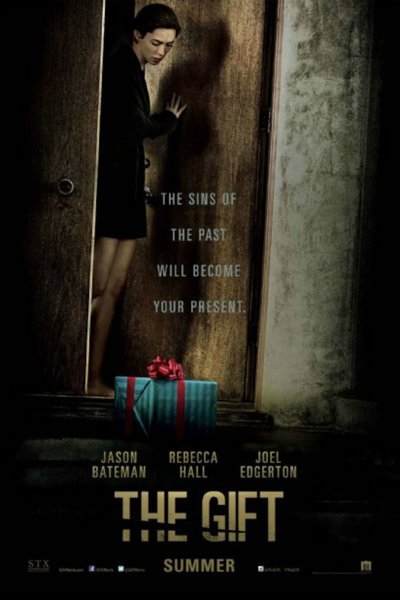
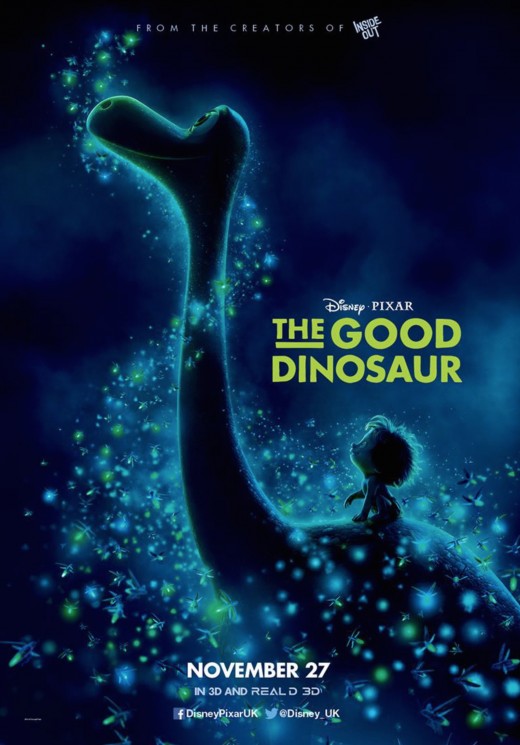
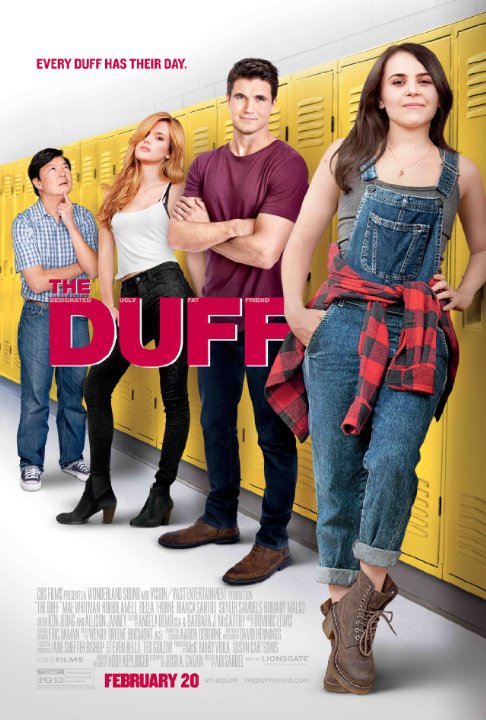
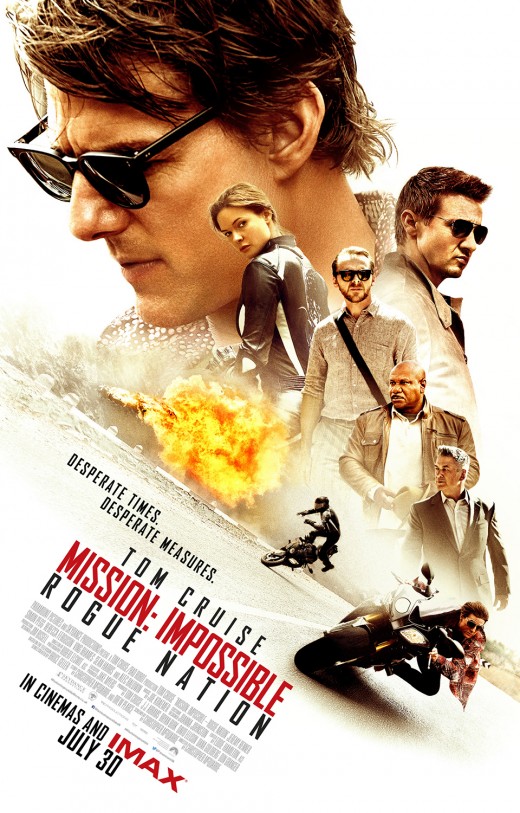
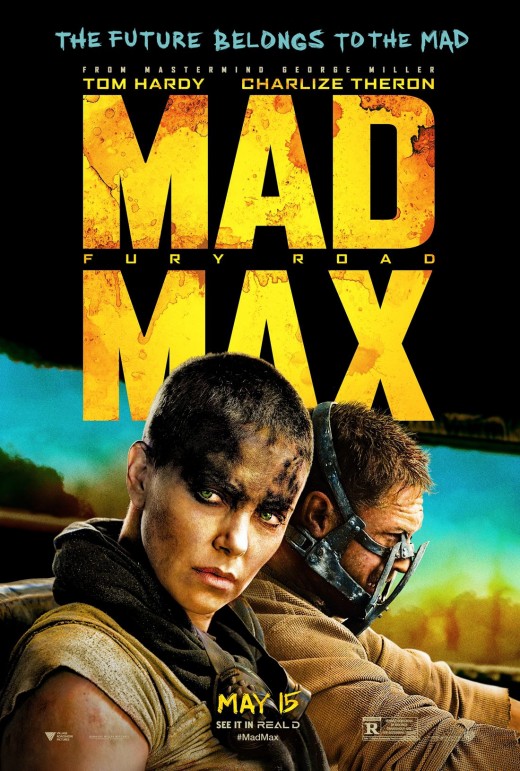
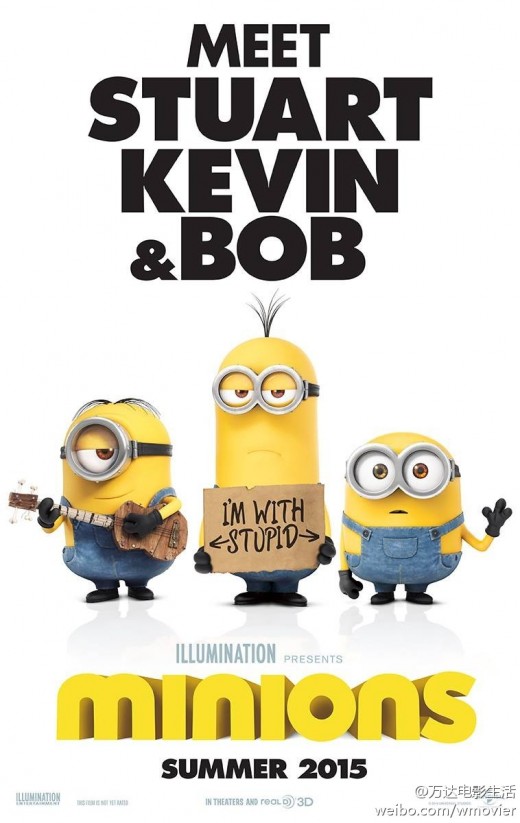
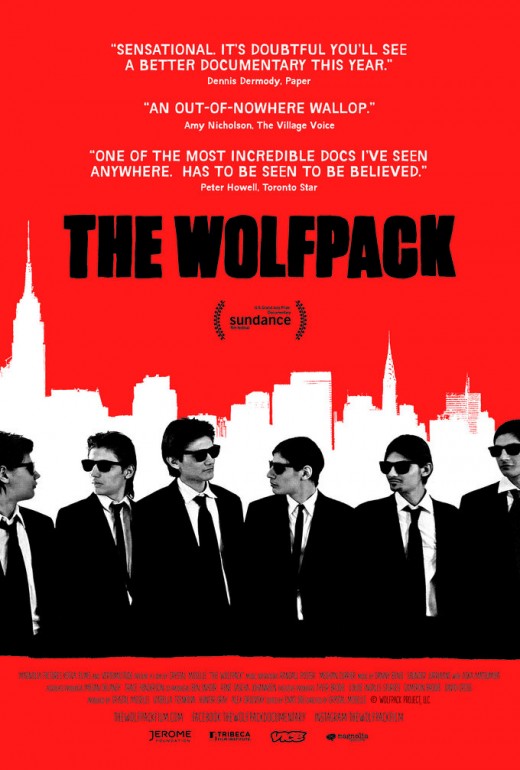

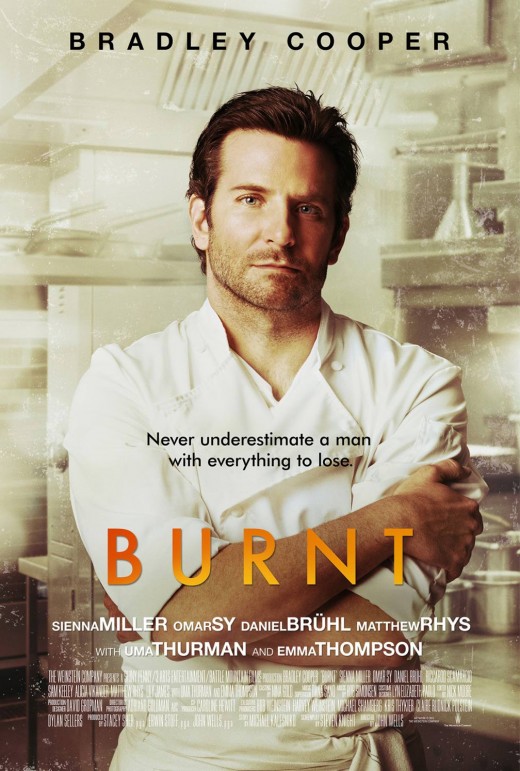
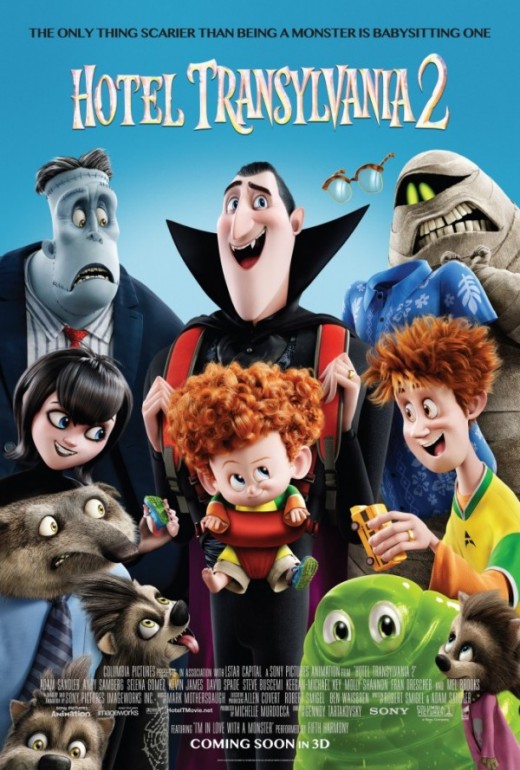
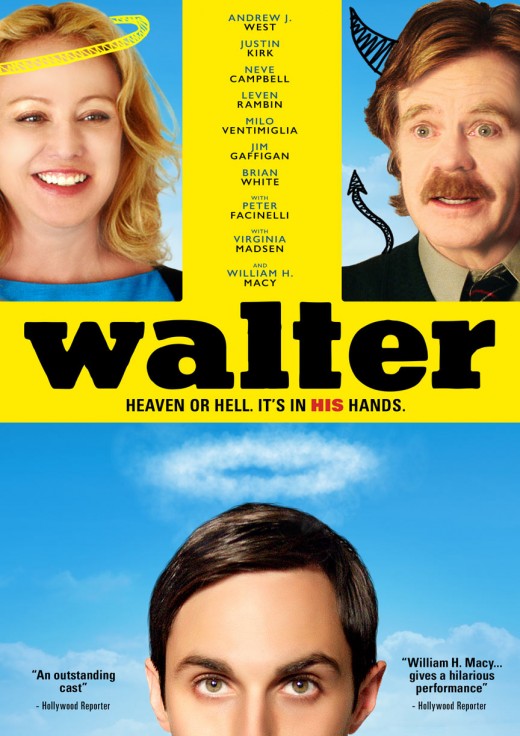
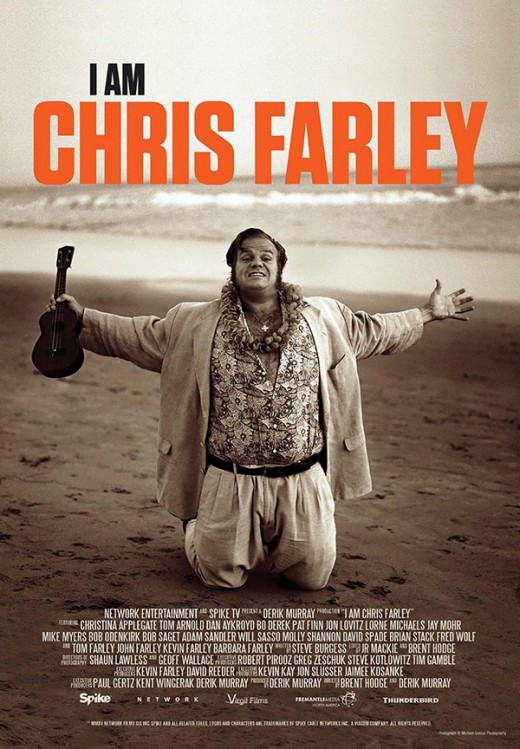
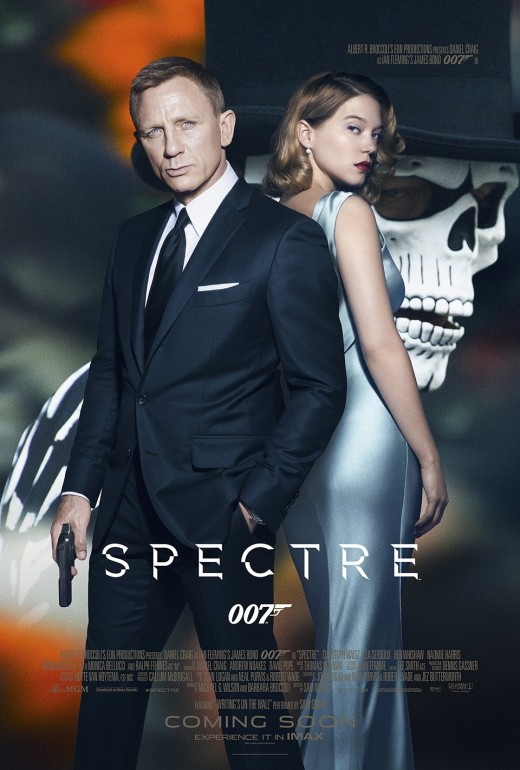
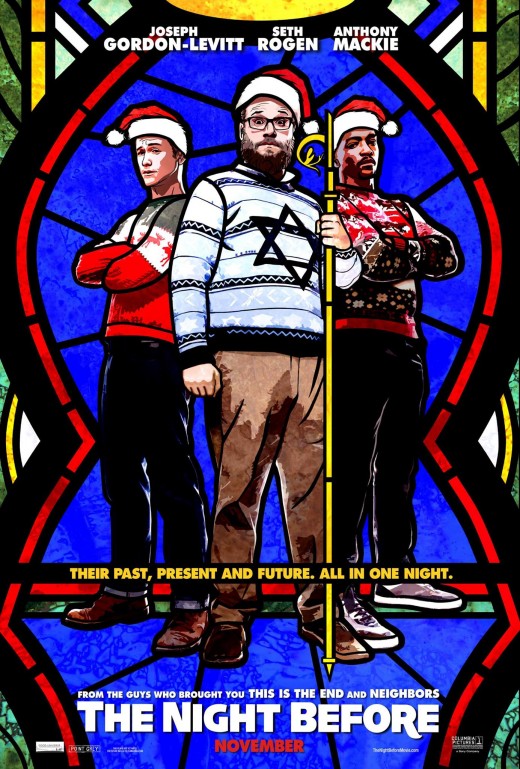
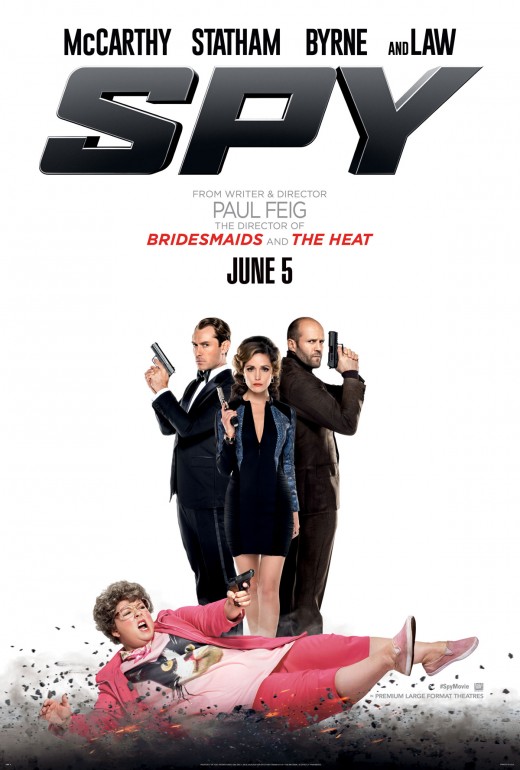
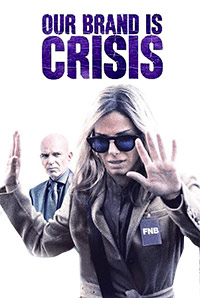
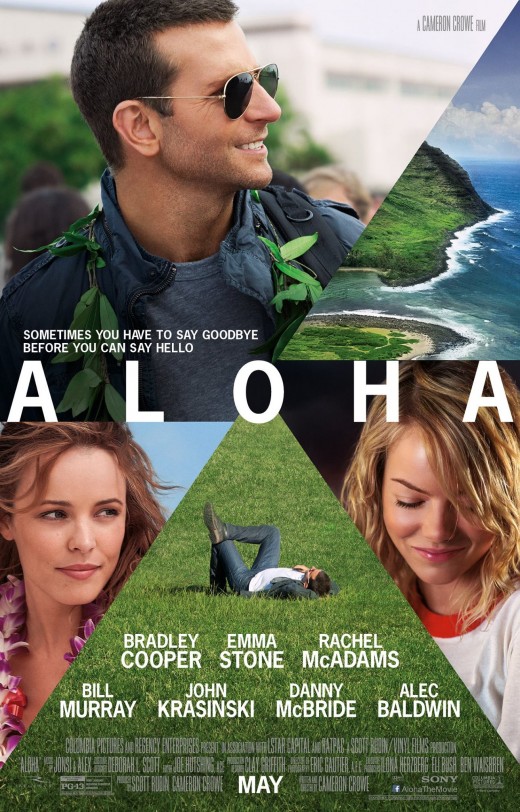
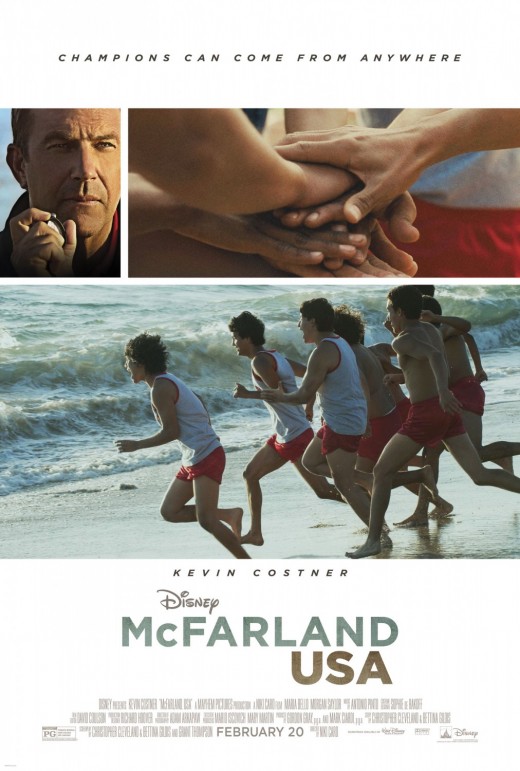
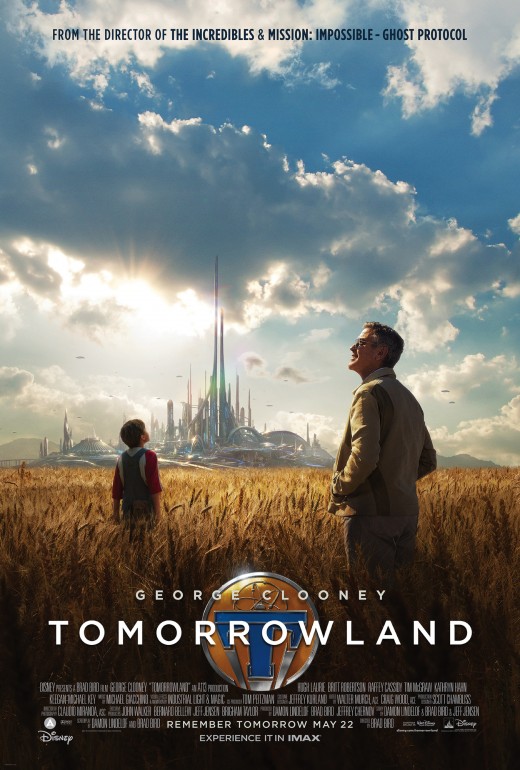
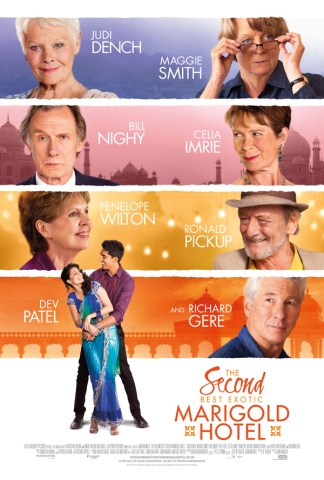
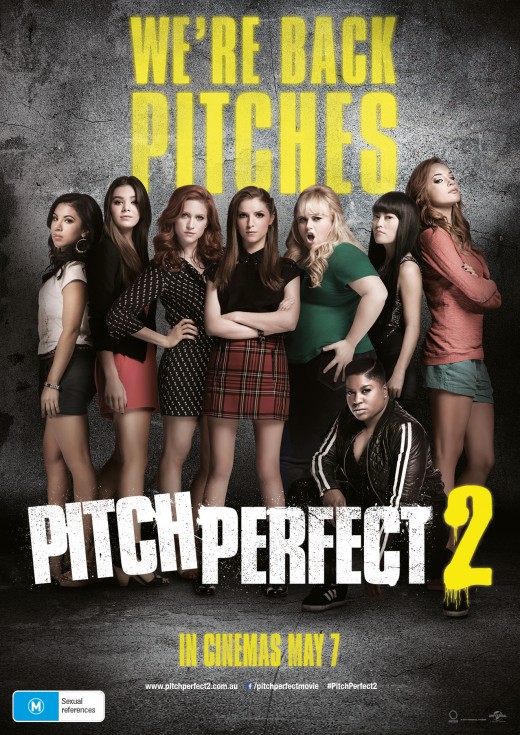
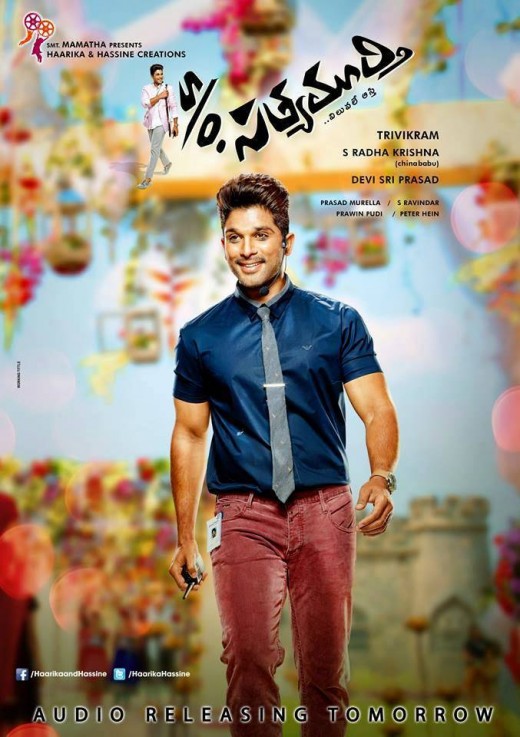
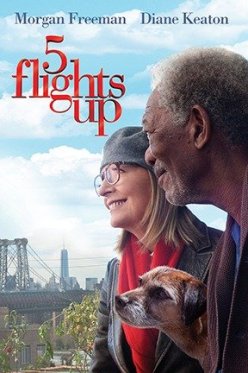
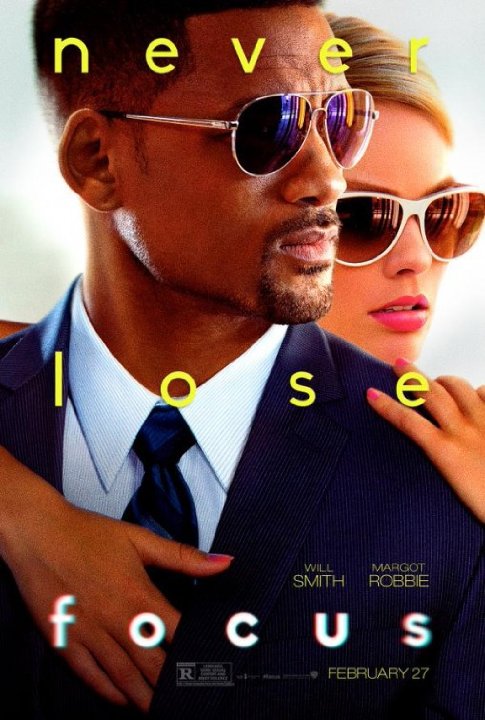
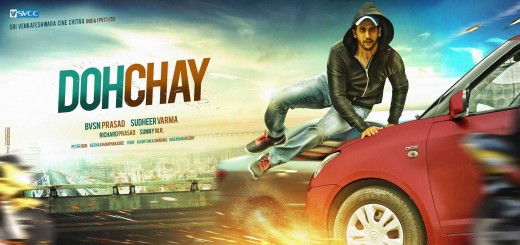
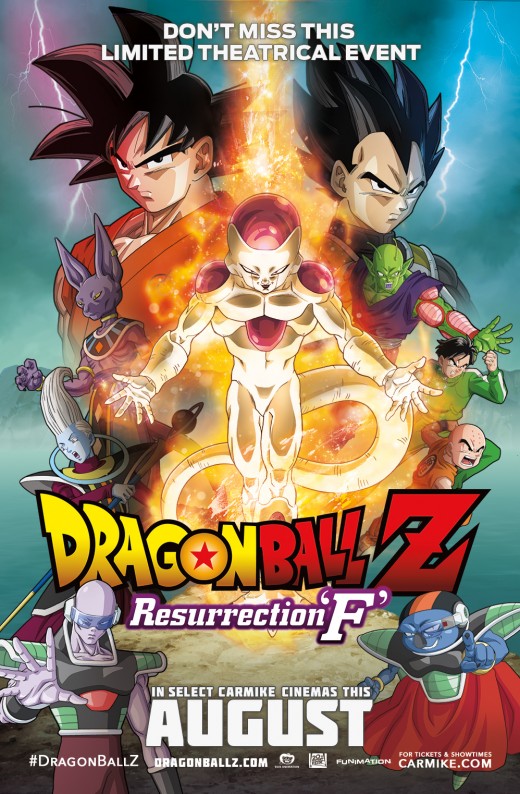
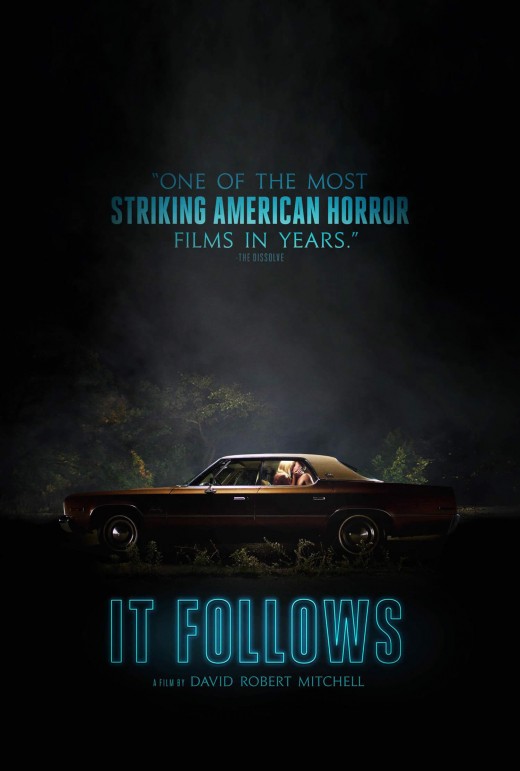
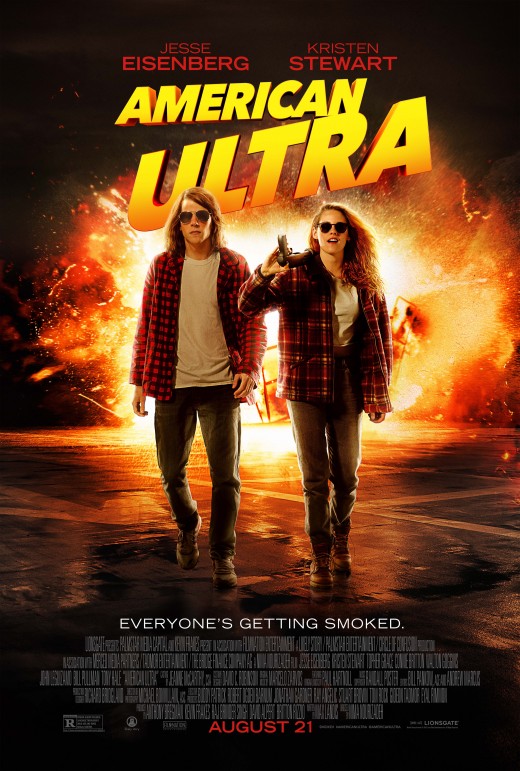
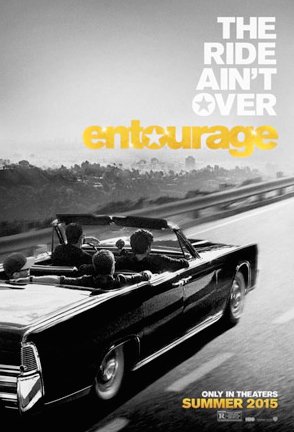
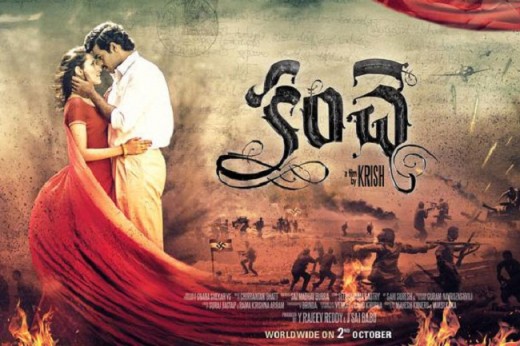
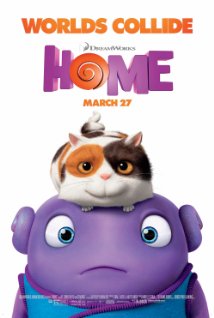
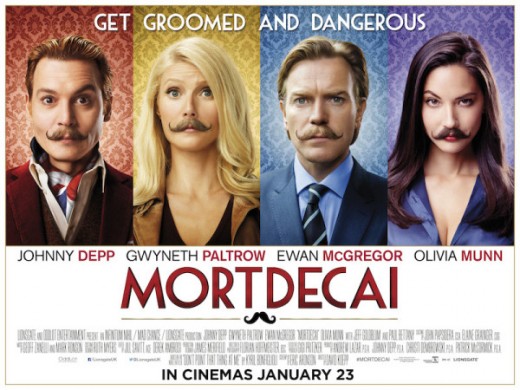
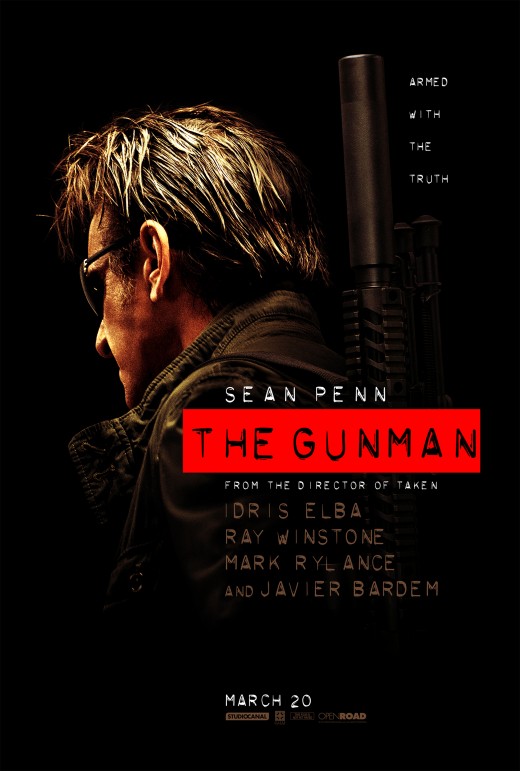
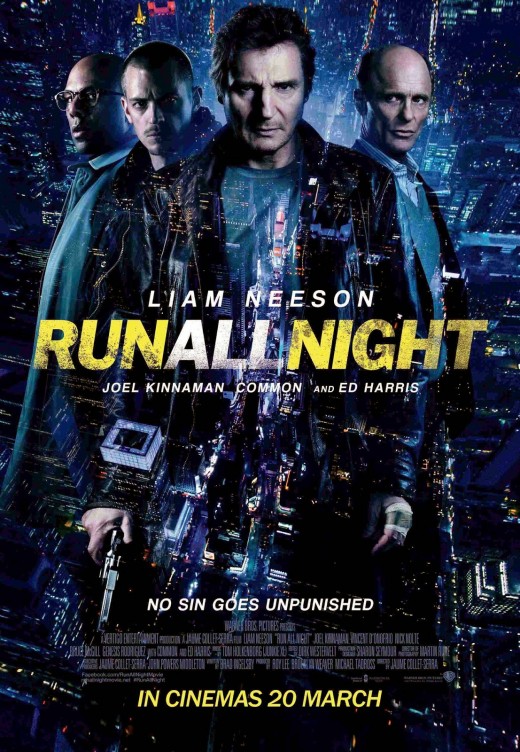
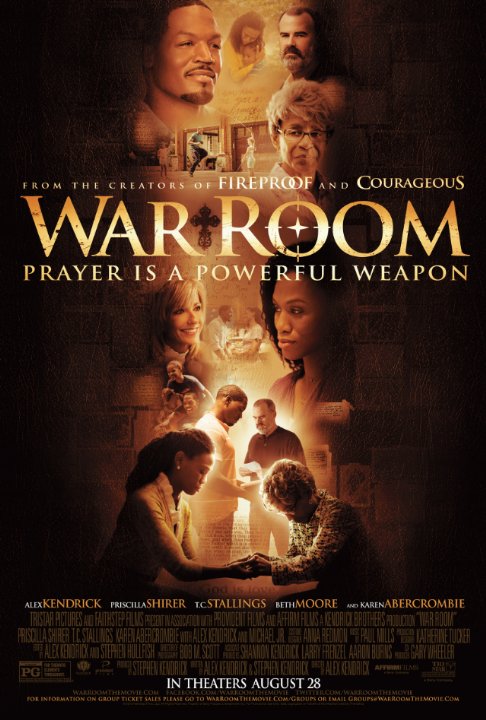
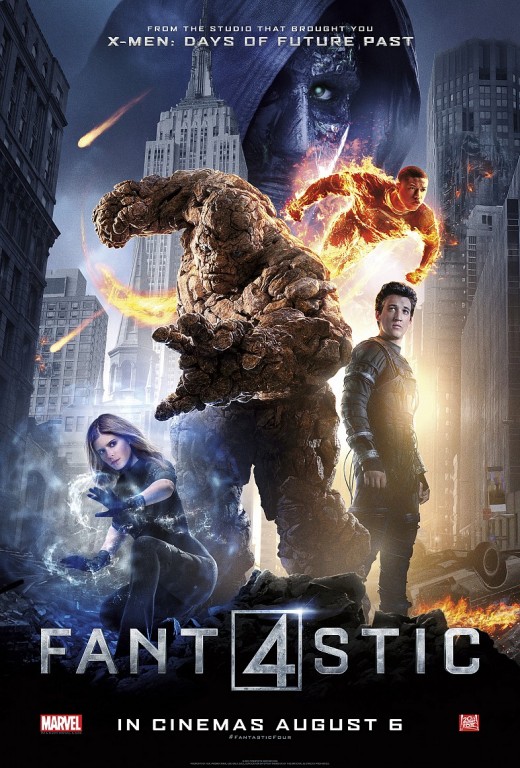
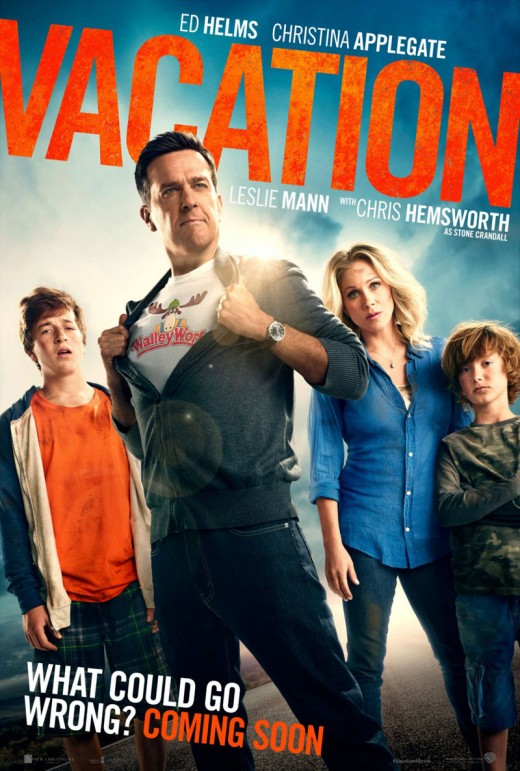
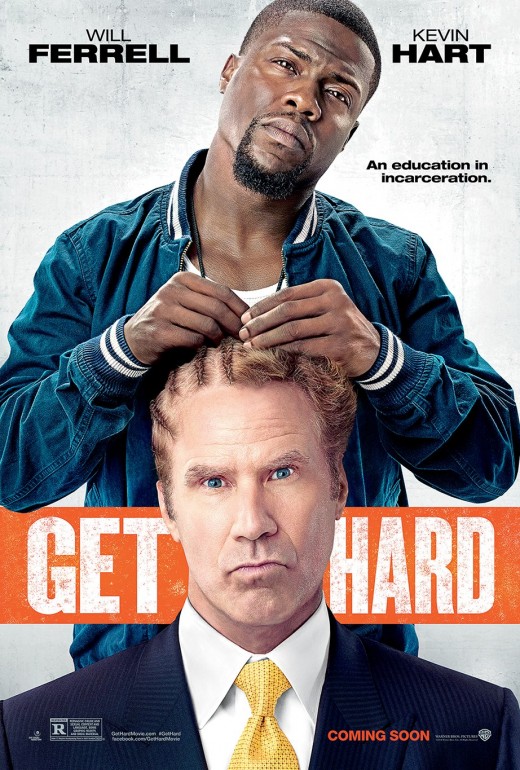
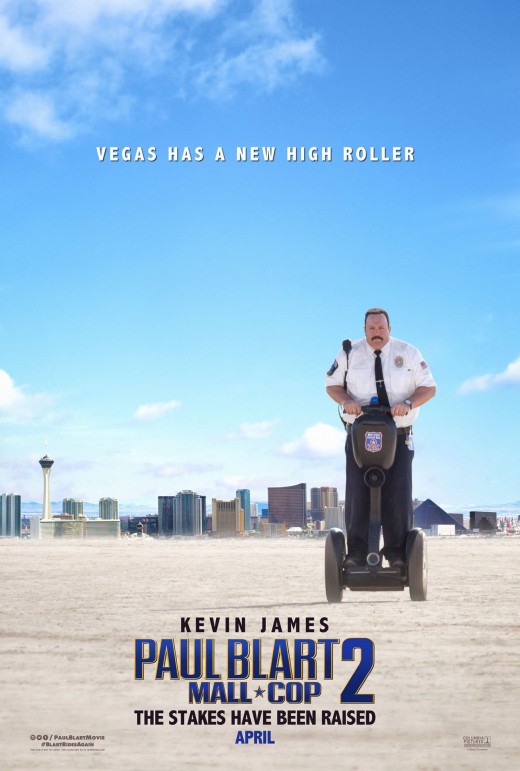
Aaaaaaaaand... The Rest
51. The Gift
Joel Edgerton’s directorial debut The Gift is a rather impressive first film. A rather chilling dark thriller, it centers on seemingly happy couple Simon and Robyn (Jason Bateman and Rebecca Hall), who have a chance encounter one day with a former classmate of Simon’s, Gordo (Edgerton). He gets invited over for dinner, and before long leaves the first in a series of gifts at the front door. Naturally, all is not as it seems, and before long things take dark and unpleasant turns. Edgerton seems to have a knack for this kind of film, deftly walking the line between psychological horror and a somewhat more visceral sort. His performance is also excellent, coming across as creepy but also sympathetic. Bateman, meanwhile, has seldom been more unlikeable, but he handles his part with his usual skill (which is to say, quite well). The real standout here, though, is Hall, who actually comes pretty close to giving an Oscar-level performance, and who pretty much sells the movie in the process. This is definitely one of the year’s better surprises, and well worth a look.
52. The Good Dinosaur
It was bound to happen sooner or later, but it still surprised us—Pixar can have a bomb at the box office. It kind of makes sense in retrospect—they released two original titles in one year, and the first one was freakin’ awesome. Also, The Good Dinosaur suffered several production delays, including a change in directors. Add it all up, and it’s clear that Pixar eventually decided to dump the film and cut their losses. It is a shame—if nothing else, they could have released Dinosaur before Inside Out (or bumped back Finding Dory) to make it a little less obvious that they’d lost their faith in this film. That said, this is not a particularly bad film. Sure, it’s weak for Pixar, and it’s deeply flawed overall, but this is still a movie that can go toe-to-toe with the average animated film. We just like to see Pixar as consistently above-average. The film posits the question, “What if the meteor that struck the earth sixty-five million years ago missed?” Would dinosaurs have hung around, even up until the dawn of man? It’s an interesting premise, if a bit unoriginal by Pixar standards. The film takes place at a point shortly after the arrival of man, and follows Arlo, a young Apatosaurus who is rather literally the runt of the litter, as he tries to “make his mark” in the world. His kind but firm father gives him guidance until Arlo, in an ill-advised bit of compassion, allows the creature that has been stealing from their silo a chance to get away. His father leads him on a hunt for the creature, at which point a sudden flash-flood carries his father off, leaving Arlo all alone in the wilderness. He begins the slow journey homeward; meanwhile, the creature (a human child) begins following Arlo around and trying in its own fashion to help him out. They eventually begin to get along, and thus begins an interesting “boy and his dog” relationship where the boy is a dinosaur and the dog is a human. They encounter a number of other individuals on their way, including some half-mad Pterodactyls and some Tyrannosaurus cowpokes. The elder of these provided me a pleasant surprise, when he opened his mouth and I immediately noted the languid drawl of Sam Elliott. The rest of the vocal cast, which includes Jeffrey Wright and Frances McDormand as Arlo’s parents and Steve Zahn as lead Pterodactyl Thunderclap, does a fine job, but (with the exception of Wright) falls slightly short of the typical Pixar work. That said, where this film truly succeeds is in the visuals. The landscapes and background in this film are breathtaking. Unfortunately, character designs for the foreground are merely average for Pixar. Also, one cannot help but groan at the bad science that has dinosaurs radiate into all sorts of new (human) behaviors without in any noticeable way changing their physiology for such new lifestyles. For example, the idea of dinosaurs farming without opposable digits or certain other changes seems odd in the extreme. Even so, the film was not bad, and while it disappoints I find it amazing that it bombed so badly. Here’s hoping Pixar has righted their ship in time for this year’s Finding Dory.
53. The DUFF
Based on the popular YA novel by Kody Keplinger, The DUFF was one of a handful of films I nearly went to see in theatres this year, but missed out on due primarily to being unsure whether it would be worth the trouble. However, due largely to excellent word-of-mouth, I made sure to check out the DVD once it was available through the library, and I am now disappointed that I missed the chance to see it on the big screen. Though this film fits squarely into the high school teen comedy genre, it is very well-made, and features a pretty awesome lead performance by Mae Whitman. Ever since her amusing role as George Michael Bluth’s girlfriend in Arrested Girlfriend I’ve been wondering when Miss Whitman would really have a breakout role, and this could have been it if the film had made a bigger splash. It’s a shame that didn’t really happen, but at least I am now certain my confidence was not misplaced. I do have to wonder slightly, though, at her casting in the role of the DUFF (Designated Ugly Fat Friend); she is neither fat nor ugly. I know how shallow and cruel teens can be, though, so it makes more sense in that light. Otherwise, the film has few major flaws, the supporting performances are solid, the music is excellent, and the film overall is a very entertaining and likeable one.
54. Mission: Impossible—Rogue Nation
One of the more acclaimed (and successful) films of the summer was the most recent entry in the Mission: Impossible franchise, Rogue Nation. Helmed by Oscar-winning screenwriter Christopher McQuarrie and reuniting most of the cast of the previous installment, Ghost Protocol, this movie certainly was poised to do well, but I have to admit I was taken aback at how well it did. When I saw it, I understood a bit—this is a very well-made and entertaining movie. In fact, of this year’s high-profile action thrillers, this is one of the better ones. The action is well-choreographed, the visual and sound effects are solid, the music is quite good, the acting is solid, and so forth. Tom Cruise still impresses as spy Ethan Hunt, though age is starting to catch up to him a bit. As his support, Ving Rhames, Simon Pegg and Jeremy Renner are excellent, and Rebecca Ferguson’s Ilsa Faust is an excellent addition to the proceedings. That said, you can see from this movie’s position on my list that I could have been more enthralled. Maybe I can partly blame this on unfamiliarity—I do not recall for certain if I saw Mission: Impossible III, and I have not yet seen Ghost Protocol. Ah, well, at any rate, this does make for a most diverting couple of hours, and I look forward to seeing it after having gotten the others knocked out.
55. Mad Max: Fury Road
Quite probably the biggest action film of the year, at least from the standpoint of the critics, is the latest chapter in George Miller’s Mad Max franchise, a reboot that manages to somehow seem fresh and new and exciting without too greatly upsetting fans of what had come before. That said, I am not a fan of what had come before, and I am pretty much flabbergasted that—in a year that saw at least three pretty clear snubs for the Best Picture Oscar (Inside Out, Sicario and Star Wars: The Force Awakens), not to mention only eight nominees out of a possible ten—this film would actually be one of the nominees. It is a good film—do not get me wrong. It’s clearly the product of a director with a vision, and I cannot really begrudge the film at least six (maybe eight) of its ten (!?!?!?!) Oscar nominations. However, Best Picture is just wrong, and there are too many great choices for Best Director for me to feel comfortable with Mr. Miller getting a nod there. That said, I will readily concede that one reason the film rates so low for me is that I simply am not usually a fan of post-apocalyptic tales, especially ones as bleak and brutal as this one. Regardless, this is an extremely impressive action film, and provides a pretty solid adrenaline rush. It also features pretty solid acting; though I do not agree with those who feel the film should have garnered acting nods for Tom Hardy and Charlize Theron, I fully acknowledge they and their cast-mates did a great job. At any rate, watch this film if—and only if—you can take a brutal and unrelenting thrill ride of a movie; just don’t be too disappointed if you also are left scratching your head and going “WTF?” about that Best Picture nomination.
56. Minions
I did enjoy Minions. A spinoff of the popular Despicable Me franchise, this film gives a brief overview of the rather amusing history of the minion race before settling its focus on three particular minions, Kevin, Stuart and Bob, as they set out on a quest to find a new master to follow. Before long, they meet up with Scarlet Overkill (a delightfully over-the-top Sandra Bullock) and her husband Herb (an excessively over-the-top Jon Hamm), and feel that they are at home. That is, until they bungle a mission (or are too successful at it, depending on your viewpoint) and find Overkill gunning for them. I personally found this film most diverting and enjoyable, if a bit less so than the actual Despicable Me films. It is hardly the best film of the year, and indeed I am barely surprised it has gotten so little awards love even in the Animated Feature category, but it is definitely a movie I’ll be getting one day for my own collection, and I have little doubt I’ll see it a few times over the years.
57. The Wolfpack
One of the odder films I’ve seen this year is the intriguing documentary about the six Angulo brothers, nicknamed “The Wolfpack.” Growing up in a Lower East Side apartment in Manhattan with their mother, father and sister, these boys lived a most peculiar and shockingly insular life. Their father, having very peculiar views on the state of the world, kept the entirely family locked away from the world, only allowing them to leave about once a year, all together, and in the meantime basically the only contact the family had with the outside was the large number of movies they had to watch. The upside is that creativity was a viable outlet, and the boys channeled a lot of their energy into playing music and recreating their favorite scenes from movies. The film picks up a couple years after one of the brothers simply walked out into the city one day. Honestly, I was not blown away by the presentation of the film. The filmmakers were clearly allowed pretty remarkable access (given the way the father is presented, this adds another dimension to his character that is not terribly flattering—when his house of cards collapsed, he seems to have just given up); however, it feels that they don’t go deep enough. The story is fascinating, but I expected more. This is still an intriguing film nonetheless, and one that perhaps would warrant a follow-up film five or ten years down the road.
58. Koukaku Kidoutai Shin Gekijou-ban (Ghost in the Shell: New Movie)
Though I am deeply disappointed that my local theatre does a weak job of bringing in art-house films, including anime, I am impressed that they did secure a couple of limited engagements this past year, including the newest film in the Ghost in the Shell franchise. While I was slow to warm to this franchise—I found the first film a bit too hung up in its sci-fi trappings and the second one straight-up tedious—I eventually got to see the first season of the Stand Alone Complex TV series, and that finally caught my interest. I have not yet watched the second season, and have only seen a couple of the attached movies; I also have not yet seen the short series Ghost in the Shell: Arise, a recent prequel to Stand Alone Complex. However, I have seen enough that I did not go blind into the newest film, which is a direct sequel to Arise. For one who has a modest knowledge of the series, this is a remarkably entertaining and intriguing film, though I’ll wager the barrier is pretty high to someone coming to it new. One day I’ll watch this after having seen Arise, and see if that improves the viewing experience. I also look forward to seeing the original Japanese dub—I saw the FUNimation release, which had an English audio track. For someone coming to the series new, it’s tricky to describe the plot; Major Motoko Kusanagi exists as a “ghost in a shell”—she has an organic brain but inhabits a series of artificial bodies. Most others in her near-future world are at least partially cybernetic, with her colleague Togusa being one of the few who have chosen not to get “upgrades.” In this story, Aramaki’s Section 9 (which will enfold the Major, Togusa, Batou and the others by the time Stand Alone Complex begins) has not yet been formed, and they work together more by happenstance than by official design. Like most stories in the franchise, the film takes on a combination police procedural/ superspy thriller type feel, and cybercrime is the primary focus. Anyway, as noted one’s enjoyment of this film will hinge in part on what one brings to the table; I for one enjoyed it, and wish the film had gotten more awards-season buzz (though I must concede I am unclear as to whether it officially had a seven-day run in L.A.).
59. Burnt
There was a time, right around the early fall of 2015, when it looked like Bradley Cooper might dominate my discussion of this year’s films, seeing as how he was headlining three films I either had seen (Aloha) or intended to see (Burnt and Joy), and indeed he may be the only person to headline three films I saw in theatres this year (he’s not the only one to appear in three or more, with Michael Peña coming immediately to mind). However, none of these films caught nearly the traction one might reasonably have expected in advance, for Mr. Cooper or for the films themselves. Aloha was widely labeled a bomb, Joy scored only a single Oscar nod for star Jennifer Lawrence, and this film kind of got left by the wayside. That said, Burnt is not a bad film. It’s not a classic, but it’s a well-executed redemption film, and features solid acting, direction, and production values. Cooper stars as Adam Jones, a chef whose skill had once made him the darling of Paris and the proud owner of a two-star Michelin rating but whose drug abuse and narcissistic, diva-like behavior destroyed his reputation. The film begins with him ending his self-imposed exile shucking oysters in the U.S. and returning to London, where he wheedles his way into becoming head chef for a kitchen run his former colleague Tony (Daniel Brühl). Desperate to not only reinstate his reputation but also to get the elusive third Michelin star, Jones sets about recruiting the best cooks he can find, including Helene (Sienna Miller), David (Sam Keeley) and his former co-worker Michel (Omar Sy). Miller does an excellent job, though a bit shy of Oscar-level, and Cooper’s own work is about on par. Overall, I cannot say that this film is essential—not by any means—but it is a pretty good film worth a look if you have the time.
60. Hotel Transylvania 2
Believe it or not, there are still properties Adam Sandler can touch without them turning to crap. One such property is the Hotel Transylvania franchise. I loved the first movie, and thought it was sorely underrated—the second one is just as good, if not perhaps better. They are not high art, not by any stretch, but they are good-natured and fun films that are quite viewable by kids of all ages. The sequel takes place a few years after the original, with Dracula (Adam Sandler)’s Hotel Transylvania now catering to human as well as monster guests; he is still guarded around humans, and still sees his new son-in-law Jonathan (Andy Samberg) as a blithering idiot (and, let’s face it, he’s not being overly judgmental here), but the happiness of his daughter Mavis (Selena Gomez) and the arrival of a grandson have softened his edges considerably. Even so, he is deeply hopeful that the boy will prove to be more vampire than human, in part out of fear of his deeply human-hating grandfather Vlad (Mel Brooks). Naturally, his buddies (the usual Sandler suspects, including Kevin James, Steve Buscemi and David Spade) are along for the ride, trying to scare the vampire into the boy while his parents are visiting Jonathan’s parents in America. I know little about Selena Gomez beyond her status as a tabloid star, but based on her performances as Mavis I do give her credit for a possible future in voice acting. For his part, Sandler’s accent is less distracting here than it was the first time around, and he reminds the viewer that he can be a solid vocal actor when restrained at least slightly. The rest of the vocal cast is solid (though Samberg’s manic portrayal of Jonathan makes him as annoying as Mavis is endearing); the standout is likely Mel Brooks—though he is always distinctly, definitively Mel Brooks, he just does it so well, and it’s enheartening to see him still working, even if his directing one last film is no more than a pipe dream. Do give this film a go, especially if you have lost your faith in Adam Sandler—you may be pleasantly surprised.
61. Walter
This is a film that slipped by me completely when it was in theatres, and I don’t think I’d even heard of it until I saw it at my library. I was intrigued by the cast, and gave it a closer look—I then had to place a hold on this film. Andrew J. West plays Walter, a ticket-taker at a movie theatre who believes that it is his role in life to judge everybody he meets as going to heaven or hell. It’s an intriguing premise, and it is handled reasonably well. The film overall is not the greatest I’ve seen, but it’s pretty solidly executed. The acting is solid, though both Virginia Madsen and William H. Macy’s characters disappointed me by having been rather thinly written—Ms. Madsen and Mr. Macy do a great job with what they are given though. The single most awards-worthy aspect of the film, in the end, may be the music—Dan Romer’s original score is pretty awesome, and I’d honestly call it a possible Oscar snub. In fact, the film got no awards nominations at all, and that’s pretty sad. This may not be a classic, but it is an intriguing film that very much deserves a wider audience
62. I Am Chris Farley
I have actually done a fair job seeking out documentaries this year—six viewed prior to the Oscars must be some kind of record for me. Of course, this film apparently had multiple airings on television not long after its theatrical release, which by the often arcane rules of the Academy makes it utterly ineligible for Oscar consideration. It also is a flawed documentary—unlike Amy, which was unblinking in its handling of the drug issues that contributed to Amy Winehouse’s tragically young death, I Am Chris Farley takes a far more conventional approach, which notes his problems but spends far more time on his gifts and the legacy left behind. Some may prefer this approach, but I am of the school that documentaries by nature should strive for truth, and biopics exist for the latter purpose. The structure is also fairly conventional, with archive footage interspersed amongst interviews with Farley’s co-workers, friends and family. At any rate, this is a deeply moving look at the life and work of an actor who left us too soon, and if you are even a little bit of a Chris Farley fan you will no doubt find this a very good film; the film is also interesting for the little bit of insight it gives into Chicago’s Second City, as well as Saturday Night Live.
63. Spectre
One of the modest disappointments of the year has been the new film in the James Bond franchise, Spectre. All debate about whether Daniel Craig should be Agent 007 aside, this movie is, objectively, a big step down from the giddy heights of Skyfall. The direction is very nearly as solid, being once again the work of talented director Sam Mendes. Daniel Craig continues to play his version of Bond quite well, and Léa Seydoux is effective as his main female costar. Sadly, and strangely, Christoph Waltz’s portrayal of the chief villain pales in comparison to Javier Bardem’s performance in Skyfall. It seemed perfect—the Austrian Waltz, so memorable a baddie in Inglourious Basterds—as Bond’s most famous nemesis, Ernst Stavro Blofeld. However, a strange thing happened—Waltz underplays the role, making him less, well, interesting than a typical Bond villain. It’s not a bad performance per say, but I’ve seldom seen Waltz so restrained, and this is a role which cried out for a decent amount of theatricality. Otherwise, there are also a few other areas in which the film is a step down from Skyfall, most notably the cinematography—here it is quite good, but in the previous film it was stunning. All told, this is still a pretty durned good Bond film—among Daniel Craig’s, it is a close third behind Casino Royale and considerably above Quantum of Solace, while overall it is still better than either of Timothy Dalton’s movies or the less notable Roger Moore or Pierce Brosnan ones, and perhaps slightly below par with the weakest of Sean Connery’s. In short, still a pretty good and enjoyable film, but here’s hoping that “Bond 25” will shoot a little higher.
64. The Night Before
As raucous Christmas comedies go, The Night Before may join the shortlist of holiday classics. Starring Joseph Gordon-Levitt, Seth Rogen and Anthony Mackie as longtime friends who get together every Christmas Eve for a night out in New York City, the film is pretty durned funny, and also manages to have a fair bit of heart. This is no Oscar-bait film, not by any means, but it is nonetheless executed quite effectively. Levitt is solid as Ethan, the young man whose parents had been killed on Christmas Eve roughly a decade prior; Rogen and Mackie play the friends—Isaac and Chris—who had taken him out on the town to relieve his pain and have been doing the same thing each year since, with diminishing returns. This year, they all know it’ll be the last, but Chris in particular already has one foot out the door—a pro football player, he has finally come into a level of fame that is going to his head. As Isaac, Rogen plays his usual shtick, but he plays the nice-guy version, and so comes off as rather likeable. As they make their rounds, they encounter all sorts of characters, including Rebecca Grinch (Ilana Glazer), whose Christmas spirit is about what you’d expect, and Mr. Green (a sublime Michael Shannon), the friends’ pot supplier and counselor. Meanwhile, as they circle ever closer to the “Holy Grail of Christmas Parties,” the audience is treated to all sorts of homage to the movies of Christmas past, including some pretty good ones. This may not be the highest-ranked film on my list, but I can see popping this one in the old blu-ray player at least every couple of years for some holiday fun.
65. Spy
Spy is a fun movie, no doubt about it. Reteaming director Paul Feig and star Melissa McCarthy in their—I believe—third collaboration (with this summer’s Ghostbusters reboot set to be the fourth), the movie is a gleefully over-the-top parody of spy thrillers that also manages to be a pretty decent spy thriller in the process. In other words, this is not nearly as madcap crazy as Austin Powers or Casino Royale (the criminally overlooked 1967 film); rather, it is more in the vein of The Matador, only much, much funnier. McCarthy plays Susan Cooper, a CIA analyst with dreams of getting out in the field to do some actual espionage work. Jude Law plays Bradley Fine, an agent who comes off as “discount Sean Connery Bond”; he is relatively suave and debonair, but nowhere near as effective as James Bond. Jason Statham plays Rick Ford, an agent who closely resembles the version of Bond several people I know consider to be the Daniel Craig version, a brutish, boozing womanizer with a misogynist streak a mile wide. There are, however, two key differences: one, he brings a very Stathamesque quality to the role; and two, he is utterly and appallingly (and at times amusingly) incompetent. Finally, Rose Byrne is a moderate riot as Rayna Boyanov, an arms dealer who doesn’t really have both oars in the water, as they say. This is not the greatest film in the world, and I am genuinely puzzled at the modest amount of awards consideration it has received, but it is surely an enjoyable movie, and one I will be watching again sooner or later.
66. Our Brand Is Crisis
Based on the 2005 documentary of the same name, this film recounts the efforts of two longtime rival American campaign managers to orchestrate campaigns for two frontrunning candidates in a Bolivian election. It also is notable as one the bigger disappointments of the fall season. An uneven film that struggles to find the right tone, it kind of plays at docudrama, satire, and high-stakes political thriller without truly making clear its intent. Also, much as I love Billy Bob Thornton, he’s become far too comfortable as the go-to guy for playing smarmy assholes. That said, the film is still eminently watchable, and does contain some genuinely solid acting and several moments of interest. Notably, as the former President and current candidate Pedro Castillo, Joaquim de Almeida perfectly captures the essence of a shady politician clearly seeking office for little reason beyond a desire to be on top again. As the campaign manager hired to turn this turd of a candidate into a winner, “Calamity” Jane Bodine, Sandra Bullock actually gives a really solid performance, and one that further erases from my mind years of dismissing her as a wannabe actress. The other performances are solid (and yes, Billy Bob does indeed nail the role of smarmy asshole); a particular shout-out goes to Reynaldo Pacheco, a young volunteer Jane taps to collect camera footage of the campaign. Overall, this is definitely not a classic of cinema, even of political cinema. However, as a cautionary tale of how politicians can highjack the media and the electorate to their own ends, it makes a flawed-but-prescient argument that ought to be checked out during this strange election cycle.
67. Aloha
Another of the year’s big disappointments was this would-be harmless little trifle from Cameron Crowe that had the misfortune to get caught in the crosshairs, even before its release, of a media growing increasingly sensitive to Hollywood “whitewashing”; the Hawaiian-set film not only had few Asian or Hawaiian characters in it but had cast Emma Stone (who is of decidedly mixed but wholly European descent) to play a character written as one quarter Chinese and one quarter Hawaiian. Mr. Crowe has stated that he based the character, Captain Alison Ng, on a local he had met who—though of mixed descent—was a proud Hawaiian, but was so frustrated that she looked nothing like one that she would over-explain her heritage; indeed, Captain Ng does do this on more than one occasion, but even Stone has since admitted the role probably should have gone to someone else. If I may, though, let me just interject something here—Emma Stone does a GREAT job with the role. It may have been unfortunate casting, but there have been FAR more egregious examples. Alec Guinness as an Arabian prince in Lawrence of Arabia jumps immediately to mind, or maybe Max von Sydow as Jesus of Nazareth in The Greatest Story Ever Told; that’s not even getting into roles where the actor was not only ethnically unsuitable but actually miscast in more ways than one, like the jarringly discordant note of Mickey Rooney in the otherwise delightful Breakfast at Tiffany’s. If, however, you want a more recent example, I wonder if I’ll be inviting vast amounts of hate mail if I wonder aloud how many people to cry bloody murder at Miss Stone’s casting in Aloha called all the comic-book fans with fifty years of comics on their side racist when they cried foul at blood siblings Susan and Johnny Storm being recast as adopted siblings—one white, one black—in Fantastic Four? In both cases, people had very real grievances with the casting directors of the films involved, but in one case defenders of the decision were called racist and in the other detractors were. That’s pretty messed up, you know? Anyway, not to say Fantastic Four would have been a great film otherwise; in fact, I actually think they did an okay job making this change work, it was just all the other stuff they stupidly tried to change that ruined the movie. Anyway, back to Aloha… If you can set aside the unfortunate casting kerfuffle, the movie really isn’t that bad. It’s relatively goodhearted and charming, features solid acting from a pretty kick-ass cast, and—being a Cameron Crowe movie—rocks an awesome soundtrack. Unfortunately, even without the controversy it would still rank as one of his weakest efforts, a slightly meandering film that is more thinly plotted than most of his and (most unfortunately) also features weaker characterization overall. I do still think Mr. Crowe has been unfairly put out to pasture—much like Rob Reiner he peaked too early, and now every new film collapses under the weight of expectations, even the really good ones (We Bought a Zoo). They can’t all be Almost Famous, people. Anyway, do give this film a look, and try not to get too caught up on the controversy—let’s leave the really important films to carry the burden of getting everything right.
68. McFarland, USA
Though it was one of the films I actually could have seen for free in theatres this year but declined to do so (in this case due to sheer lack of interest), I took the time to watch the inspirational track-and-field drama McFarland, USA after it came out on DVD, and I must say I was delightfully surprised. Directed by Whale Rider’s Niki Caro (a fact that would have caught my interest had I noticed), and produced by Walt Disney Pictures (which is part of the reason I didn’t), the film stars Kevin Costner as Jim White, a temperamental high school teacher and football coach whose bad performance leads to effective exile in McFarland, California, one of the poorest communities in the nation. Along with his supportive wife Cheryl (a solid Maria Bello), and daughters Jamie and Julie (Elsie Fisher and Morgan Saylor), he settles in to life—very reluctantly at first—in a predominantly Latino community. His attempt to resume coaching football does not pan out; before long, however, he gets it in his head to start a track team. What follows is a surprisingly effective film about both community and creating dreams and seeing them through. Surprisingly, much of the credit can go to Mr. Costner, who gives a genuinely solid performance here; his supporting cast is excellent, though, perhaps few more than the young men playing the kids on his team. Where the film most definitely shines, however, is the awesome music. The score by Antonio Pinto is one of the better scores of the year, and the song “Juntos (Together)” by Colombian star Juanes was straight-up snubbed by Oscar—this is easily one of the handful of snubs that I personally think could have (very slightly) reduced the whitewashing at this year’s Oscars. This is easily one of the better family-friendly films of the year, and a great one if you want a true feel-good movie.
69. Tomorrowland
Interestingly enough, another Disney film from this year followed almost the opposite trajectory of McFarland, USA; I started the year wanting to see Tomorrowland, and was pretty psyched for it when it came out, only to be moderately disappointed when I did see it in the theatre. I was not fully disappointed—this is an interesting and enjoyable film that features solid performances, fascinating visuals, and an ambitious storyline. Unfortunately, those ambitions are not entirely realized, leaving the viewer with a sense that, well, there should have been more. I was, however, pleasantly surprised to see both Tim McGraw and Hugh Laurie, having not previously realized they were in the film; I also have no complaints about star Britt Robertson, who carries the film quite skillfully, and George Clooney is his usual solid self. The biggest disappointment actually comes from one of the aspects of the film that had me most intrigued—that it is written by Damon Lindelof (creator of Lost) and Brad Bird (director of The Incredibles) and that it is directed by Bird. What could go wrong? Apparently, enough small things to erode the general awesomeness I had expected. That said, I will be sure to get the film eventually, and look forward to seeing it again. Like several of the films that disappointed me this year, I see potential for it to grow on me with additional viewings. Meanwhile, you could certainly do worse than to check the film out yourself, now that expectations have been appropriately tempered.
70. The Second Best Exotic Marigold Hotel
John Madden’s The Best Exotic Marigold Hotel was an absolute delight, one of the better (arguably best) films of 2012. Imagine then my excitement about the sequel. And then imagine my disappointment that the sequel, if you will, did an admirable job of living up its title. This is still a warm, delightful film, in some ways. However, most of the cast meanders through the movie like it was all a great opportunity to get back together after the fun they had the first time around. This is particularly crushing as regards Dame Judi Dench and Dame Maggie Smith—these two are essentially acting royalty, two of the most talented actresses alive, but while they’re both clearly thrilled to be here neither one seems to be trying all that hard. New addition David Strathairn’s role is, sadly, little more than a cameo, and fellow new addition Richard Gere does a fine job but is no more notable than usual. The biggest issue, though, is poor Dev Patel’s hotel proprietor Sonny Kapoor; in the first film his manic excesses were a comic highlight, but here the plot contrives all manner of complications for his impending wedding that have the net effect of making him look like an insensitive ass. At least Tina Desai is still a luminous spot in the proceedings as Sonny’s bride-to-be Sunaina. All told, this is a film where they should have taken a bit more time to polish the script, and the director should have prodded his actors a bit harder. It’s still a gorgeous film, particularly the wedding sequences, and the music is pretty awesome. It’s worth a look, but sadly only the first Best Exotic Marigold Hotel is a necessity.
71. Pitch Perfect 2
Ah, another sequel to a film that came out in 2012. Sadly, this is one of a small handful of films I saw this year that I came to without having seen some of the material that came before. Unlike the others, this was one where I had not only seen nothing in the franchise, but I had very little familiarity with the characters, and only knew the bare bones of the plot. Even so, I feel I got enough to take this film on as a stand-alone movie, and even if I rate the film higher after having seen the first Pitch Perfect it seems unlikely to me that I’m being overly critical of it here. As with the earlier film, this one centers on a Barden University vocal group calling themselves the Barden Bellas; this film begins with a disastrous performance at The Kennedy Center, which leads to the girls becoming pariahs in the glee club community and having to take desperate measures just to be able to keep singing. Specifically, they train for an international competition no American team has ever won. Do they succeed? Is Rebel Wilson’s Fat Amy one blue-humored girl? Together with new recruit Emily (an excellent Hailee Steinfeld), they work their asses off for the competition, and we the audience are treated (for the most part) to all manner of fun music, some of it actually quite good. This is a very enjoyable film, but did not strike me as one of the year’s best. Even so, the acting is solid (though Anna Kendrick’s character struck me as a little TOO uncool at times), the music and choreography are well-handled, and the direction by Elizabeth Banks (her first turn behind the camera) gives me hope for her future as a director. This is not high art, but no film featuring Rebel Wilson dangling perilously above a stage and suffering a wardrobe malfunction in front of the President is likely to be confused as such; as a highly diverting film for a snow day or college drinking game this could be an excellent choice.
72. S/O Satyamurthy (Son of Satyamurthy)
One notable thing about the local theatre I attended for most of this year’s screenings is that they have struck some sort of deal with the Indian-American community which has led to them getting a reasonably large number of Bollywood films this past year. Unfortunately, most of them have had limited screenings, making it tricky for me to fit them into my schedule. Also, several have been without subtitles, which wrecked my viewing of one of the year’s films (to be discussed below) and turned me off of a couple others I was interested in seeing. Also, a couple were sequels to films I’ve never seen. That said, I did catch three of these films, perhaps my favorite of which is this one, a family-oriented fairytale about a young man whose father dies in an accident and whose legacy threatens to be tarnished forever, and the lengths to which he goes to make his father’s name great again. As Viraj Anand, the titular son, Allu Arjun does a fine job, and he is ably supported by a solid supporting cast, including the gorgeous Samantha Ruth Prabhu (practically unknown on these shores, a situation which I hope shall be remedied shortly). The music is pretty kick-ass, and the musical numbers are lively and energetic. The movie overall is lively and energetic, and I mostly had a great time watching it (sadly, I did nod off at one point, but I was going through a narcoleptic phase, and I think I was out just a couple of minutes). There is kind of a strangeness to the film, though. I said it was fairytale-like; this honestly is a diplomatic way of describing a sort of unreal quality to the proceedings. It was likely a directing choice, but an odd one. Anyway, though I hesitate to include this on my list not knowing if it got an official L.A. release, it certainly was released this past year, and it surely rates mention. I see Amazon lists a blu-ray copy, but I cannot tell if it’s an official Region 1 release. If it is, I have to get this one, and I recommend that anyone who enjoys Bollywood films (or is curious about them) do the same.
73. 5 Flights Up
A charming, inoffensive little film from the early part of 2015, 5 Flights Up features acting stalwarts Diane Keaton and Morgan Freeman as Ruth and Alex Carver, a happily-married couple contemplating selling the fifth-floor Brooklyn apartment they have shared for many decades, since before such a thing was generally accepted in society. For the past few years they’ve also shared their apartment with a dog named Dorothy. On the eve of an open house their niece Lily (a realtor, played by a high-strung Cynthia Nixon) has arranged, Dorothy falls ill and is taken to the vet, who lets the Carvers know (after a series of pricey tests) that with some pricey surgery the dog may pull through, though the prognosis is by no means certain. Meanwhile, Alex and Ruth deal with a parade of rude, obnoxious, or just plain selfish visitors, as well as a few oddballs. Ruth finds a strange woman lying in her bed, while Alex makes the acquaintance of the woman’s precocious daughter Zoe (a remarkably skilled performance by Sterling Jerins). After this barrage, the couple sets out to “take matters into their own hands” and see firsthand what kind of apartment they may be moving into; they meet many of these same people again and again, including Zoe. All the while, flashbacks show the audience how Alex and Ruth met, how they fell in love, how Ruth became the black sheep of her family, etc. As the younger Alex, Korey Jackson does a great job being believable both in the role as written and as a younger Morgan Freeman, but it is really Claire van der Boom as the young Ruth who hits it right out of the park—she is so convincing as a doppelganger for Diane Keaton that it actually occasionally makes it unclear for a moment that there’s been a time jump. Her performance is excellent, though that is not to take anything from the rest of the cast. Freeman and Keaton have both been better, of that there is no question, but they give these characters life like the old pros they are, and the film is scarcely the worse for it. At any rate, if you want a good-natured film with little in the way of objectionable content, give this one a look. It’s not perfect, but it’ll get the job done.
74. Focus
It is safe to say that one of the first 2016 releases to show up on my radar, at least as early as February last year, and one of the ones I am most stoked about, is the late summer release from DC/ Time-Warner, Suicide Squad. And it is safe to say that the big-screen debut of Dr. Harleen Quinzel, aka Harley Quinn, is reason numero uno for that excitement, whilst the comparable debut of Floyd Lawton, aka Deadshot, is also pretty durned exciting. That supercute Margot Robbie (who impressed in The Wolf of Wall Street) and superstar Will Smith (who impressed in, oh, several things over the years) were cast as Quinn and Lawton was known almost from the beginning; imagine my surprise and delight when I found I could get a preview of their dynamic together, through the thriller Focus. Oh, how I do love to set myself up for a fall. Just kidding—sort of; Focus is a decent thriller, certainly watchable, and Robbie and Smith do work quite well together, but the film—forgive me—lacks focus. Seriously; this is a film that could have been pretty awesome with a more solid hand guiding it. In the end, other than giving me more hope that Robbie has the acting chops to bring to life one of my favorite characters, the film may be most notable for having yet another acting surprise up its sleeve—Gerald McRaney, once known to me primarily as the star of the Christian TV series Promised Land, was surprisingly effective as the hard-edged Owens, a character whose ultimate role in the plot struck me as rather intriguing. This is not a bad film, but I certainly hoped for one with a bit more spark to it; the phrase “slow burn” seems appropriate here. At least the trailers indicate Smith and Robbie will be much more animated when their next film together bows this summer.
75. Dohchay
The second Bollywood film I caught this year was, like the first one, a heck of a lot of fun. However, this one’s plot has more in common with Focus; it is a thriller involving some rather intriguing cons. It is most assuredly not a great film, but it also is most assuredly an extremely watchable film. Much like Son of Satyamurthy this film contains solid if unspectacular acting (measured against American standards both films tend more toward the “so bad it’s good” style of acting). Also, much like the former this film has excellent music and intriguing musical numbers, though in this film even more so than the former the musical numbers seem more like straight-up music video interludes than actual organic parts of the plot. Indeed, I actually have trouble remembering anything from the plot, other than it having been interesting at the time. Also, the film is not well-known here; IMDb’s account is bare-bones, and there is no listing at all on Amazon. I’m not even positive the film got the seven day run in L.A. County it would have needed for Oscar consideration. Even so, I’m including the film, and noting that both this one and Satyamurthy should have been in the discussion for Best Original Song (I think the songs are original, at any rate). If this ever IS released here on blu-ray, I know I’ll want a copy, and I’d recommend it for action fans who want something different.
76. Dragon Ball Z: Resurrection ‘F’
Another foreign film that got special screenings at my local theatre (and I believe one of only two anime this year that did so) is the latest installment in the hugely popular (and just plain huge) Dragon Ball franchise, Dragon Ball Z: Resurrection ‘F’. A direct sequel to the movie Dragon Ball Z: Battle of Gods, itself a sequel to the loooong-running TV franchise, this film was extremely notable for me, at least, as being my first official experience with watching Dragon Ball Z. That’s right—noted anime fan that I am, and despite having seen the initial 153-episode series Dragon Ball all the way through TWICE, I had not seen so much as an episode of Z. I also have not yet seen any of the other films (fourteen I think) prior to Battle of Gods (which I watched a few months after my initial screening of the latest movie, and shortly prior to my second viewing). I have spoken at some length with anime fans about the franchise, I have played a couple of fighting games that featured characters from the series, and I’ve read several lists that referenced one or more characters, so I am hardly ignorant of the series or its characters. However, it is notable that this truly was my first onscreen encounter with Frieza, the main villain, and a dastardly villain he is indeed. Truly, Chris Ayres seems to be utterly enjoying all the scenery he chews in this movie (my initial viewing was of FUNimation’s English-language dub, while my second was of the original Japanese track). Like most anything in the Dragon Ball franchise, this film is not high art. However, though ultimately the stakes are not as high as they should be for a movie where the antagonist is a genocidal maniac with the power to wipe out planets, the film does manage its fair share of tension, and a great deal of good-natured fun. I’m not sure you should go into the film completely blind—it does help to at least know who most of the characters are, and their rough relationships to one another. Even so, if you have even a passing familiarity with the series you might find this an enjoyable film; if you do not, I highly recommend the original series, but only if you go to it with an open mind.
77. It Follows
Before I start this review, I should offer the caveat that I am not a huge horror buff, and so tend to be harsher on these films than I might otherwise be. Psychological thrillers like The Gift are right up my alley, but the majority of other modern horror films might gently nudge my interest at best. With that out of the way, I fully believe that no film this year has been more grossly overrated by critics than It Follows, not even Mad Max: Fury Road (though it is close). “11 wins & 25 nominations,” per IMDb? Whutthahell? Now, before you break out the pitchforks, let me note that I did find the film more interesting and watchable than the average horror film. It even genuinely managed to creep me out a bit, and the premise does inspire thought. However, the characters were all JUST. SO. STUPID! Even by horror movie standards, they were so stupid! I wanted to yell at Jay Height (Maika Monroe) SEVERAL TIMES to STOP BEING STUPID! I know this is not a particularly reasoned critical analysis, and for that I am sorry, but when you have such a visceral reaction to the main character, and similar if milder reactions to most of her costars, it makes it that much harder to take the movie all that seriously, whatever other points it might earn. Rich Vreeland’s music was pretty awesome, though. Anyway, I know I’ll get some haters for this, but I am utterly baffled that this film has gotten the hype it’s gotten; even so, I will not say not to watch the film—for horror fans, I’d actually say it’s a film to see. For everybody else, though… Don’t say I didn’t warn you.
78. American Ultra
It’s a strange thing when you really want to see a movie despite not liking either of the leads, nor even expecting that it will be all that great, but I have to admit that the trailer for American Ultra caught my attention, and as luck would have it I had time and the inclination to go to the movies the week it came out. I’m not sure I can say I was let down, because the movie is not really worse than I expected, but it sure isn’t as cool as I’d hoped. What’s even stranger is that it is not the actors who failed it. Jesse Eisenberg is almost, dare I say it, likeable in this movie—a feat I think he’s only fully accomplished once that I can recall (Zombieland); Kristen Stewart is also fairly likeable, and continues to prove that maybe the painful scars we all have from watching the Twilight movies were due more to the directors (and Robert Pattinson) than to her (maybe). Even the scenery-chewing performance by Topher Grace (who I do like and was pleasantly surprised to see here) is not the film’s biggest issue. The biggest issue is that it utterly squanders an amusing premise: to put it as simply as possible, “The Bourne Identity with stoners.” The trailer made this movie look hilarious. Violent, yes, but hilarious. I was sorely disappointed at the low humor quotient in the movie, and taken aback by HOW violent it is. You have been warned. Overall, this is hardly the worst film of the year, or even for its two respective leads, but unless you’re really into this sort of thing I can highly recommend pretty much any of the previous seventy-seven titles instead.
79. Entourage
Another film which I had rather mixed emotions about is this movie, which is a continuation of a popular and highly-rated eight-season TV series of which I have yet to see a single episode. Okay, I take it back: Pitch Perfect 2 is not the film I went into having the least familiarity with the franchise—this is. Having not seen the show, I am not quite sure why people disliked the movie so much. From what I can tell, they didn’t change up the formula all that much; a group of players and hangers-on in Hollywood goes around doing Hollywood things—going to/ throwing parties, seeing a psychiatrist, taking drugs, making ill-advised movies way above budget, etc., etc. All the while there is a parade of familiar faces in roles both supporting and cameo. The main group consists of: Vince (Adrian Grenier), an actor dipping his toes into the director’s pool; Eric (Kevin Connolly), a writer, if memory serves; Turtle (Jerry Ferrara), an assistant; Johnny Drama (Kevin Dillon), Vince’s brother and a two-bit actor with a role in Vince’s new movie; and one of the better-known characters from the last decade of American television, producer Ari Gold (Jeremy Piven), who is struggling to keep his sanity (and his marriage) intact. Among the cameos and supporting players are Billy Bob Thornton and Haley Joel Osment as a father and son from Texas who have been and MAY continue financing the film, and Kelsey Grammer, who shows up as a disgruntled patient storming out of a psychiatrist’s office and cursing up a blue streak about the profession in what is a hilariously meta moment for him (ever see Frasier?). At any rate, this is not a film for the faint of heart; it is sleazy, trashy, and not clever enough by half to fully get away with it. That said, I laughed a fair bit, and one could do worse if one enjoys raunchy modern comedies.
80. Kanche
The third and final Bollywood film I got to see this year was this historical drama that, alas, came without subtitles. Fortunately, there is a fair bit of spoken English, as a large number of characters are British; also, it is largely a war movie in which quite a bit of the story is pretty much explained by the images onscreen. Unfortunately, most of the love story and nearly all of the humor were spoken in Telugu, which meant that I (the only non-Indian in attendance at that screening) was able to tell that quite a lot of the film was meant to be funny, but had no idea why. Also, several scenes had little to hold my attention to the screen other than the beautiful women (luckily, that can be effective). The overall effect, sadly, is that I had a tremendously frustrating moviegoing experience with this one, and my rating should therefore be taken with a heaping spoon of salt. I do know that the film is essentially about the rivalry between two men from different social castes borne from the love the poor one has for a lovely woman (who is the sister of the other), and how that rivalry spills over into war time when they find themselves in the same regiment. One strange thing that I could easily tell, however: it appears that care was taken to get actual British actors to play the British roles, but all their dialogue is overdubbed in crisp, clear British-accented English; the Indian actors, however, appear not to be overdubbed. I am utterly baffled by this; any thoughts? I can also state that, as per usual, the music is excellent, though not quite as notable as in Son of Satyamurthy or Dohchay. Maybe one day the film will get a (subtitled) American release, and I’ll get my proper viewing experience. In the meantime, I include this film more as a shout-out to a film that didn't get much notice Stateside.
81. Home
The first animated film I saw from 2015, Home also is, indisputably, the one most solidly aimed at kids. The Peanuts Movie, Inside Out, The Good Dinosaur, and even Shaun the Sheep Movie are all kid-friendly but fully entertaining to adults as well; Home was unable to get me to fully take it seriously. It is just too cute and fluffy. The other major issue I had was the strange language of the aliens; maybe I’m being overly PC, but it sounds almost like a mockery of broken English dialects like Spanglish and Pidgin English. The animation is not that strong either, though it is at least colorful. Now, on the upside, Jim Parsons does a great job as the alien Oh; despite his strange manner of speaking, his delivery is very similar to that of his character Sheldon on The Big Bang Theory, a trait which made me smile more than once. As his costar “Tip” Tucci, R&B star Rihanna actually does a really good job, and the two of them play off each other nicely. Steve Martin and Jennifer Lopez round out a most intriguing main cast, but the real star of the movie is the Rihanna-produced soundtrack. Indeed, I actually think this film got snubbed by Oscar in the Original Song category, with Rihanna’s “Towards the Sun” being a particularly memorable (and I am nearly certain original) song. If nothing else, this might be yet another argument for a Best Use of Music in Film Oscar. I’m not sure, honestly, if I ought to recommend this film to anyone who does not have kids, but if you do this film is certainly a good choice.
82. Mortdecai
“Don’t point that thing at me.” Believe it or not, we are not yet at the bottom of the list. Also, believe it or not, this is one of the handful of 2015 releases I have seen twice, and I quite enjoyed it both times. Yes, it is a trashy, gleefully over-the-top movie that features possibly the hammiest, most scenery-chewing performance yet from the typically great Johnny Depp as sleazy art-dealer/ conman Charlie Mortdecai. Yes, Paul Bettany (as the impossibly named Jock Strapp) is a walking ball of hormones who can only keep his zipper up long enough to protect his employer by any (frequently impossible) means necessary. Yes, Gwyneth Paltrow (as Charlie’s frigid wife Johanna) is a frigid ice queen (insert any number of jokes here). Yes, Olivia Munn’s nymphomaniac character was a poor introduction indeed to those like me hoping she can do Elizabeth Braddock, aka Psylocke, justice in the upcoming X-Men: Apocalypse. Yes, Mortdecai’s moustache is a frightful thing that may, perhaps, have been the center of one joke too many (but only one, I assure you). In the end, the movie made me laugh, a lot. Both times I saw it. And the friends I watched it with felt the same way. This movie may be one of the most critically reviled films of the year, and a nominee for three Golden Raspberry Awards (Worst Actor for Depp, Worst Actress for Paltrow, and Worst Screen Combo for “Johnny Depp and His Glued-on Moustache”), but I honestly see it developing a cult following a la Sharknado or Evil Bong, maybe even eventually joining the ranks of Plan 9 from Outer Space or Santa Claus Conquers the Martians. One can only hope, right?
83. The Gunman
Now we start to cross into the films for which I can give only very guarded recommendations. The Sean Penn-starring The Gunman was, to put it bluntly, pretty boring. Only the excellent performance by Javier Bardem and the excellent production values kept this film on my list of Oscar nominees well into the season (notably, Makeup and Sound Effects Editing, though there are now too many good candidates for the film to still make the Top 5 of those lists). I also was utterly disappointed by what amounted to dishonest marketing—despite costar billing, Idris Elba has only a very tiny role in the film, basically a glorified cameo. I cannot really recommend this film to anyone, except maybe diehard fans of Bardem (who should be warned that he plays an unlikeable character), but you could do worse for an action film…
84. Run All Night
…Speaking of, Run All Night was REALLY boring. I hate to say it, because a film starring Liam Neeson and Ed Harris looks like it should be pretty awesome, right? Indeed, Harris is pretty awesome, squandering an almost Oscar-level performance on an overlong piece of dreck that otherwise feels as though the producers wanted to capitalize on Liam Neeson’s badass persona and dragged him along, kicking and screaming, for the ride. Neeson really seems like he’d rather be anywhere else; he sleepwalks through the role, only coming alive when he is face-to-face with Harris. Maybe he, too, saw that Harris was giving his all and wanted to return the favor. Their scene(s?) together is/are (I can’t remember) the only one(s) worth watching. Do yourself a favor and watch anything else by either of these great actors.
85. War Room
I’m sure I’ll catch a lot of flak for placing one of the summer’s big hits, the Christian drama War Room, so low on my list, especially given my last couple of reviews. The fact of the matter is, however, that the Kendrick Brothers films are, at best, feature-length Hallmark Channel films, loaded with more preaching than a typical Sunday morning sermon. That said, they are enjoyable if you go in with expectations set accordingly, and the newest one is no different. Centering on the Jordan family, a seemingly idyllic family teetering on the edge of collapse, the film pulls no punches in showing viewers who is WRONG and who is RIGHT. Elizabeth Jordan (Priscilla C. Shirer) is a moderately successful realtor who nonetheless makes a fraction of the money her hotshot pharmaceutical sales husband Tony (T.C. Stallings) brings in; when he struts in after lengthy sales trips, he seldom fails to bring that fact crashing down on her if she tries to discuss ANYTHING with him that could be taken critically. Meanwhile, she meets Clara Williams (Karen Abercrombie), a high-spirited older woman looking to sell her house and move in with her son. Through Clara—well let’s not beat around the bush here—Elizabeth “finds Jesus,” and things start moving in a more positive direction for her and her precocious daughter Danielle (a remarkably solid Alena Pitts). When things go sour for Tony at work, there’s a whole lotta prayin’ goin’ on. Honestly, though, this is a decent movie, and it could have been a good one with better acting. Abercrombie is a hoot as Clara, though she comes off a little too much the stereotypical “church-going black lady”; the rest of the cast ranges from good to pretty bad (with Pitts and Jadin Harris, who plays her friend Jennifer, looking surprisingly talented for their age partly because of the low bar they have to clear). The music is pretty durned good though, and one could actually legitimately make a case that Stephen Curtis Chapman’s “Warrior” was a snubee at the Oscars. If you love faith-based films, you will no doubt love War Room; otherwise, be sure and watch with an open mind.
86. Fantastic Four
Ah, here we have another of the year’s most reviled films. Very few films in recent memory have been so utterly doomed so far before their release, and yet made such an ABYSMAL effort to avoid that fate. From the casting of a black dude to play Johnny Storm and the skinny dude from Billy Elliot to play Ben Grimm, to tales of tremendous personality clashes on the set, to the simple fact that Fox already faced a firestorm of criticism due to their incredibly weak previous attempt at the Fantastic Four franchise and their—to put it diplomatically—wildly uneven handling of the X-Men franchise, this movie upon its release might as well have been crashing up against the Cliffs of Insanity. And yet, for all that, they still managed to surprise even some of their harsher haters, by completely and utterly dropping the ball. There is no other way to say it; Fox looked at all the criticism they were getting, which if they had taken into account might have at least earned them no more hate than their previous efforts, and threw it out the window. In doing so, they managed to make a film that, by all accounts, is even worse than X-Men Origins: Wolverine (and friends, that’s saying something). Wolverine had mostly spot-on casting, but in the execution made a running joke of Gambit and utterly BOTCHED Deadpool, in the meantime telling a story that made no sense to any fans of the comics. Fantastic Four had brilliant casting in Miles Teller and Kate Mara, and I actually was ready to roll with Michael B. Jordan and Jamie Bell, and the film did not let me down in that regard. No, it was the dubious casting of Toby Kebbell as Doctor Doom, and the utterly INSANE way in which they ONCE AGAIN decided to do something different with one of Marvel Comics' most iconic villains that was one of the film’s biggest flaws. WHY CAN’T YOU GUYS LEAVE DOOM AS HE IS?!?!? Anyway, the other issues most likely stemmed from three things: terrible direction (hard to be a good director when you engage in fisticuffs with your star), even worse writing, and slipshod editing. Of course, the last may be just rubbing salt in the wound; if all you have is crap, it’s really hard to edit it into a good film. Now, you’ll notice this film is not actually at the bottom of my list. I actually found it watchable, and was impressed by several small pieces of it (Teller’s acting, Bell’s acting, Mara’s acting, the visual effects). It’s not the worst sci-fi movie out there. But as an adaptation of the Fantastic Four, it is complete and utter dreck—I can only wonder at why it’s up for only five Golden Razzies. At least maybe, just maybe, the utter and abysmal failure of this film and the probable phenomenal success of the upcoming Deadpool might FINALLY convince Fox to, I don’t know, actually listen to the fans when they make comic book movies? Or is that just a pipe dream?
87. Vacation
I kind of debated putting this film so low on my list, since I did find it oftentimes amusing and occasionally quite funny, and in stark contrast to Fantastic Four it actually gains points for trying appeal to fans of the franchise, and somewhat succeeding. In the end, however, we are left with what feels like an utterly unnecessary extension of a franchise whose glory days are long gone, and which tries so hard to be relevant to new audiences that it engages in some pretty disgustingly lowbrow “humor.” Ed Helms makes a fine successor to Chevy Chase (let’s face it, for all his flaws Chase was pretty great as Clark Griswold), and this version of Rusty is more or less in keeping with how the boy would likely have turned out (though it is kind of ironic that the Rusty most people think of, Johnny Galecki, is currently one of TV’s biggest stars, and might have been a better choice were it not for the tradition of recasting Russ and Audrey for each movie). It is also notable that the remainder of the cast is mostly good, though Chase himself is pretty sad when he shows up for a cameo (though Beverly D’Angelo, as Rusty’s mother and Clark’s wife Ellen, seems simply to be stepping right back into her most famous role). Leslie Mann is relatively amusing as Audrey, and Chris Hemsworth gets to ham it up as her husband Stone; Christina Applegate is solid as Rusty’s wife Debbie. The two kids, though… Am I the only one who wanted them to throw Kevin out a window and be done with it? Anyway, though this is a fitfully funny, often amusing film, there are parts that are just… uncomfortable; the overall effect is of a bad comedy that would have already been forgotten were it not for its history. If only Randy Quaid hadn’t gone off the reservation, we could have had Cousin Eddie; then maybe the movie would have been a classic.
88. Get Hard
Speaking of bad comedies… Get Hard was, I must say, one of the more tedious films I saw this year. It has its moments—I particularly was amused by Craig T. Nelson’s character. However, Will Ferrell has a particular shtick, as a criminally uncool loser crybaby, that is apparently among his more popular character types—I don’t like it, finding it tedious and unfunny. That shtick is on full display here (along with Ferrell’s ass on at least one occasion). Needless to say, I was irritated. As for Kevin Hart: I am only vaguely familiar with his work thus far (he has appeared in small roles in several films I’ve seen), but from what I’ve seen he usually plays variations on the same character he plays here, and while it’s pretty funny I can see it’ll get old fast. The movie is watchable at least once, and fitfully funny, but I do not imagine this will be one I’ll make any effort to acquire; at least it wasn’t as bad as Semi-Pro.
89. Paul Blart: Mall Cop 2
And now, we are at the end, the very end, the film that falls so far below the others that it is my only indisputable choice for a Golden Raspberry Award-type Worst Picture nomination, Paul Blart: Mall Cop 2. Take a moderately amusing and likeable film (Paul Blart: Mall Cop), remove all likeable elements, add a preposterous plot, market, release. I spent nothing but time to see this film, and I overpaid. Do not waste your own time on this dreck, and for the love of God, Kevin James, get a better agent!
Aaaaaanddd... CUT!
There you have it, folks--the 89 films I have seen so far that (theoretically) qualify as 2015 releases here in the States. As noted, I am nowhere near done tracking down films to see for the year, but due to severe budgetary restrictions I'll no doubt be limited in what I can add to the list before the Oscars. I do intend to run periodic updates to this list every couple weeks or so until maybe late spring (and maybe do an occasional update after), and fully intend to shoot for at least a couple of films per update. I do hope you will check back for these; I also hope you will leave your own impressions, whether of films where you think I either totally got it or totally missed the mark, or of films not on the list that you personally would recommend. You never know, you may have a favorite that totally slipped by me. As always, I look forward to your comments, and wish you happy viewing!
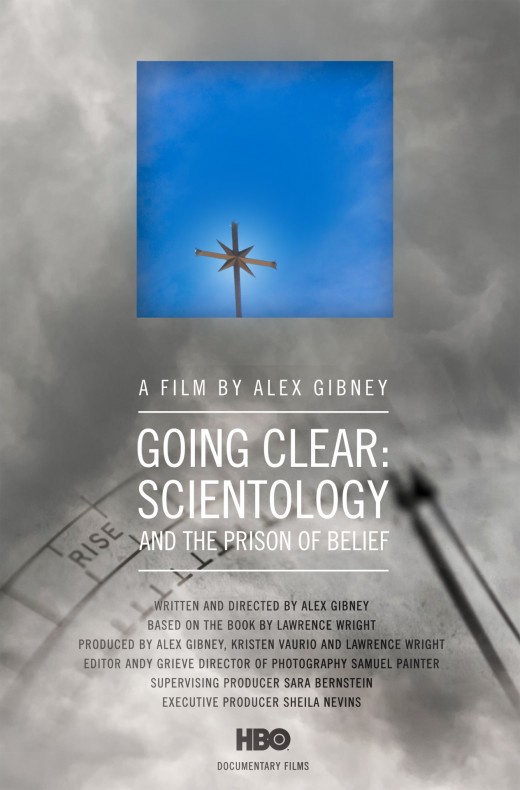
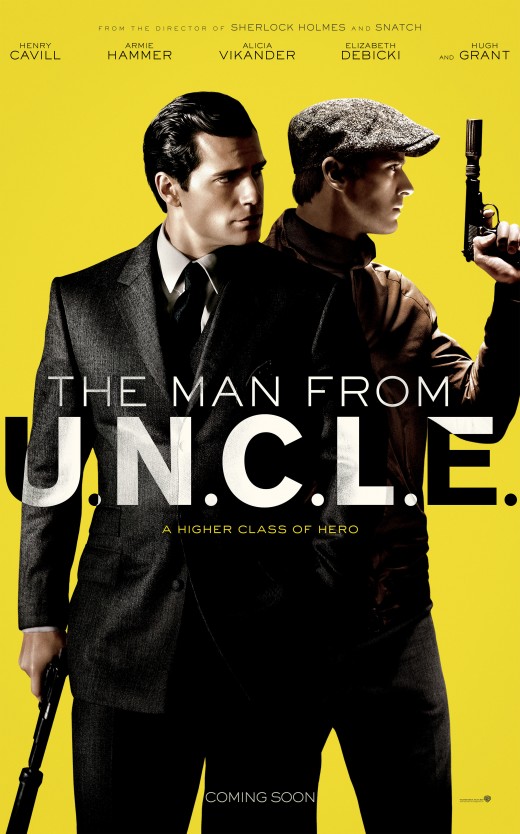
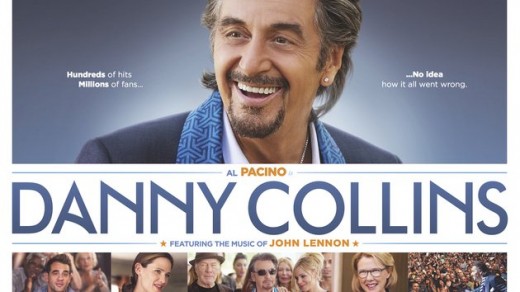
Author's Update #1
Hello again. As promised, I am back with my first update, in which I will add three new films to the list. None of these are going to make major waves with my overall awards picks, though one certainly deserves some love in the Documentary Feature category; they are nonetheless solid films.
48. Going Clear: Scientology and the Prison of Belief (enters list between Dope and Shaun the Sheep Movie)
A topic that has been in the news with some frequency over the years, usually in relation to Hollywood, is the (frankly) dubious religion Scientology. I have been aware for some time that John Travolta is known as a spokesperson for the religion, and that his much-maligned Battlefield Earth was widely seen as Scientologist propaganda. I also have been aware for some time that Tom Cruise is perhaps Scientology’s biggest star today, and that he has taken much flak for it over the past few years. More recently, between Cruise’s highly publicized breakup with Katie Holmes, Leah Remini’s vocal dissatisfaction with (and memoir/ expose against) the church, and numerous other little sound bites and rumblings, I have become aware that the church may be a far different creature than I had fully realized, and the film Going Clear lays bare most effectively just how dark and frightening it may actually be. Basically, the film lays out the history of Scientology, from its origins in L. Ron Hubbard’s book Dianetics, through his conversion of the book into the basis of a full-blown religion, on through his decades-long attempt to gain recognition as a religion (read: tax-exempt status) from the IRS, to the passing of the reigns to his successor, David Miscavige, all the way up to the present day, and the church’s increasingly (as presented in the film) precarious house-of-cards existence as a multibillion-dollar conglomerate that would probably collapse overnight if forced to pay taxes. Indeed, the church teetered on this brink before, whereupon Miscavige managed to effectively blackmail the IRS into giving the church exempt status (again, as presented in the film). I should note here, perhaps, that this film is a polemic, no doubt about it. The filmmakers and those interviewed for the film clearly have axes to grind against Scientology; however, take what they say at face value and they’re pretty damn well justified in taking this stance. L. Ron Hubbard is presented as a self-aggrandizing, paranoid and greedy hypocrite, who seems to have founded Scientology for no grander reason than his own legacy (though he also had an axe to grind against the psychiatric profession, and thoroughly enjoyed money). David Miscavige comes off better as an effective leader and organizer (his every scene practically screams “Cult leader”), but decidedly worse as a human being (his every scene practically screams “Cult leader”). Meanwhile, the film really does make you feel for the people suckered by the “religion” (filmmaker Paul Haggis, one of the interviewees, is particularly colorful in describing the feeling of those who reach a certain point in Scientology’s teachings and learn that the doctrine is one giant bait-and-switch), and even more so for those whose families were torn apart by the excessively insular nature of the religion (any who have any doubt that Scientology is a cult need only look at the lengths to which they go to cordon themselves off from non-believers). I could go on, but really one should just check this film out for one’s self. It is a fascinating and relatively horrifying film, and one that may well deserve a status as required viewing.
52. The Man from U.N.C.L.E. (enters list between Jurassic World and The Gift)
I have to admit, I came to The Man from U.N.C.L.E. with next to no personal knowledge of the classic TV series off of which it is based. Therefore, I’m not sure how much of the film’s decidedly lukewarm reception was due to concerns over fidelity to the source material. That said, I still find its lukewarm reception surprising as—once I finally got to see the film—I found it very engaging and enjoyable, indeed one of the better spy films (out of several) in 2015. Actually, let’s just look at this a moment: Bridge of Spies; Kingsman: The Secret Service; Mission: Impossible—Rogue Nation; Spectre; Spy; American Ultra; perhaps Mortdecai. And this one—that’s eight spy/ espionage-related films in one year; Hollywood does love its themes, doesn’t it? I doesn’t hurt that this film is stylishly directed by Guy Ritchie, a man who knows how to make a “cool” movie. The acting is solid (though it is odd and interesting that nearly all the main and key supporting cast members rock accents that are not their own). As American agent Napoleon Solo, Henry Cavill does his stoic, chiseled-jaw hero thing, Armie Hammer is all simmering rage as his Russian counterpart, Hugh Grant is suitably oily in his few scenes, and the lovely Alicia Vikander continues to show why 2015 was her breakout year. Typical for a Ritchie film, U.N.C.L.E. rocks a pretty kick-ass soundtrack, and the original score (which I believe incorporates the well-known theme from the series) further livens things up—here is yet another argument for a Best Use of Music in Film Oscar. Overall, a diverting and enjoyable action film, and one I certainly recommend if you are in the mood for a less moody alternative to Spectre.
54. Danny Collins (enters list between The Gift and The Good Dinosaur)
Danny Collins is an interesting film, a VERY loosely “based-on-a-true-story” tale about a musician and songwriter (Steve Tilston was the name of the original singer) who gave an interview in the early 1970’s that caught the attention of none other than John Lennon, who in turn wrote a letter offering advice and encouragement to the young singer—which letter was then not delivered to its destination for thirty-four years due to being withheld en route as a collector’s item. In this version, the singer is called Danny Collins (and is played with suitable world-weariness by Al Pacino), and is a successful but aging rock star who lives an empty, hollowed-out shell of an existence. Yes, he is still raking in the dough. Yes, his housemate and fiancée is a gorgeous woman in her thirties (Katarina Cas). Yes, his manager (a spirited Christopher Plummer) is a remarkably loyal and true friend, despite continually pushing Collins down this road he no longer enjoys. However, he had started out as a songwriter, and hasn’t ever had a hit of his own, and he is sick and TIRED of the hits he does sing night after night. So, when his manager presents him, with much pomp and circumstance, a framed letter written to him long ago by his hero, John Lennon, a letter of whose existence he had never known, it is like a sudden burst of light in the darkness. He breaks things off with his fiancée, though he magnanimously allows her to keep his house for a while, along with her boy-toy he nicknames “Busy Work” (when he had asked what she did by herself each day, she had usually replied with “busy work”). He also breaks his tour off cold (ticking off his manager) and takes up residence in a hotel in New Jersey. There, he immediately ingratiates himself to the hotel’s staff, offering relationship advice to the young employees (Josh Peck and an underused Melissa Benoist) and beginning a long-running flirtation with hotel manager Mary Sinclair (Annette Bening). He also makes contact with the son he never knew (a very taciturn Bobby Cannavale), his pregnant daughter-in-law (Jennifer Garner) and his hyperactive granddaughter (Giselle Eisenberg). Overall, the film is nothing earth-shattering, but it’s nice. The acting is incredibly solid, if just shy of Oscar-level, the story is well handled, and things end on just the right note. About the only truly sour note is (ironically, given that he’s playing a rock star) Al Pacino’s singing; sorry, but the man’s truly formidable acting skills do not extend to singing. Other than this, however, the music in the film is AWESOME. The original music is excellent, and the pitch-perfect use of John Lennon songs is one of the year’s best arguments for the need to have an Oscar for Best Use of Music in Film. One last note—though manager Frank Grubman is hardly Christopher Plummer’s most taxing role, it is a fun one, and he gets several truly enjoyable one-liners. Though this film barely made a blip on the radar when it came out, and I’m not truly convinced it deserved a Golden Globe nod for Pacino, it is nonetheless an enjoyable film very well worth a look.
As before, I hope you find my offerings on this list useful in determining what you yourself may like to track down. Stay tuned for my next update, which should include The Diary of a Teenage Girl and Trainwreck, along with (hopefully) others. In the meantime, happy viewing!
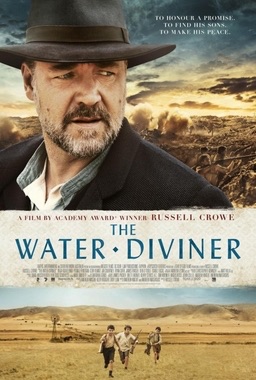
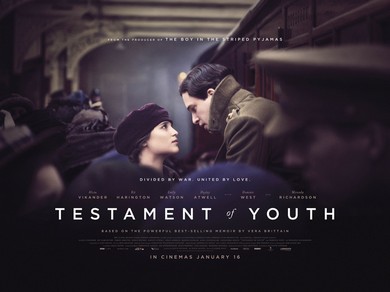
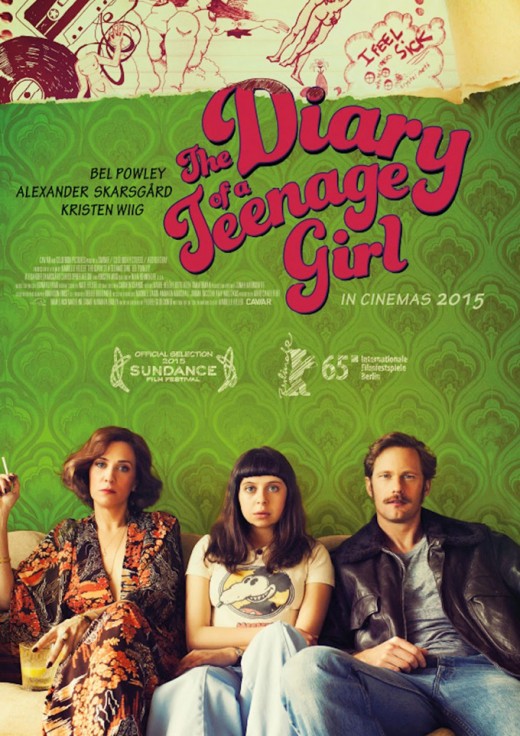
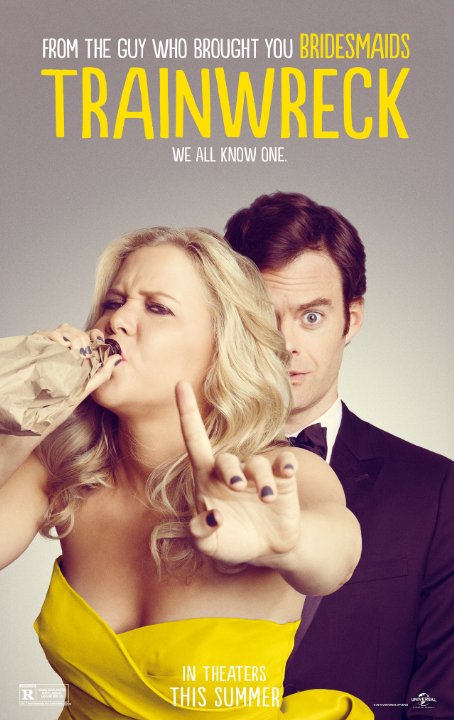
Author's Update #2
Here is my second update. I have been in a mad dash this past week to try and hit 100 films before the Oscars telecast, but this is sadly looking unlikely. I should be getting Z for Zachariah, Mississippi Grind and the Oscar-nominated Racing Extinction from the library by early next week, but that would still leave me at only 99 films. Oh, well, these four ensure that I made it to at least 96 viewed before the Oscars, and they include a couple gems. Enjoy...
19. The Water Diviner (enters list between Ex Machina and The Hunger Games: Mockingjay, Part 2)
Every once and a while a film comes along out of nowhere, right? I had never even heard of Russell Crowe’s directorial debut, The Water Diviner, until I encountered it on DVD at the library. I was curious about it (I mean, it’s Russell Crowe’s directorial debut), but something about it kept me at arm’s length. After dithering for a couple of months, though, I finally resolved to see this one before the Oscars when commentator Cogerson suggested that this was one of the best films of the year, and I realized that I was close enough to 100 films from 2015 that I ought to go for it. Having seen it, I cannot believe I waited so long—this is an excellent film. Even more so, however, I cannot believe how nonexistent this film is in the conversation amongst American movie fans. The production values are excellent, the music (including the fine original song by Kris Fogelmark) is lovely, and the acting (notably from Olga Kurylenko, Yilmaz Erdogan and Crowe himself) is borderline-to-fully Oscar-level. Crowe’s direction is solid, and portends a successful future behind the camera should he ever grow bored of acting. Most notably, however, this is simply an inspiring and heartwarming (if at times heartbreaking) story of a farmer who lost his sons to the battle at Gallipoli (and his wife to subsequent depression) and who decides to take matters into his own hands to (at least) find closure in his life; in the process, he finds two similarly wounded souls and they end up helping each other immensely. Meanwhile, he and those he encounters (a war widow and her son, a major in the Turkish army and his most loyal lieutenant, and several members of the British military) all have their own issues to work through regarding the conflict; without giving away too much I can say that each of them manages to reach their own level of growth, and that some come out the other side changed for the better. This really is film well worth seeing, and I cannot believe it was scarcely even mentioned this awards season.
31. Testament of Youth (enters list between Slow West and Irrational Man)
One of the strange things this past week has been that—without attempting to do so—I checked out two separate 2015 releases dealing with World War I, and doing so from decidedly atypical standpoints. While The Water Diviner is a decidedly Australian film dealing primarily with the aftermath of the Battle of Gallipoli—most specifically how this battle would color and inform relations between the Turks, the British and the Aussies—and set almost entirely in Turkey, Testament of Youth is notable as being quite squarely focused on the view of the war from the female perspective. In this film Alicia Vikander (she of the busy, busy year and gorgeous features) plays Vera Brittain, a young lady of means who—much against her father’s wishes—has adamantly pursued an Oxford education for years, and who finally secures for herself an enrollment at the school. Furthermore, she has a deep devotion to her brother Edward (fellow breakout Taron Egerton), and has a devoted childhood friend (Victor, played by Colin Morgan) and a passionate love in Roland (Kit Harington). Naturally, this all takes place just before the outbreak of war, and each young man wastes no time in clamoring to go off to battle; Victor is unable to enlist right away due to vision issues, but eventually gets into the thick of things, while Edward and Roland do go right away, the former after Vera practically browbeat their father into letting him, and the latter despite assurances he would not have to go so soon. Before long, bitten by the same nationalistic bug, Vera drops her coursework to volunteer as a nurse taking care of wounded soldiers. I will not go into the particulars of what happens; suffice it to say that the movie gets pretty heavy at times, and that it definitely could be taken as rather anti-war (much like The Water Diviner). The film is based on the book of the same title by the real-life Brittain, which is widely regarded as one of the definitive memoirs of the wartime experience; sadly, the film itself received little exposure, despite solid production values across the board and a pretty awesome performance by Miss Vikander. This may not be the best film of the year, or even the best one about World War I, but it is a damn fine film well worth a look.
53. The Diary of a Teenage Girl (enters list between Straight Outta Compton and Jurassic World)
A rather strange little late-summer release, The Diary of a Teenage Girl is one I very nearly saw in theatres, but missed largely due to timing issues. Given the chance to check out the DVD from my library, I took it; I’m not sure much was lost by waiting, other than the chance to see such an odd and idiosyncratic film in theatres. This is not exactly the film I thought it would be (mainly because I hadn’t realized it was a 70s period piece); I am willing to wager I am nowhere close to the only one who felt that way. This is not some bubble-headed teen comedy as the title more or less suggests, but a down-and-dirty adaptation of a graphic novel; said adaptation actually is pretty graphic at times, and the film is definitely not for those easily offended by frank discussions of sex, taboo relationships, drugs, and all sorts of other lovely, family-friendly things, not to mention depictions of many such items. Bel Powley deservedly got a lot of praise for her lead role, and Kristen Wiig and Alexander Skarsgård are also solid. Even so, the film mostly got lost in the shuffle during awards season. It’s a good film, and very well worth a look, but it surely is odd; think An Education by way of American Splendor and you’re part of the way there.
58. Trainwreck (enters list between Danny Collins and The Good Dinosaur)
Ah, a title that conjures up so many of this year’s releases. In fact, I really wanted to watch this one with Fantastic Four as a joke, but sadly I never got the chance. As you might note as well by its position on my list, I am also tempted to take a swipe here at The Good Dinosaur. In fact, there are those who accuse Trainwreck of having an awfully descriptive title regarding itself; I tend to disagree, though I fully agree the movie could have been better. It is somewhat formulaic, and Amy (Amy Schumer) is a difficult protagonist to fully get behind. However, I did come around, and was pretty much pulling for her by the end. Schumer gives a solid performance, and is ably supported by a hilariously eclectic cast. Her kinda-sorta boyfriend Steven is pretty hilariously played by John Cena; though I agree fully with my brother’s observation that the movie has “too much John Cena” in it, we both agree he was funny. Basketball superstar LeBron James is just as funny (but a bit wooden) as LeBron James, superstar basketball player and BFFs with Bill Hader’s sports doctor Aaron; James gets a couple of the film’s better lines, like “Let me axe you a question. Don’t hurt him!” Hader also does a fine job as the likeable-to-a-fault doctor who falls hard for Amy and manages to win her over as well. And those camoes… This is a film that practically screams out for Oscar categories for Best Bit Player/ Cameo. Colin Quinn’s shockingly pretty good too. However, the film’s real standouts are current Oscar nominee Brie Larson as Amy’s sister Kim and the normally frigid Tilda Swinton as Amy’s boss Dianna—Swinton has never been so off-the-wall hilarious. This film is not without flaws, not by any means. But it most surely is not an unmitigated trainwreck either. If you can take Judd Apatow’s brand of comedy (oh, did I mention this is an Apatow flick?), you should enjoy this film at least a modest amount; it is rude, crude and vulgar at the beginning, and a crude streak remains through much of the film, but despite some occasional discomfort this is a pretty funny and occasionally hilarious film that manages to be a wee bit moving too.
So, there you have it, my four newest films seen from 2015. Wish me luck on the other four, eh? And, as always, I wish you happy viewing!

